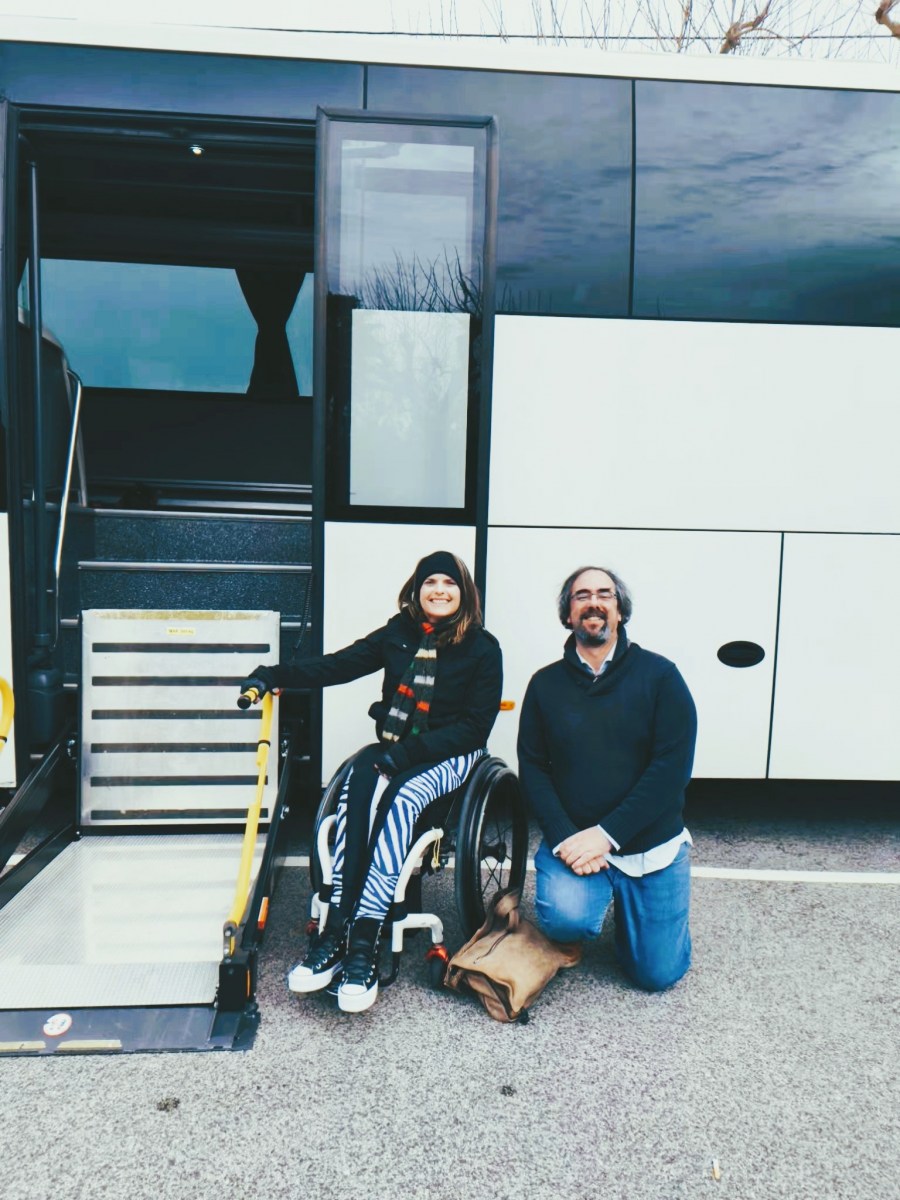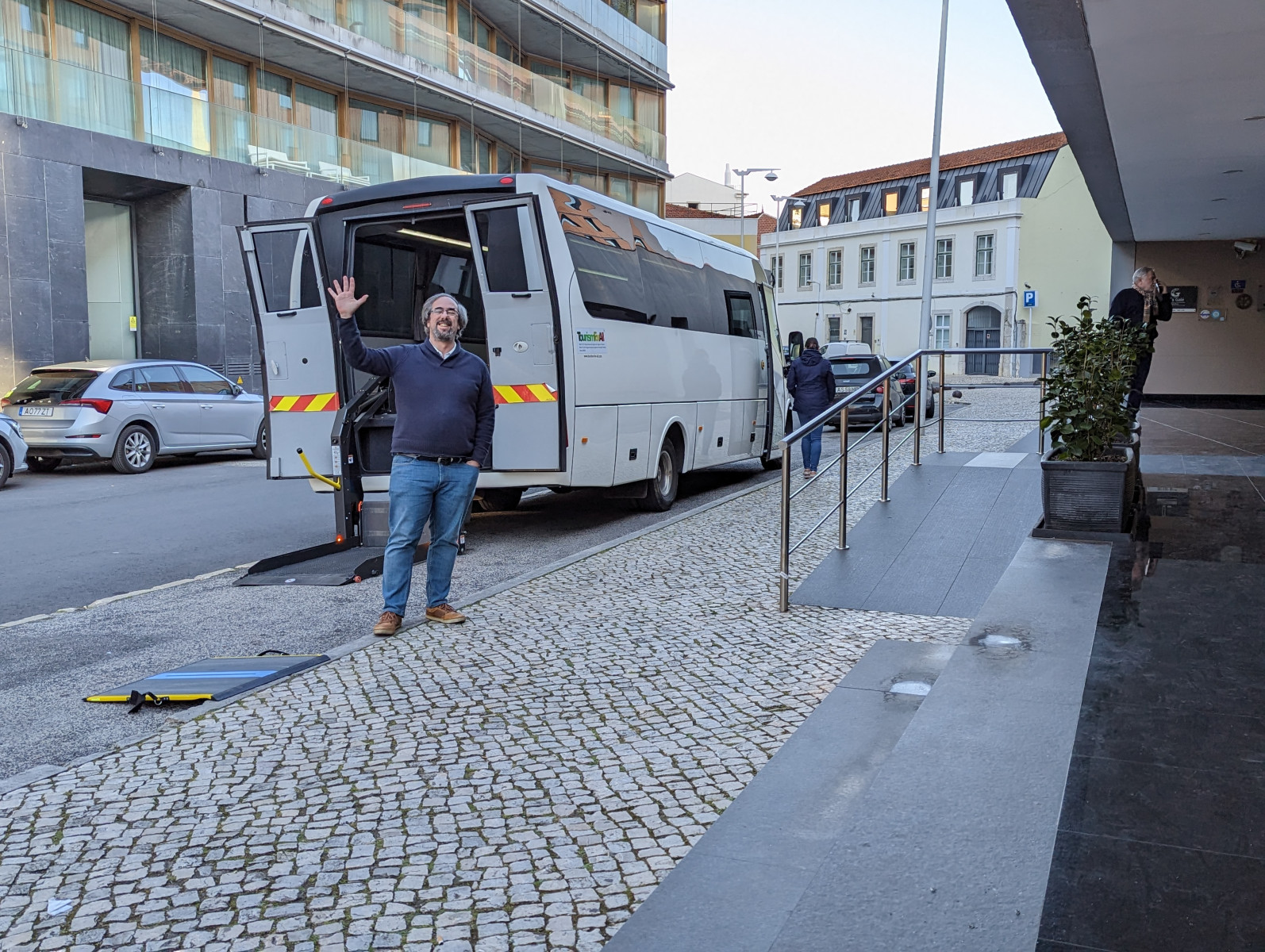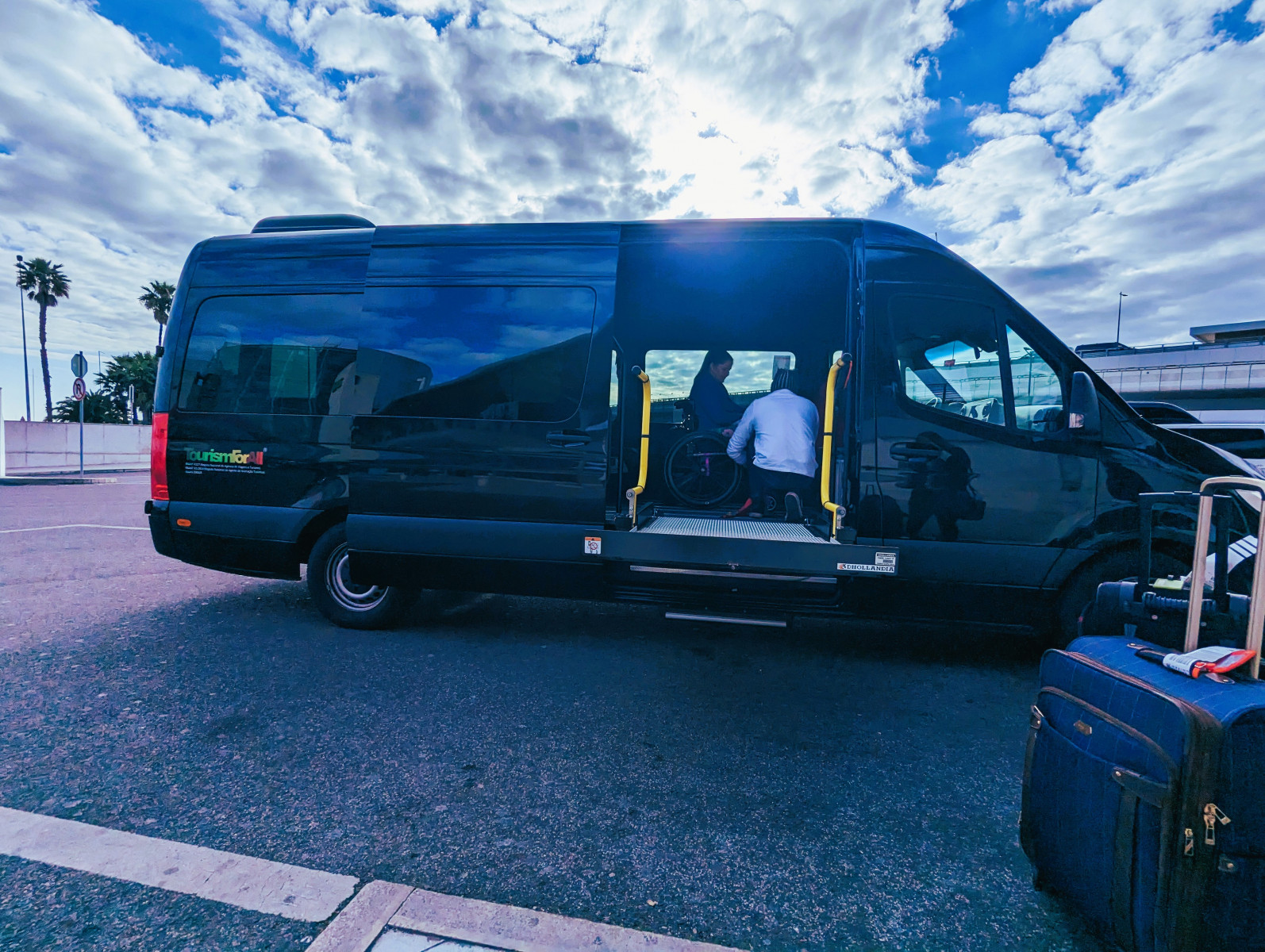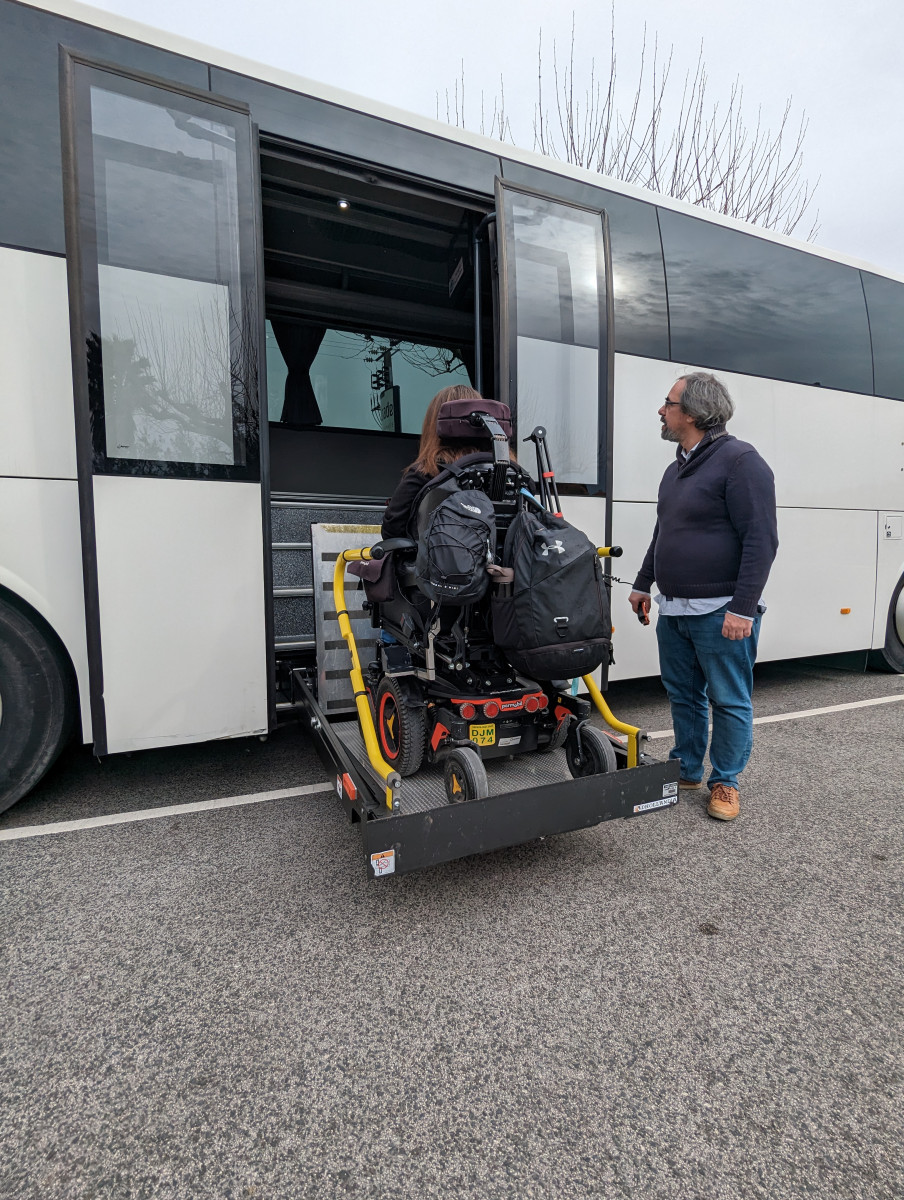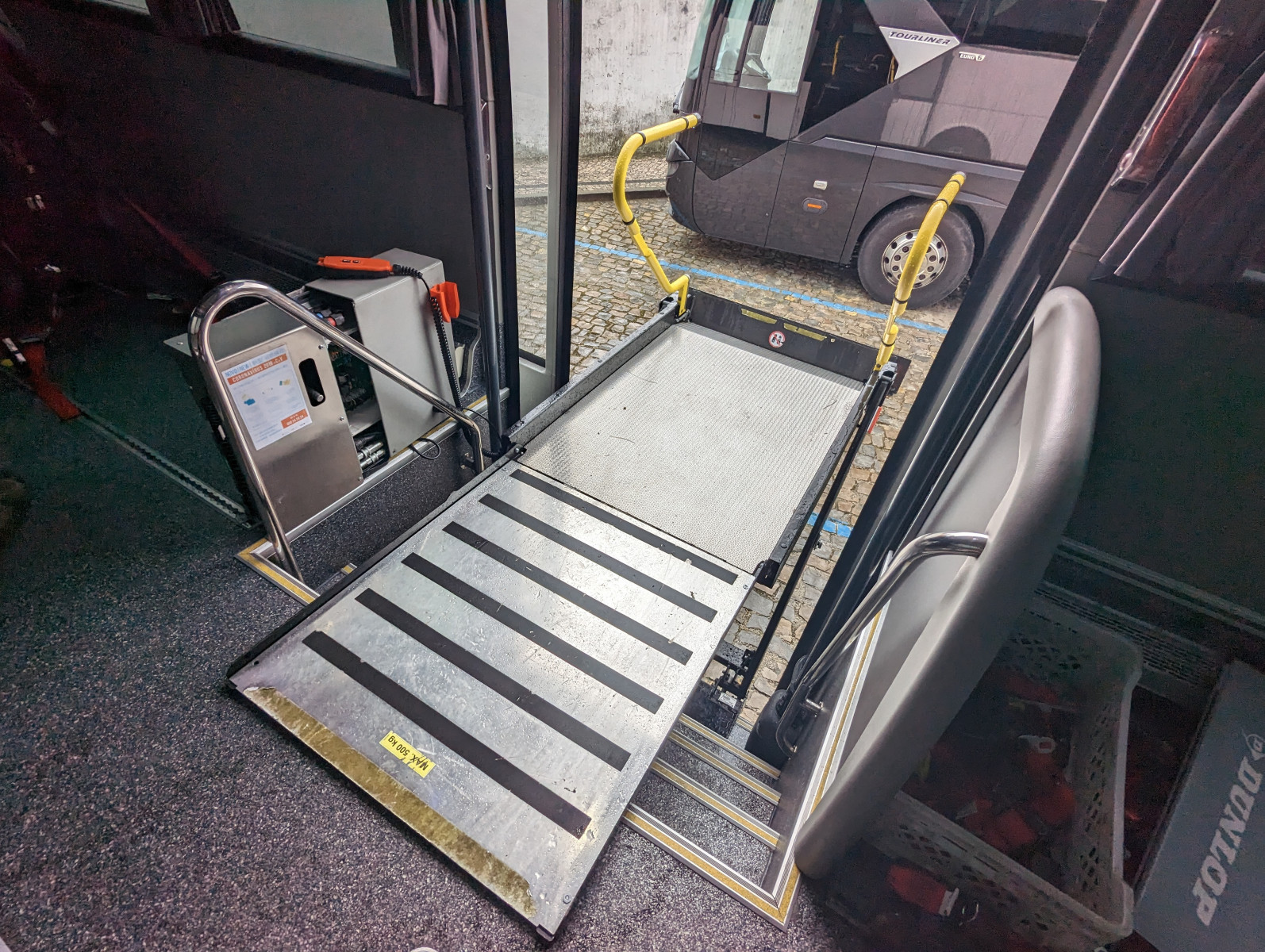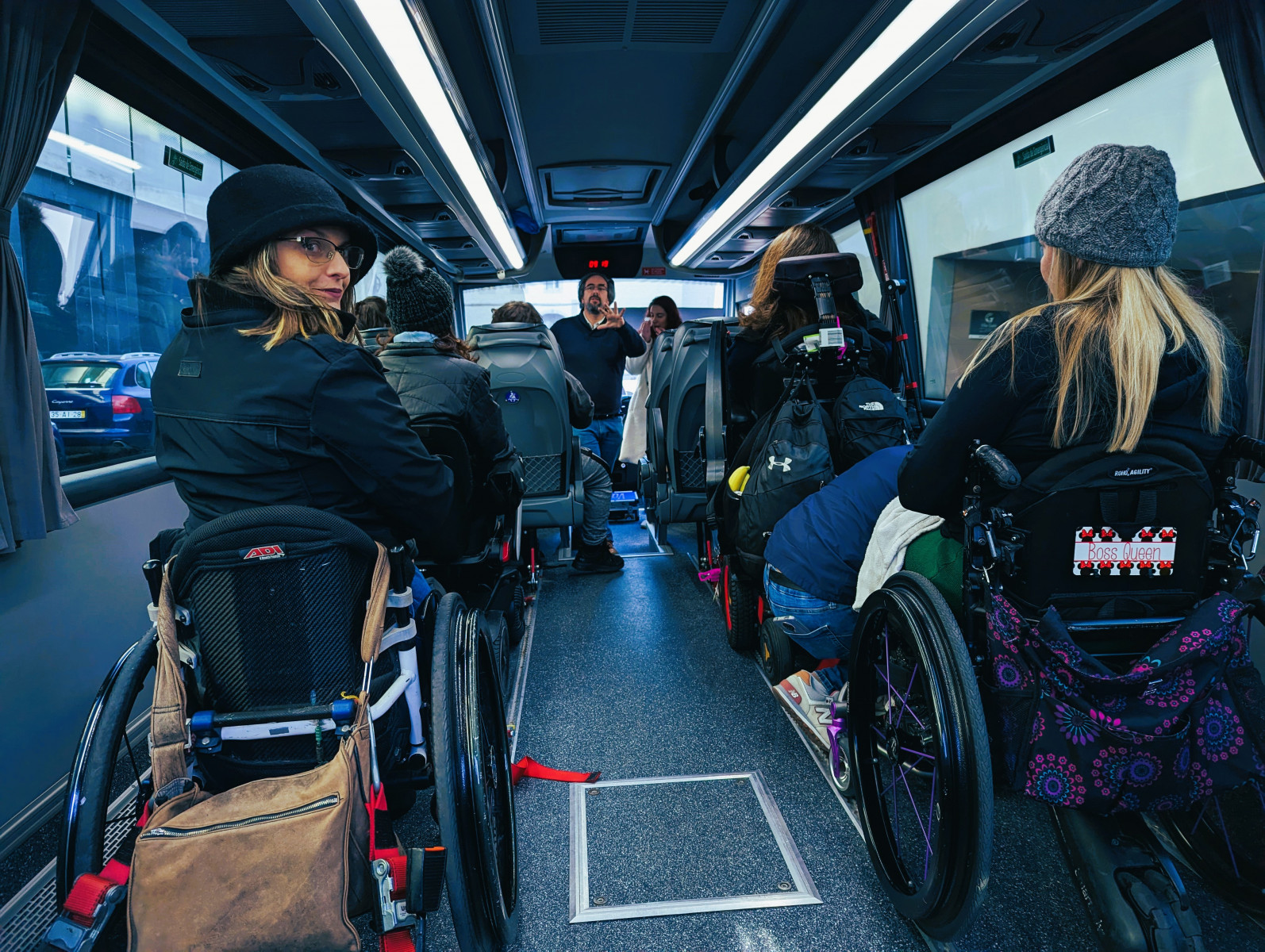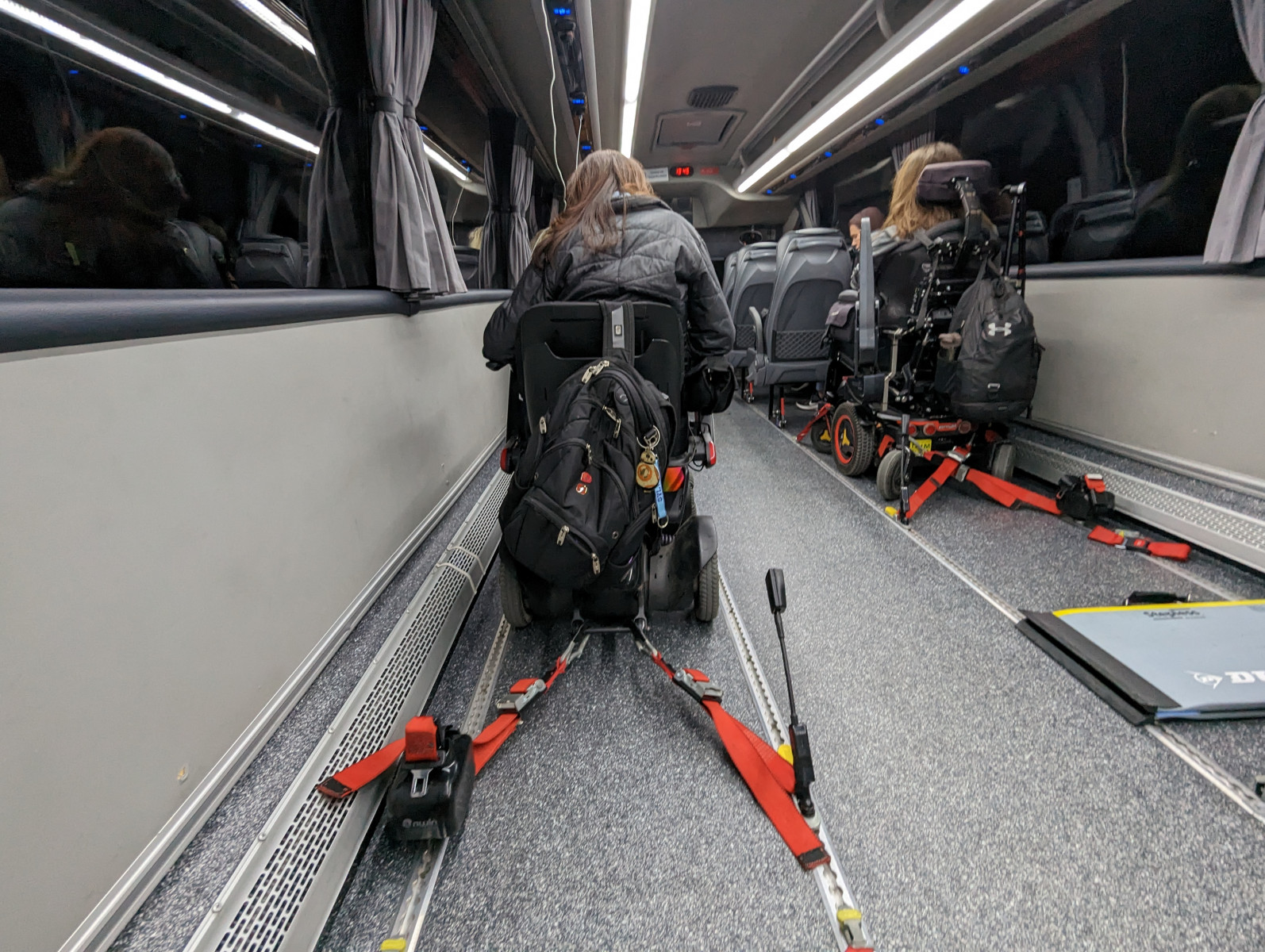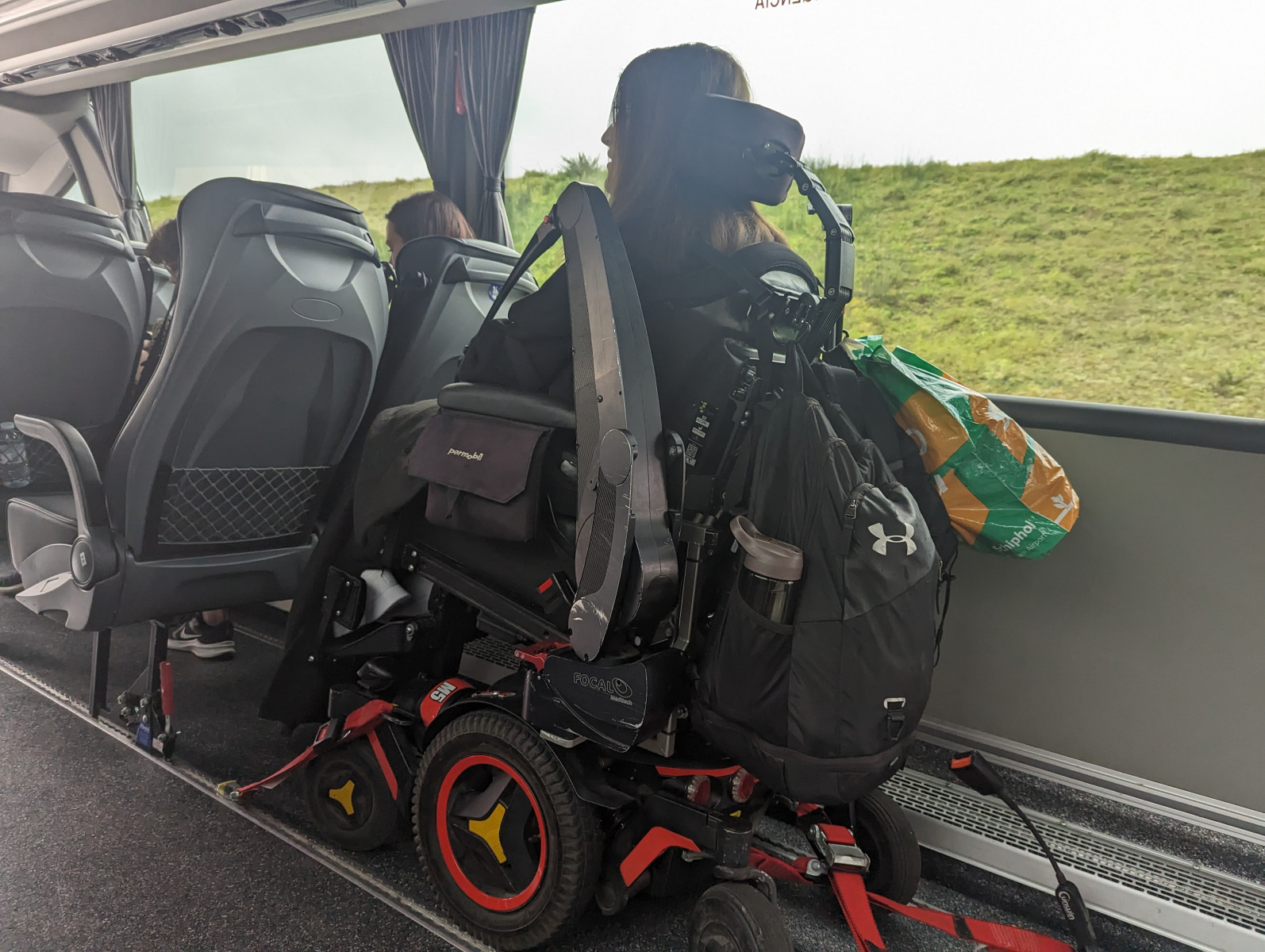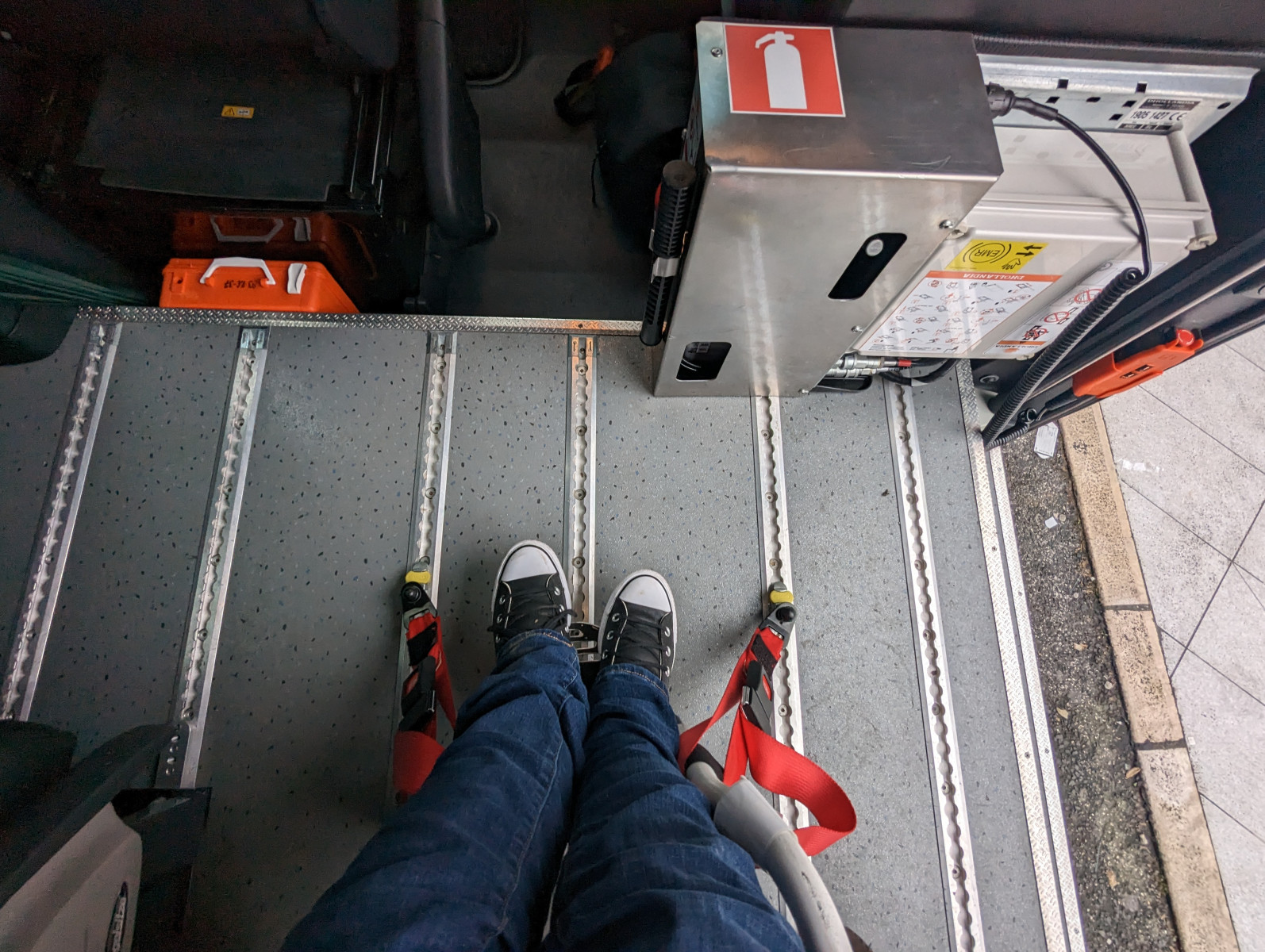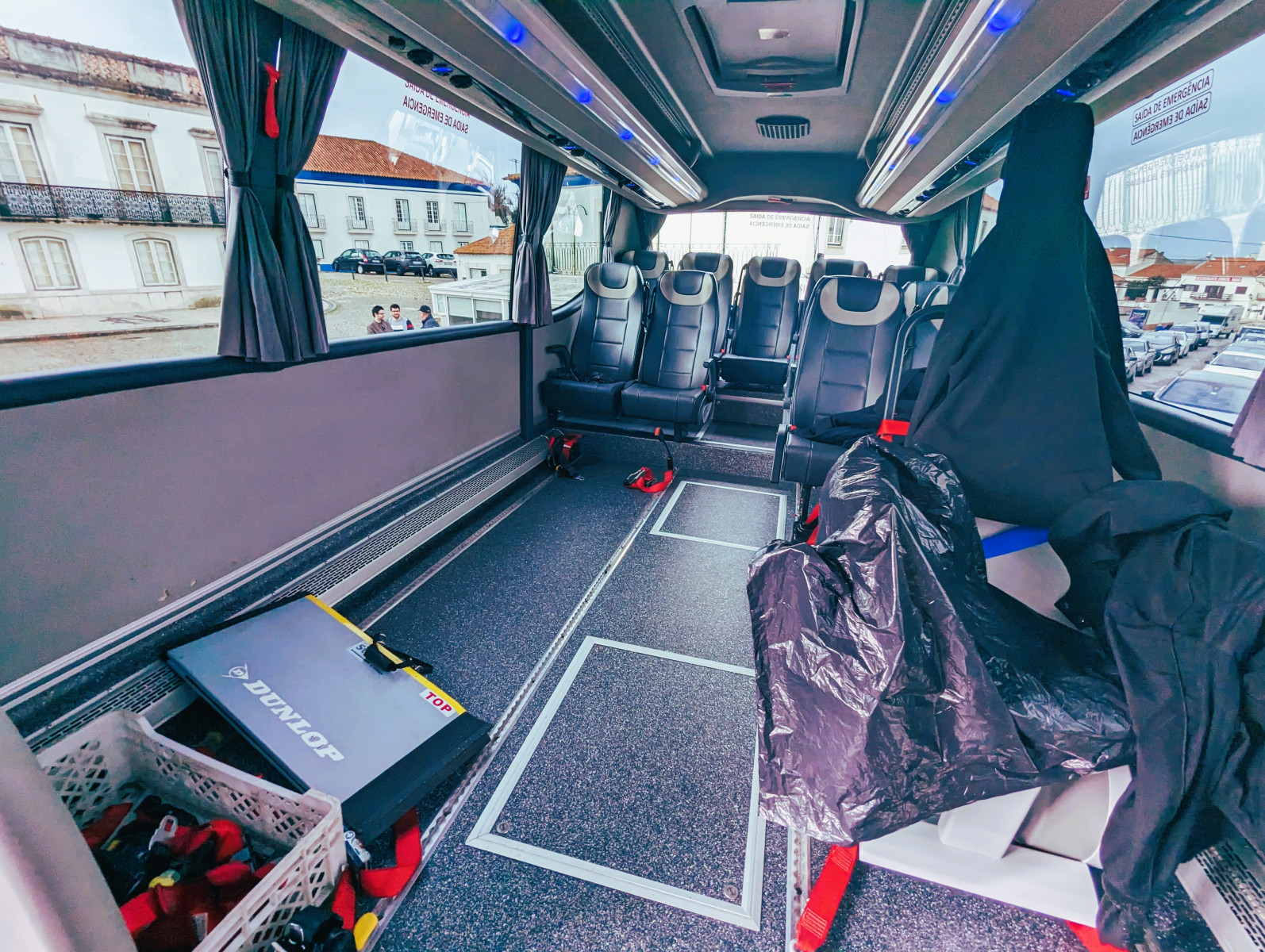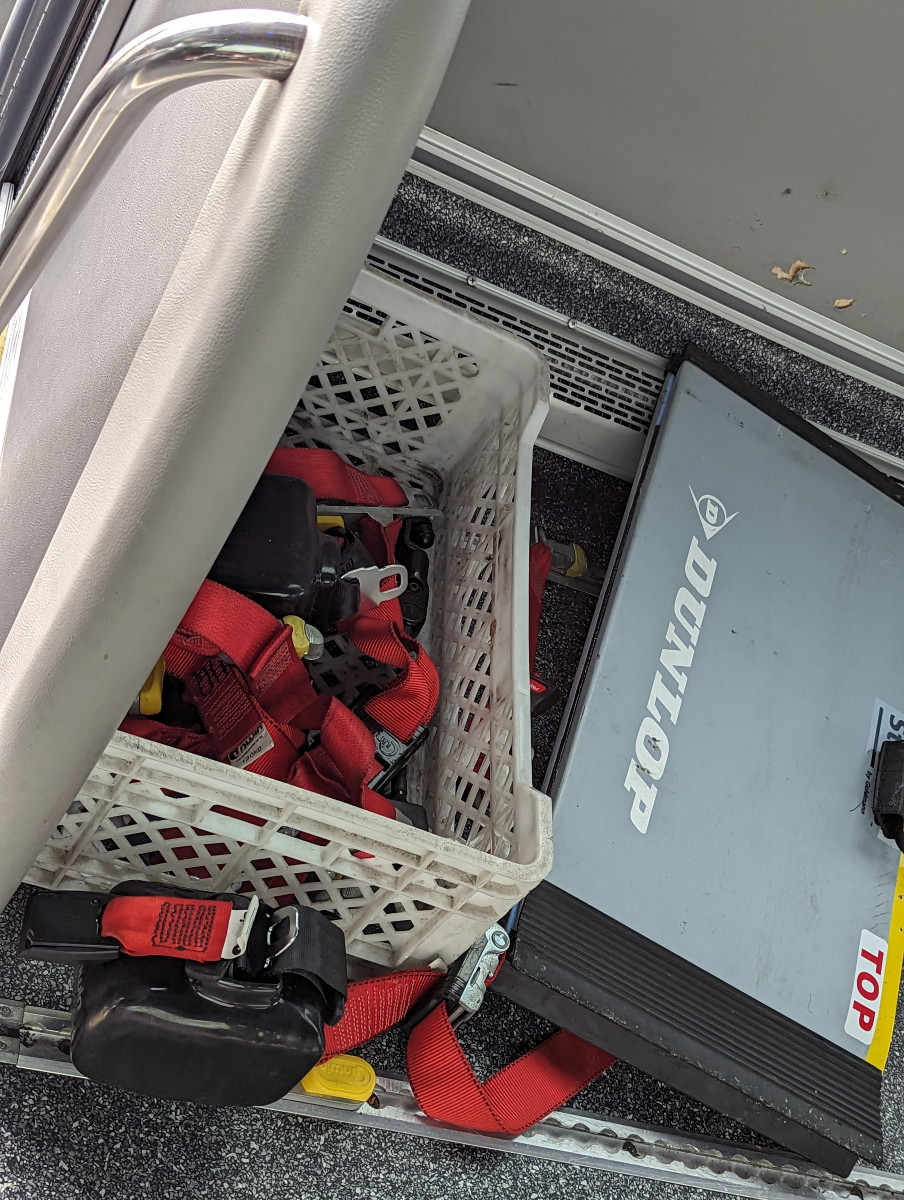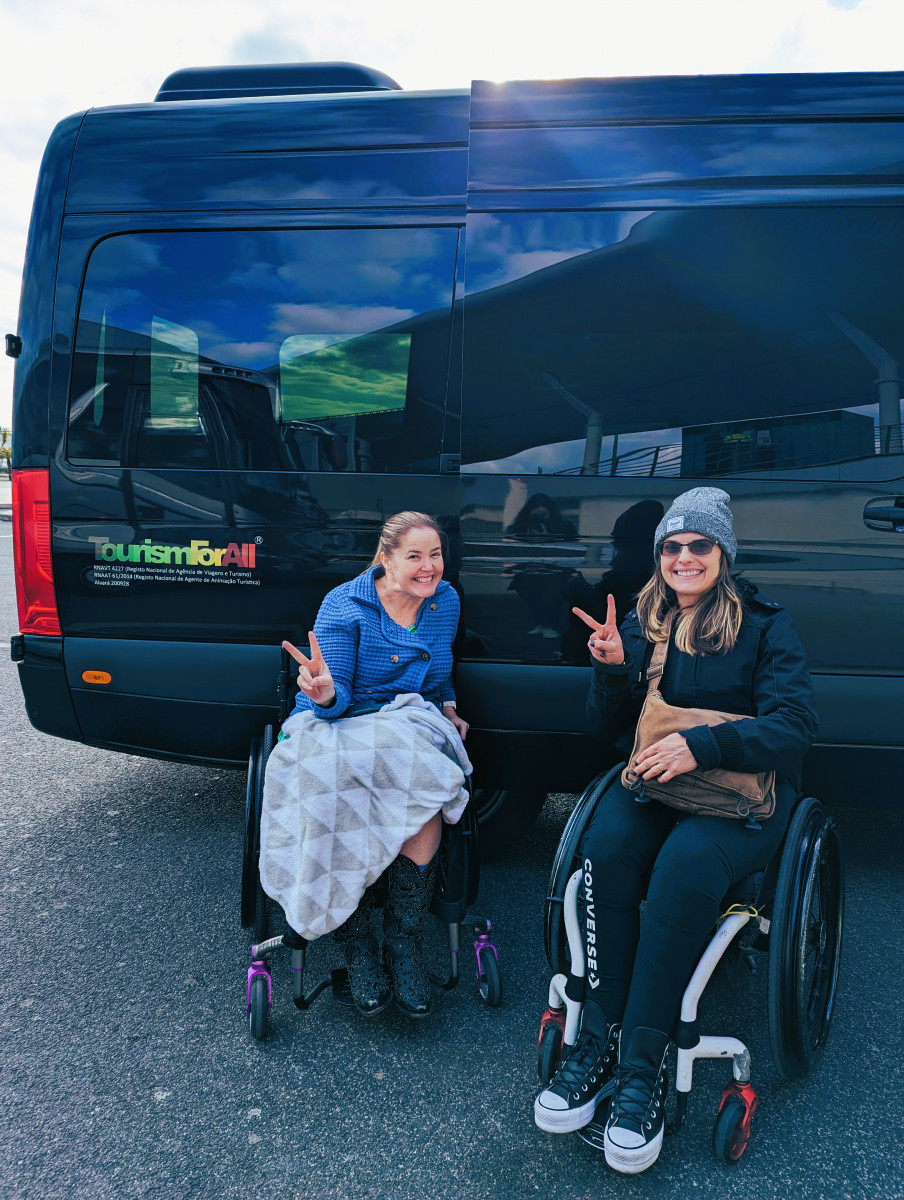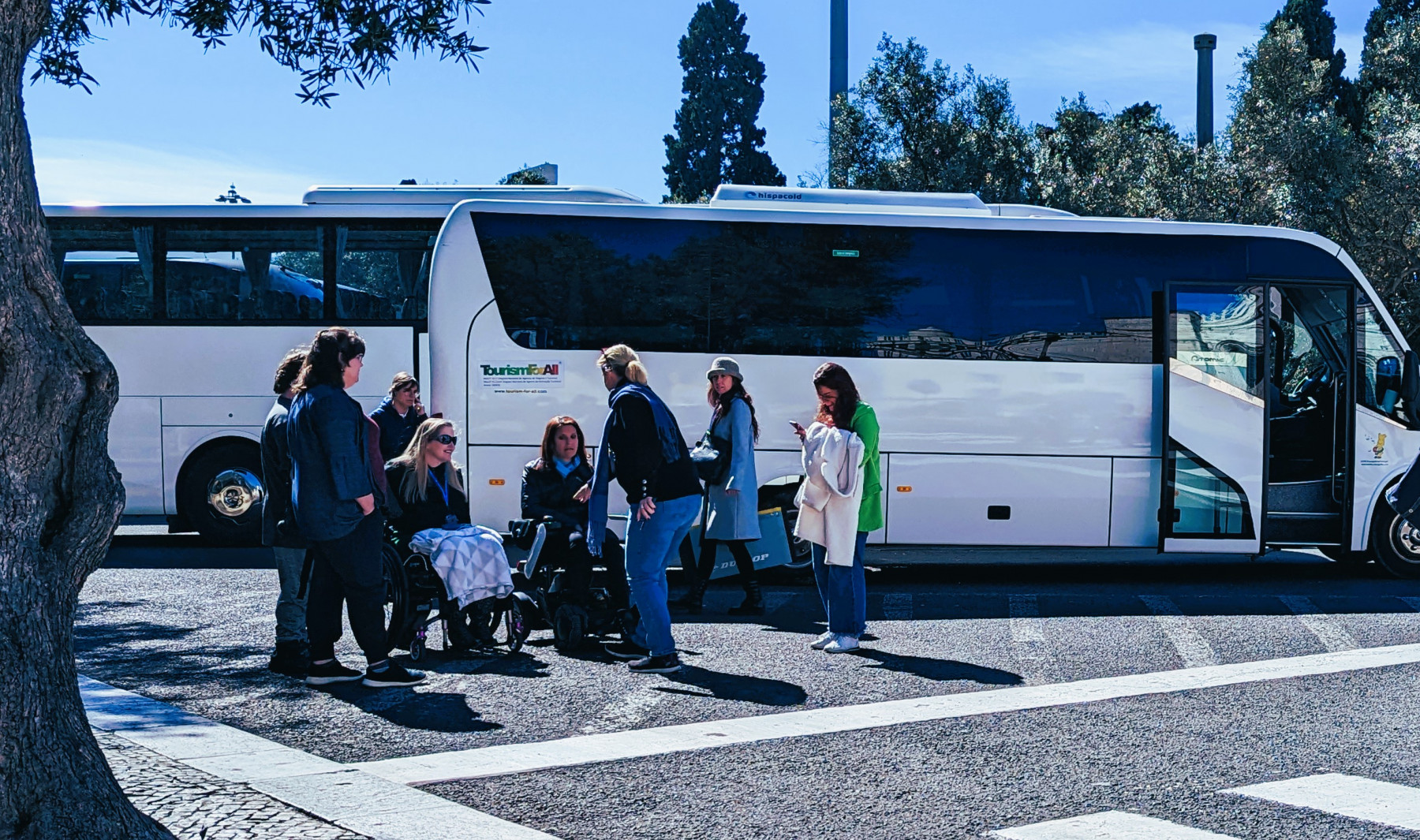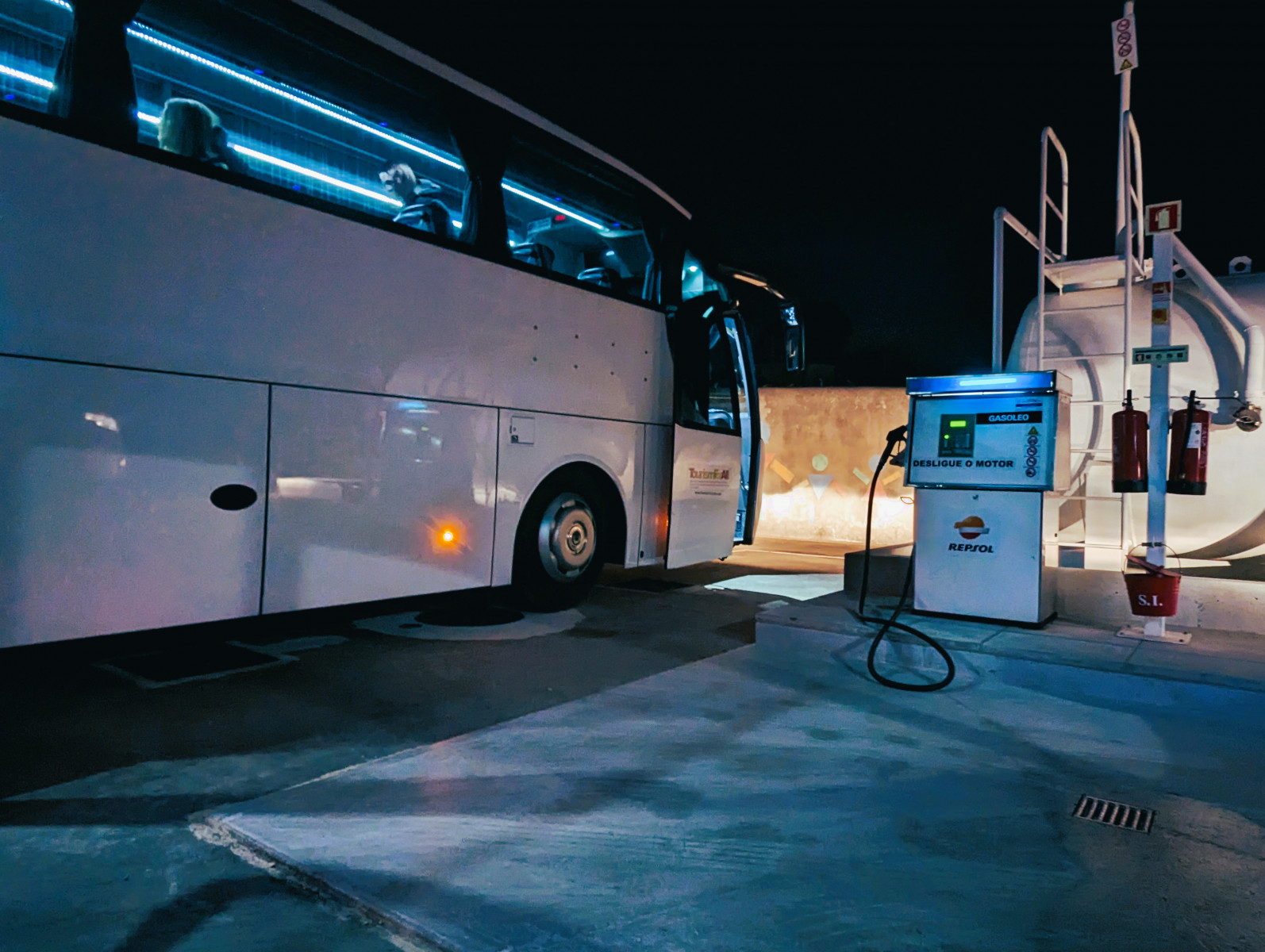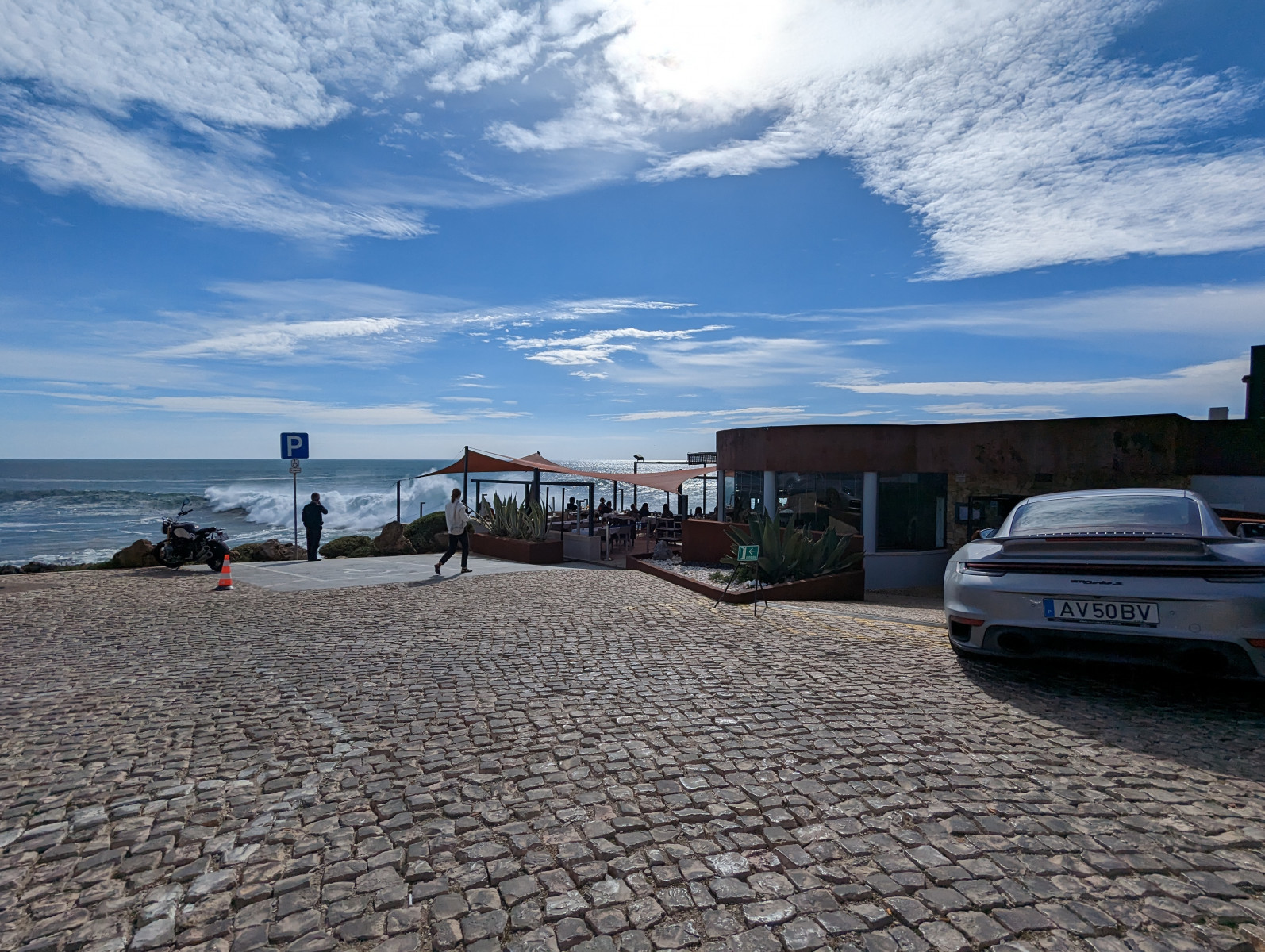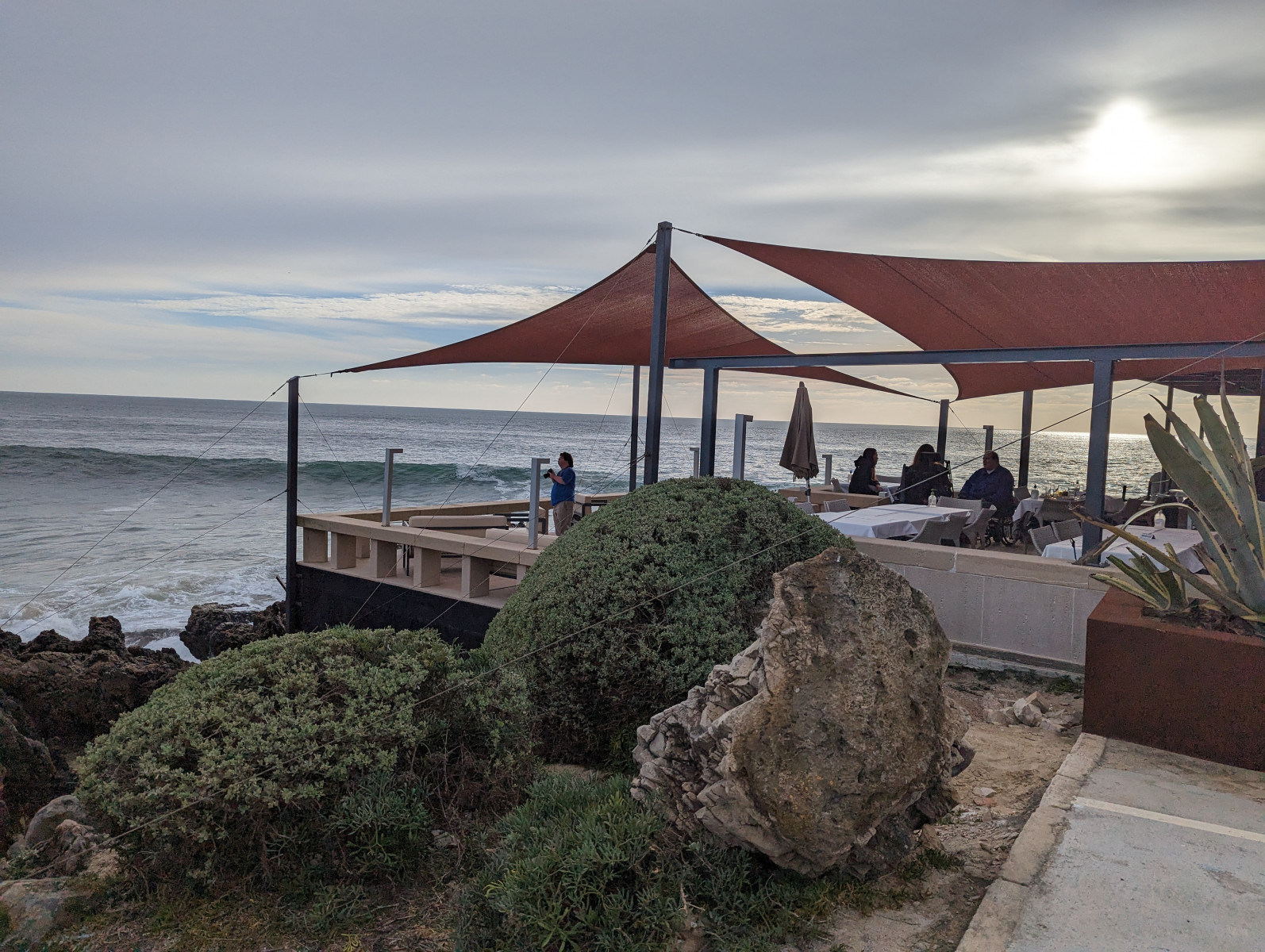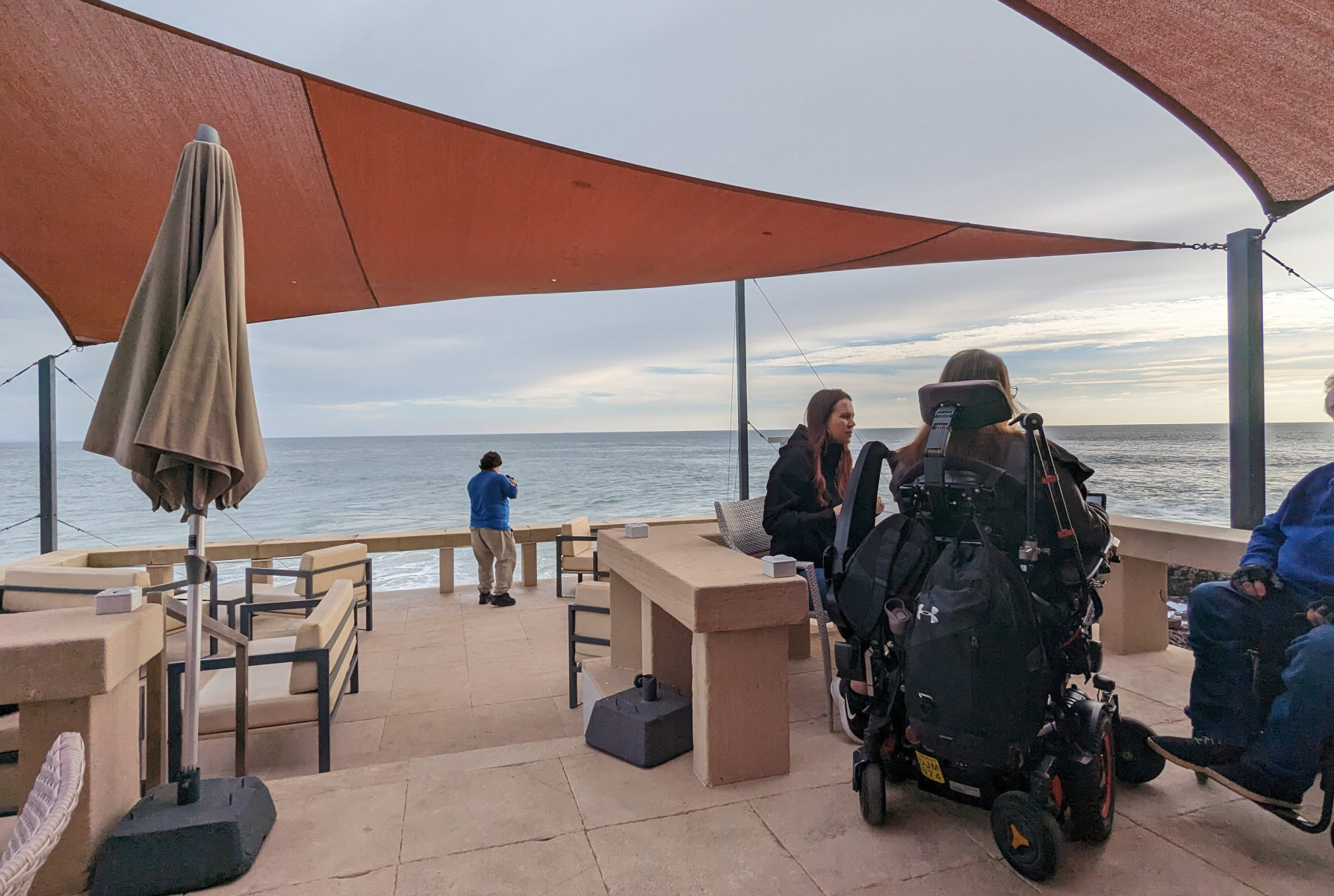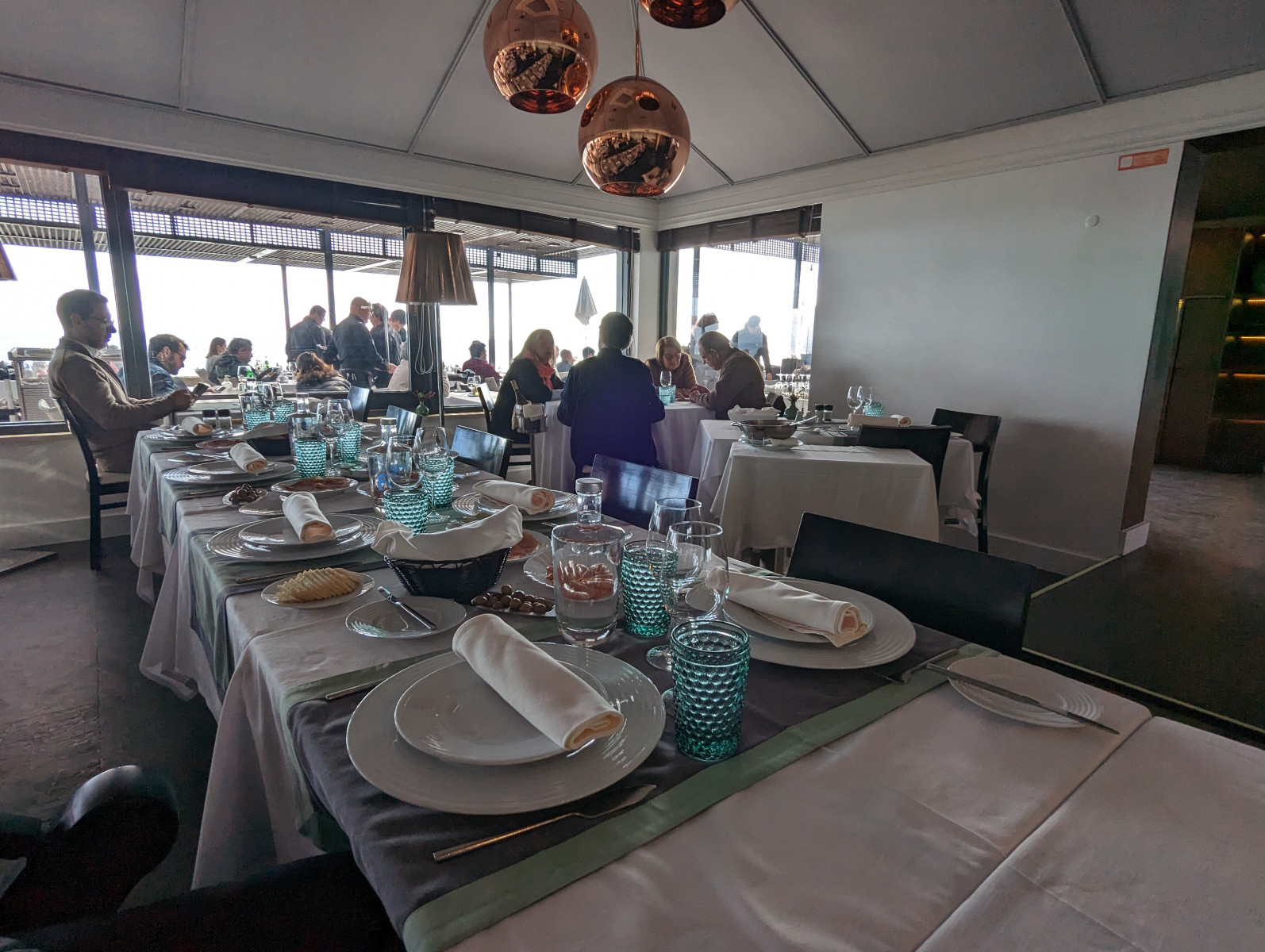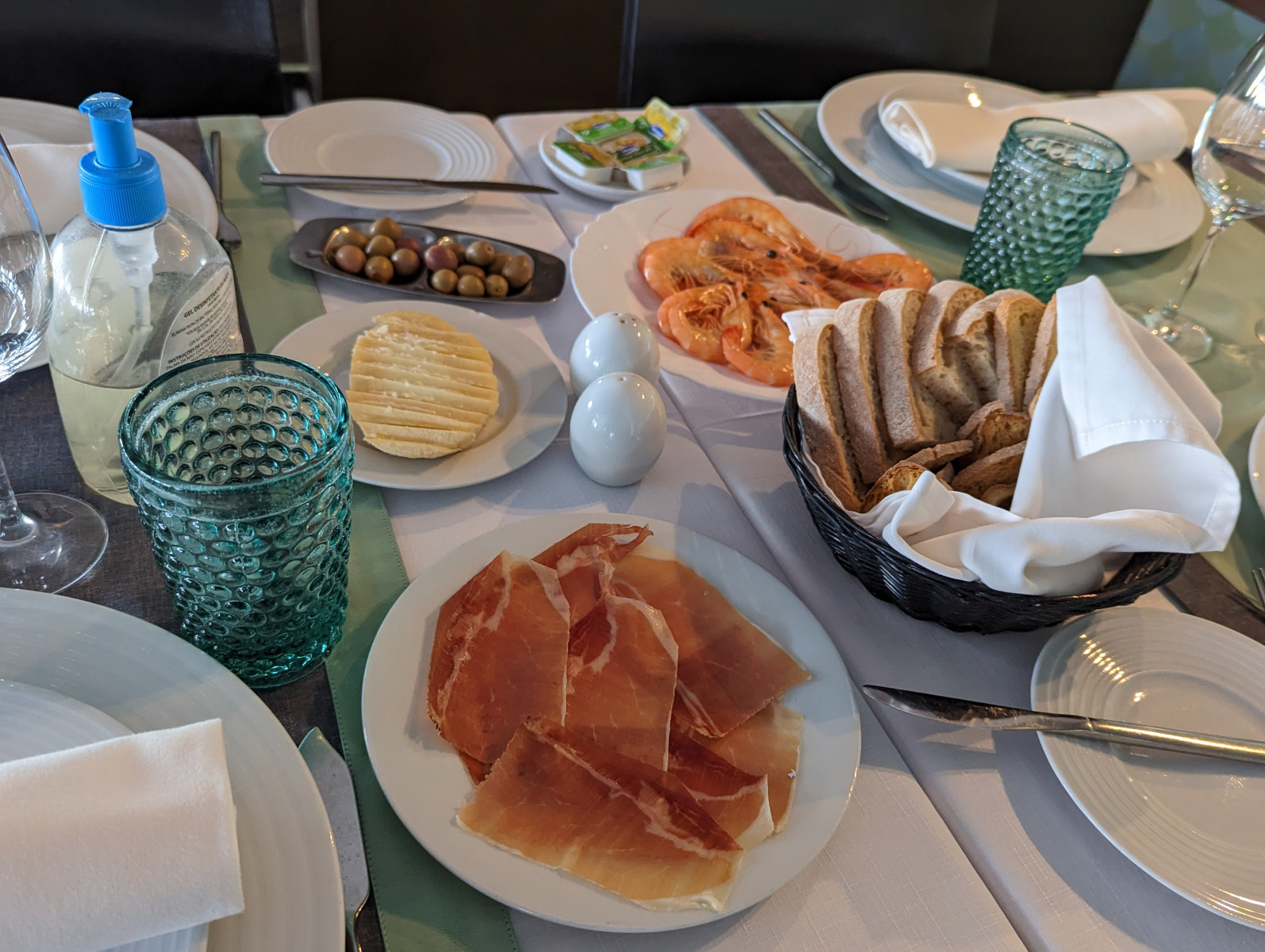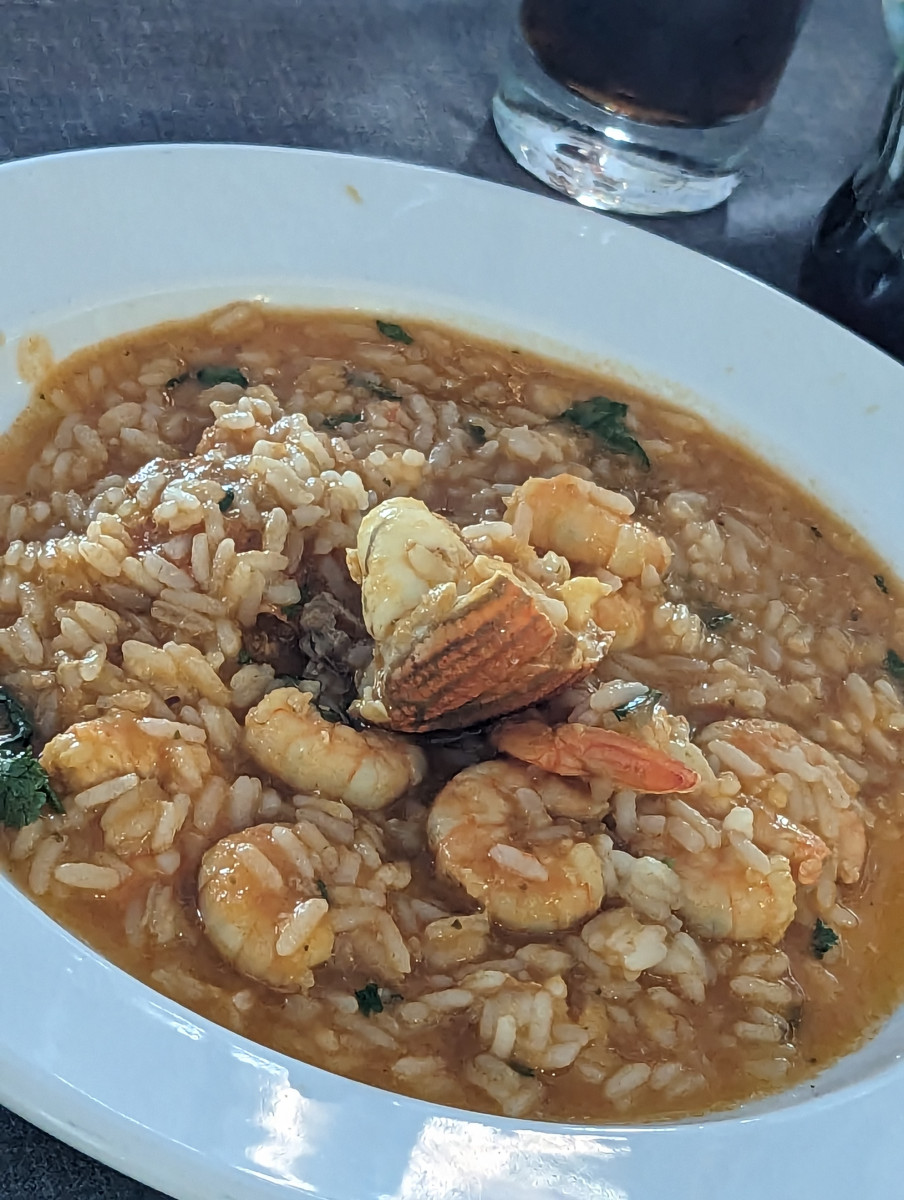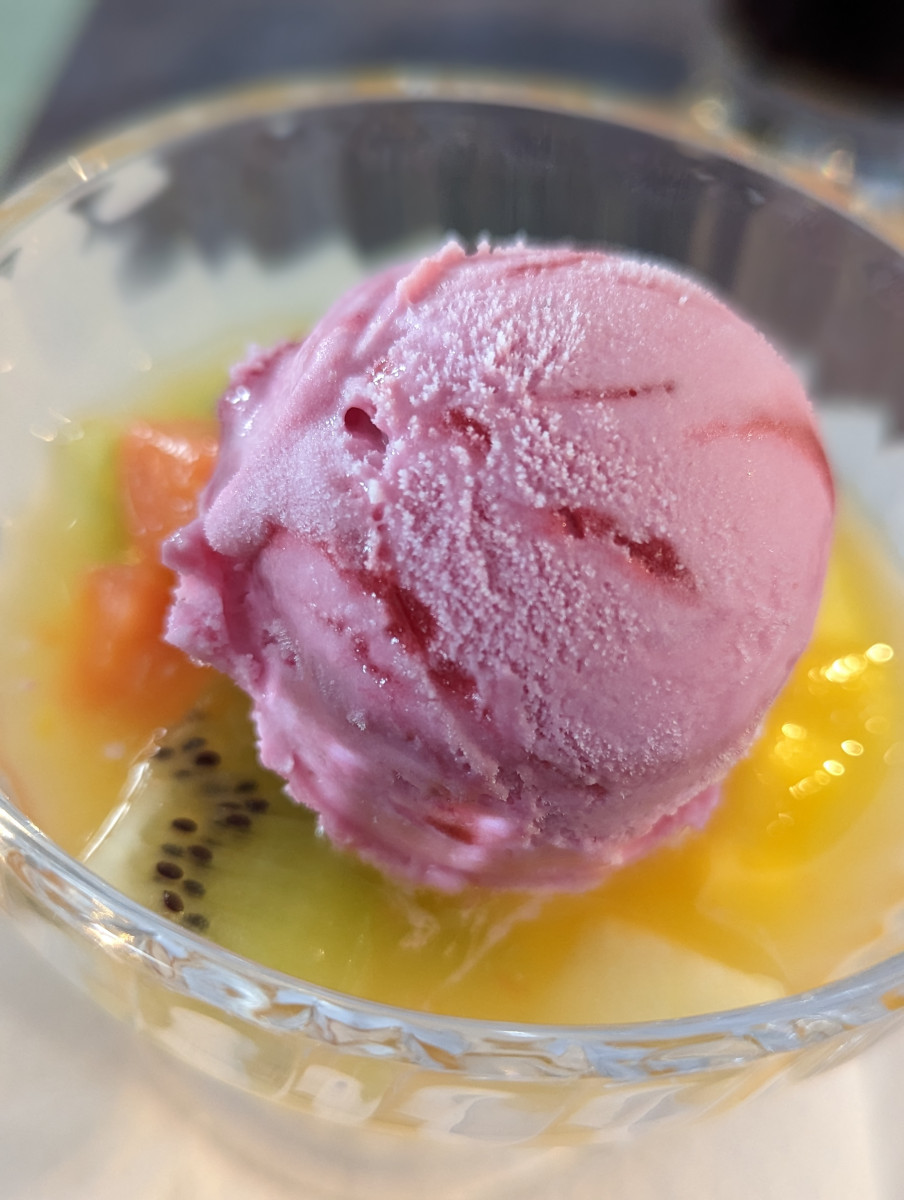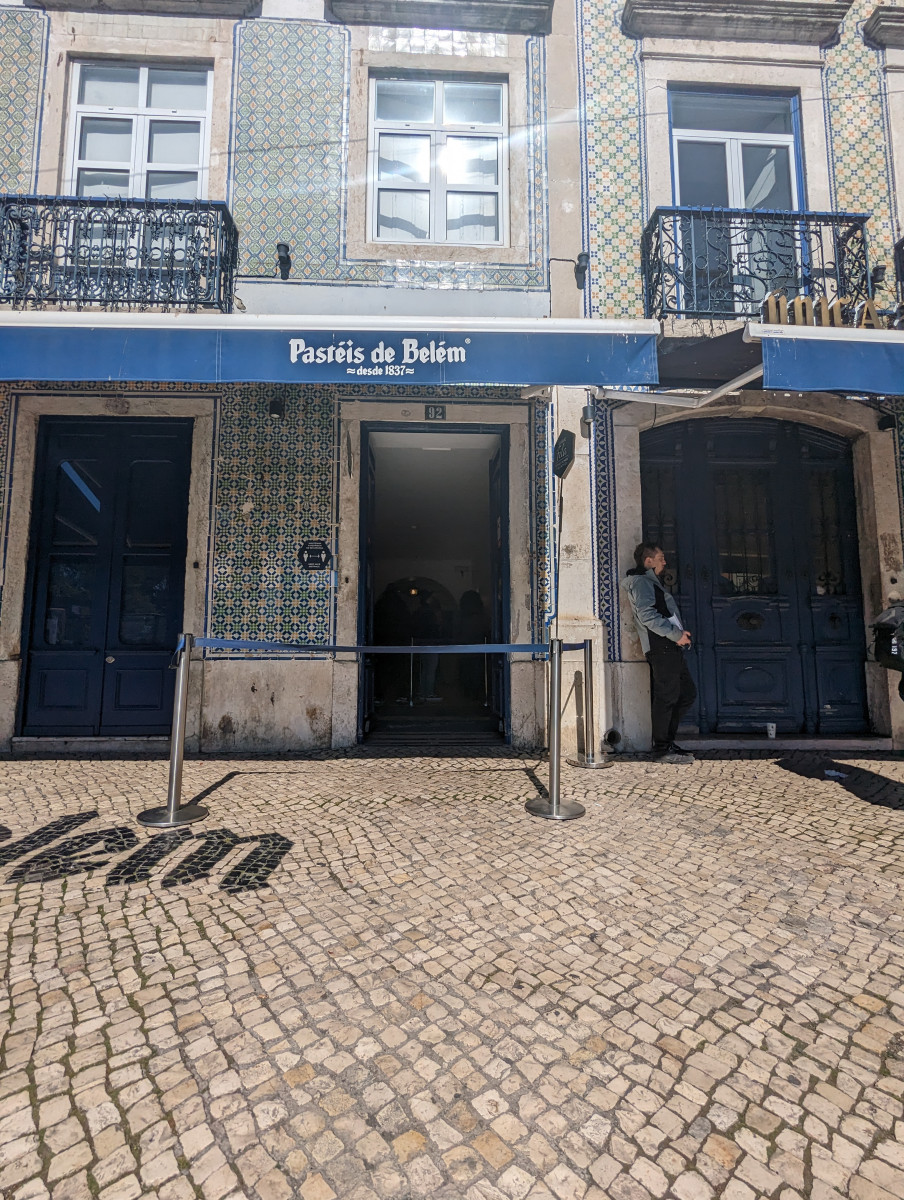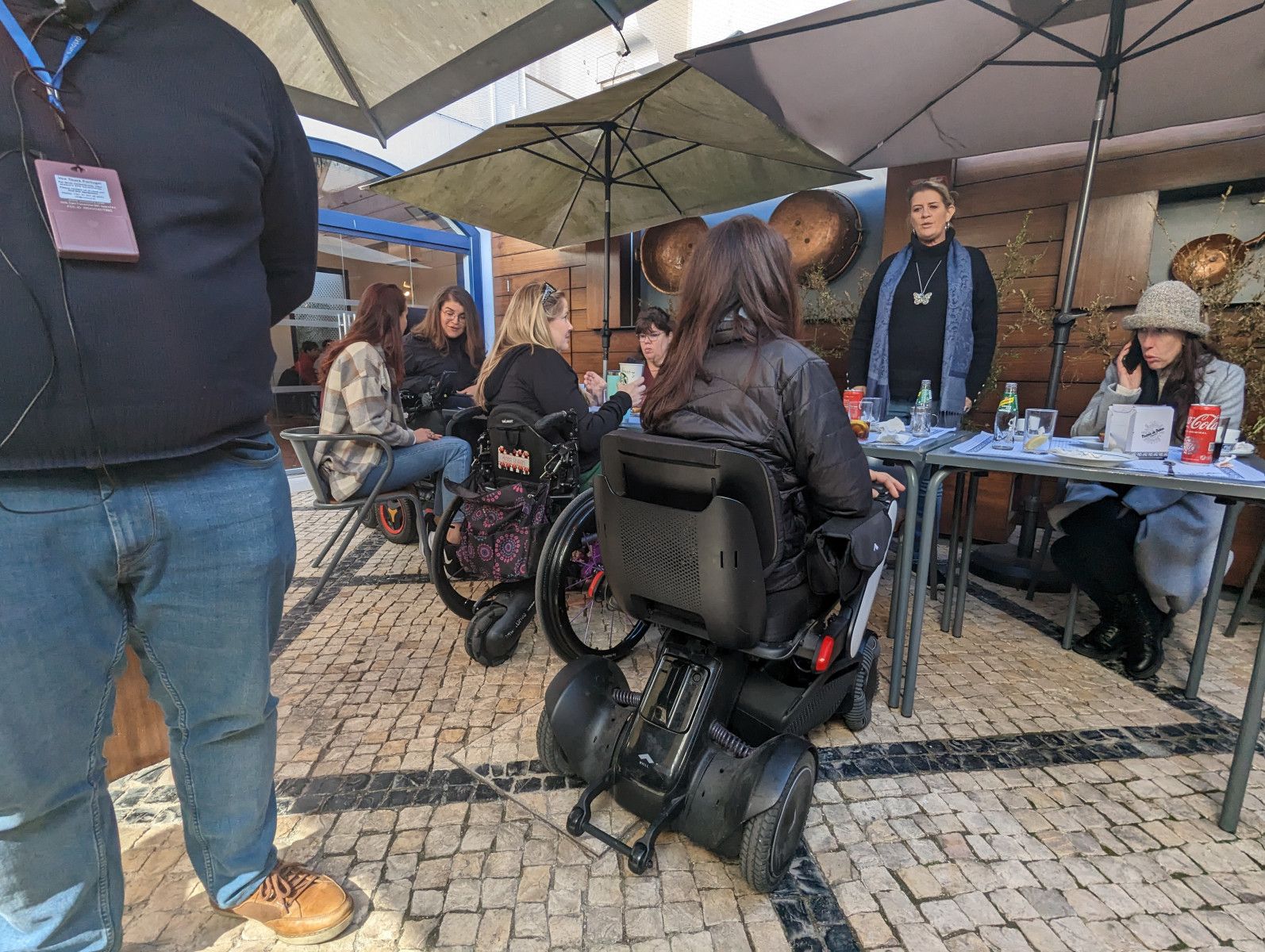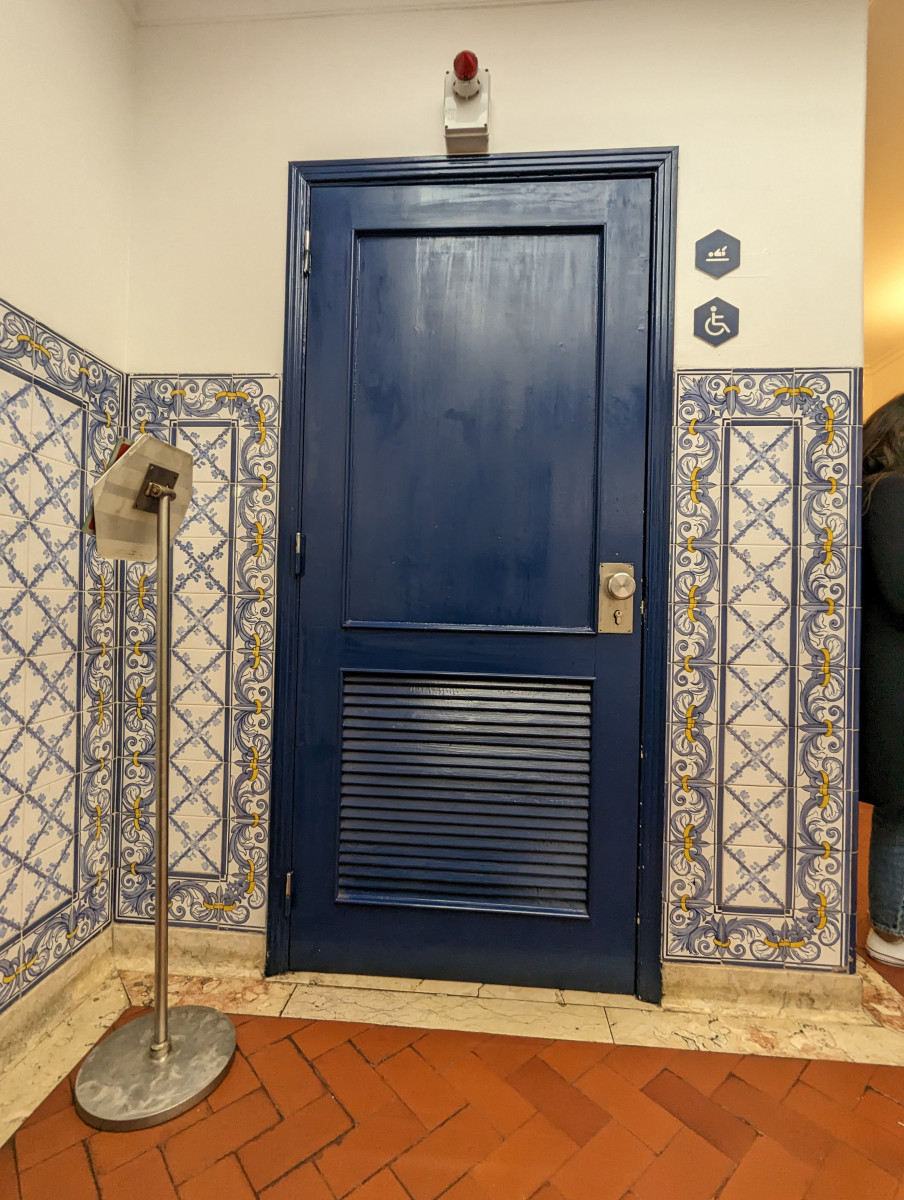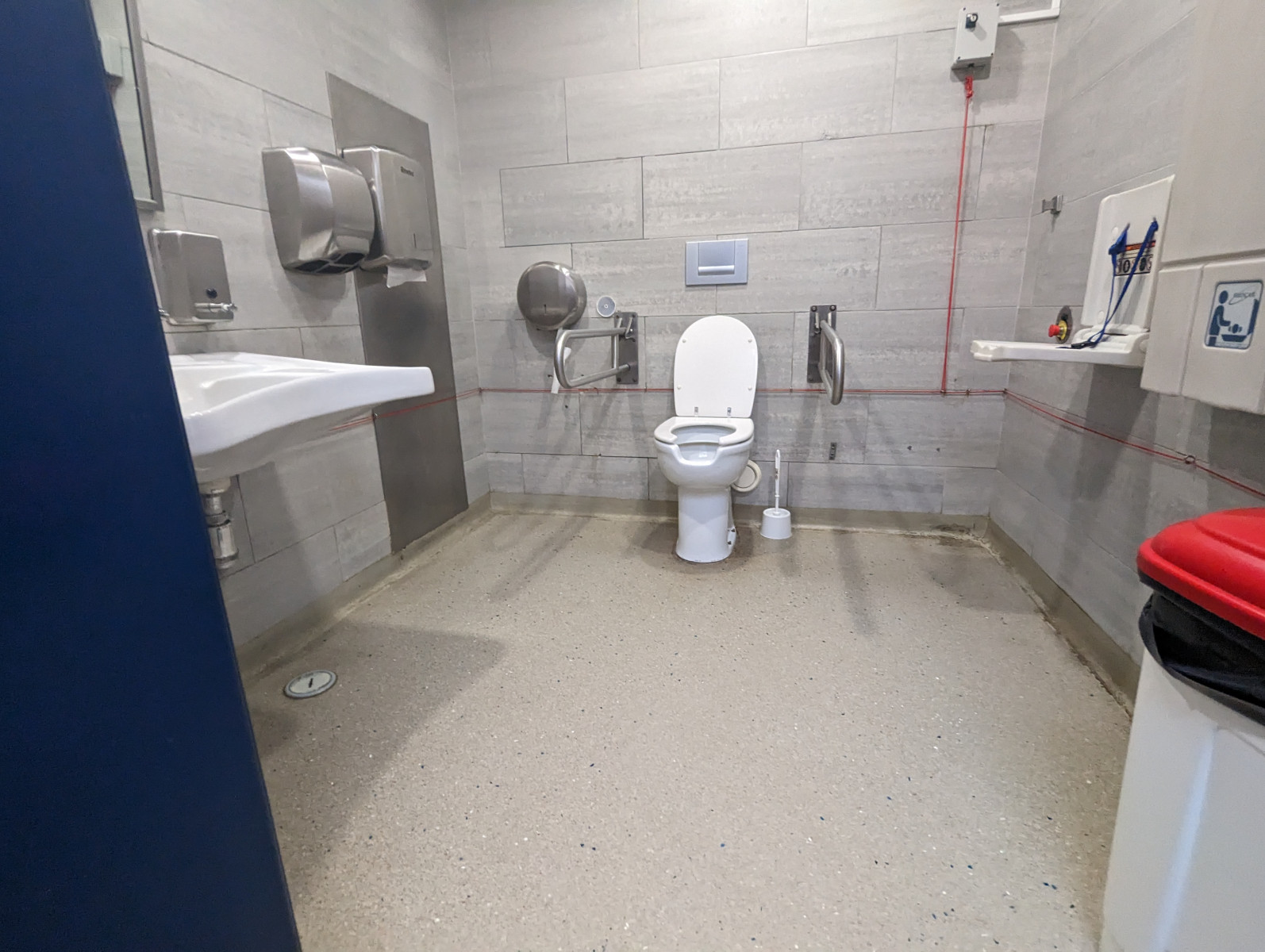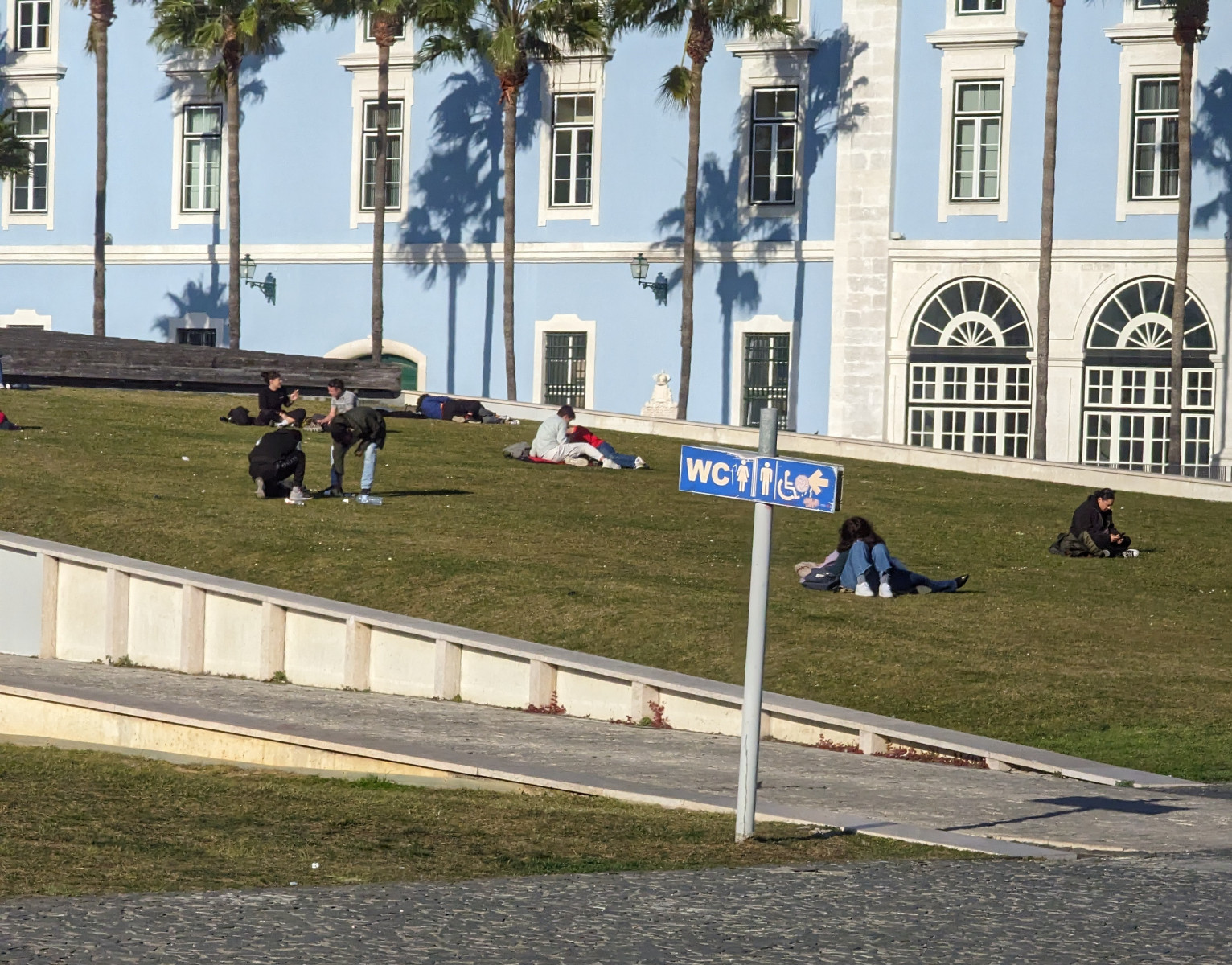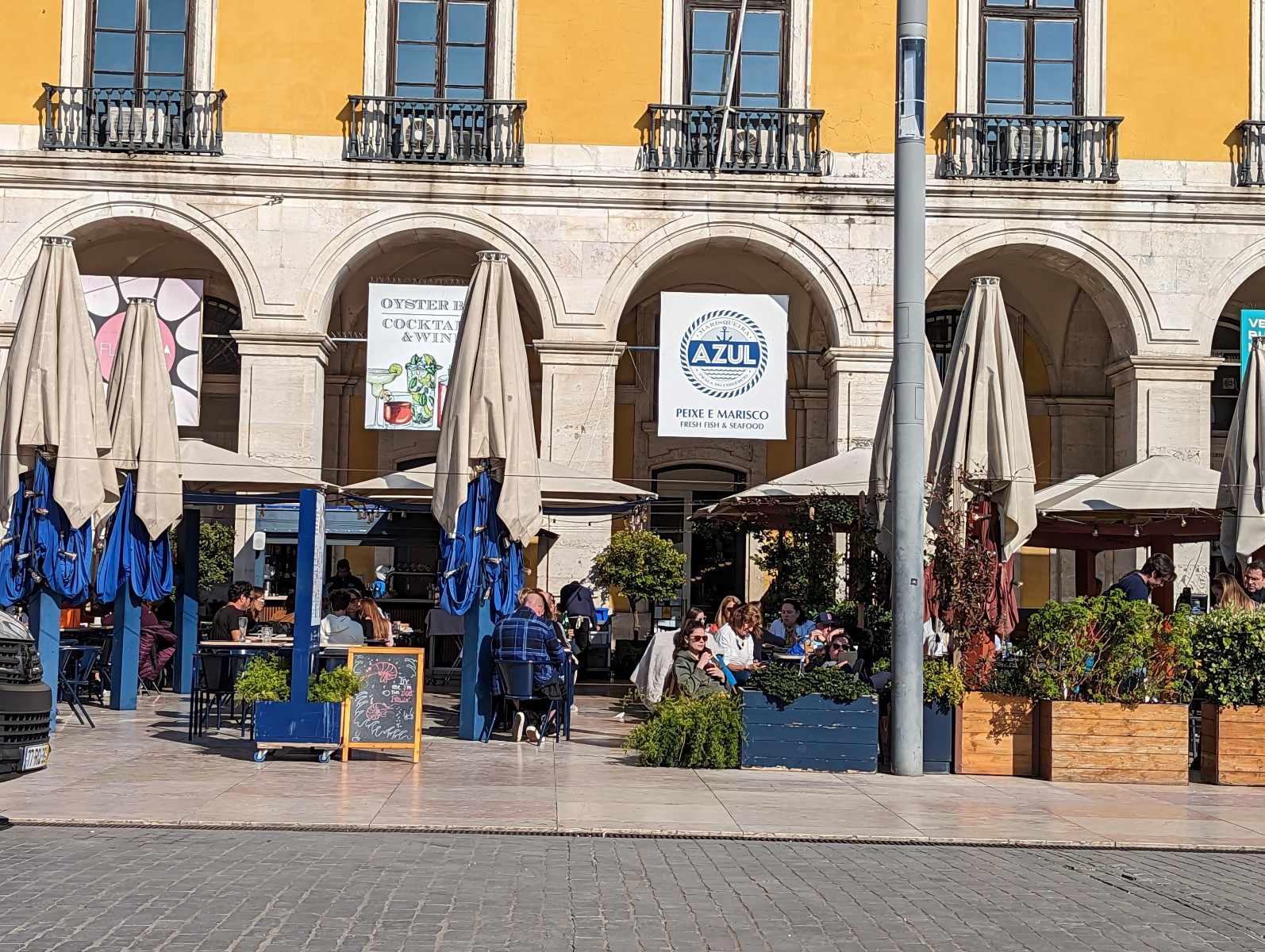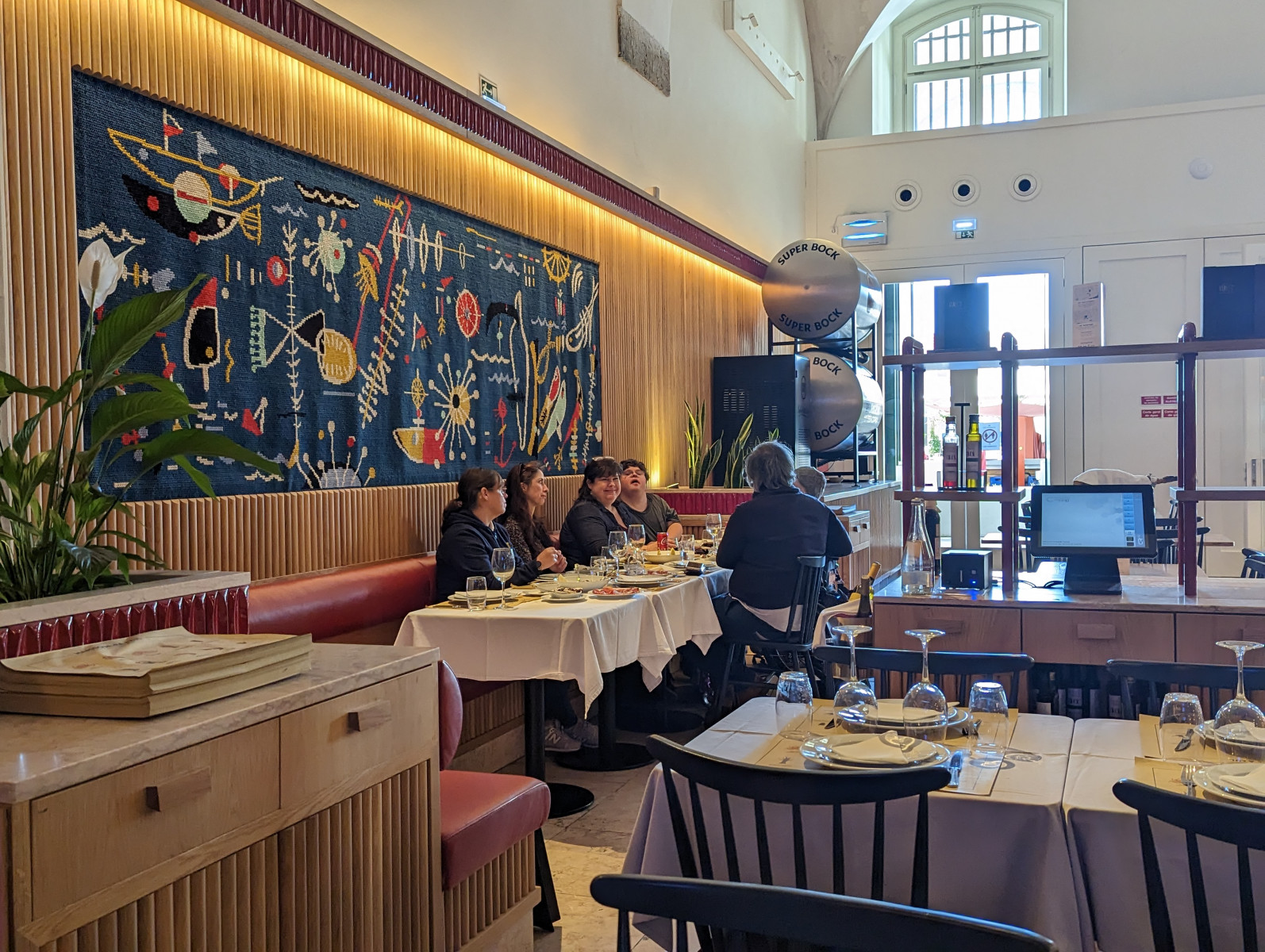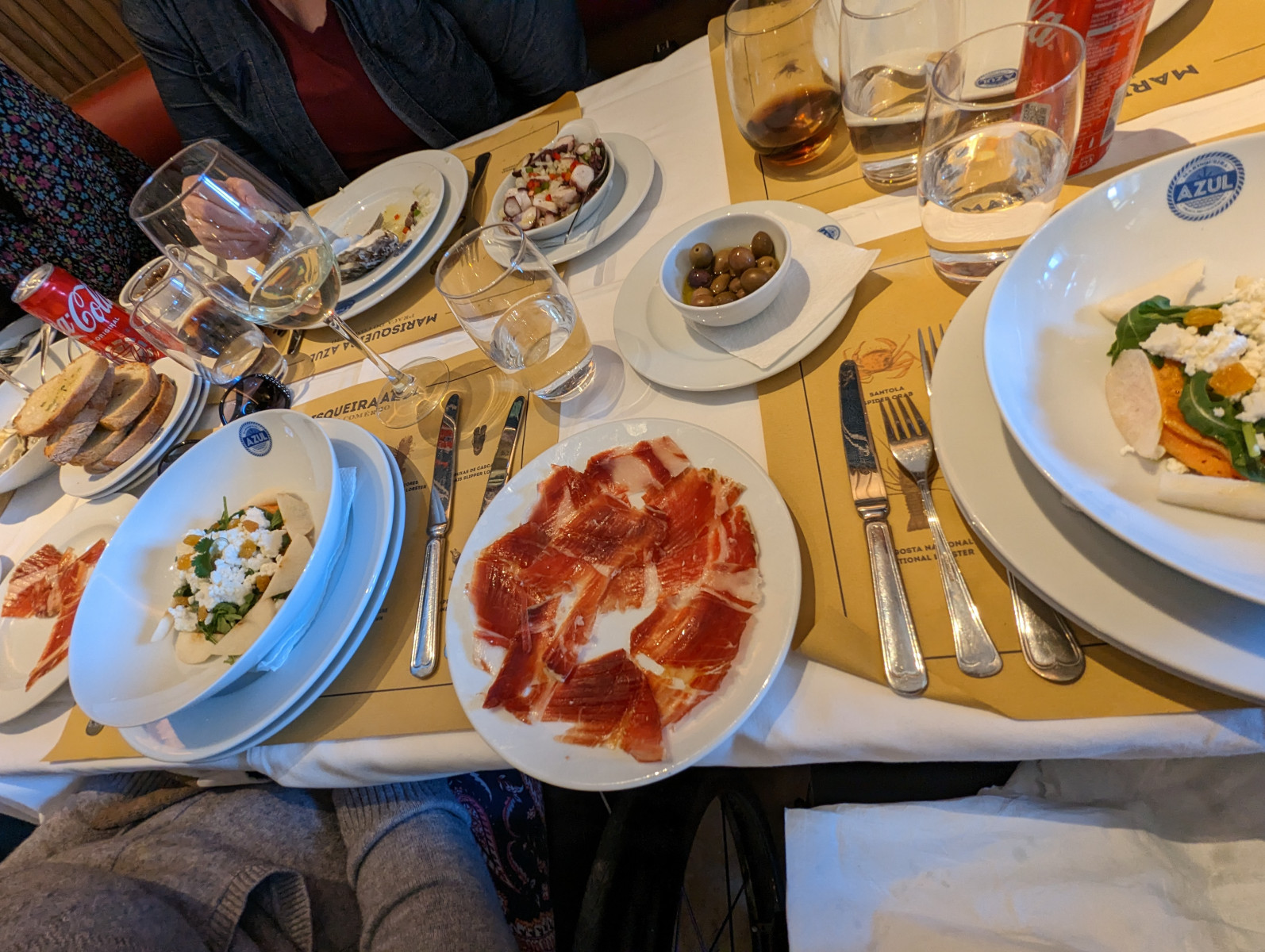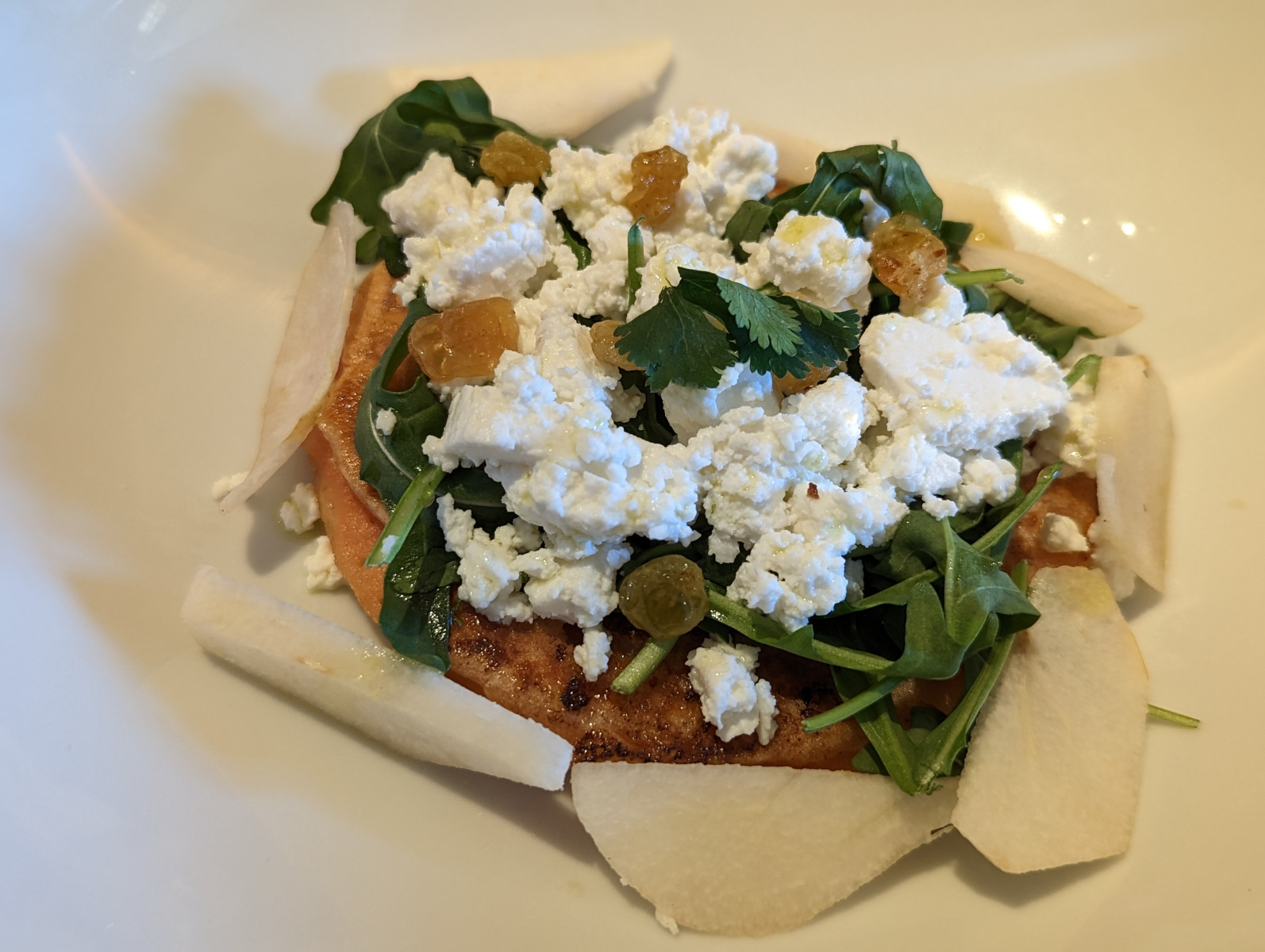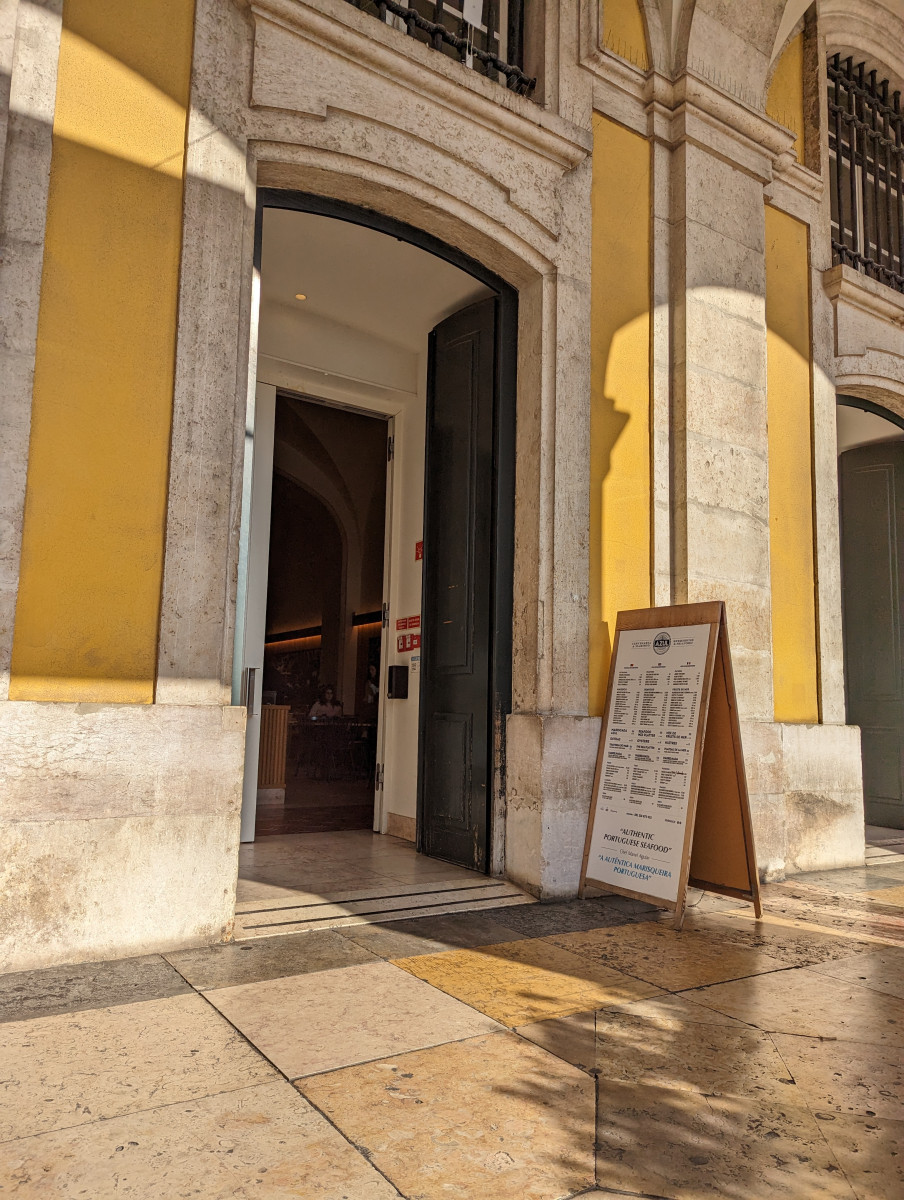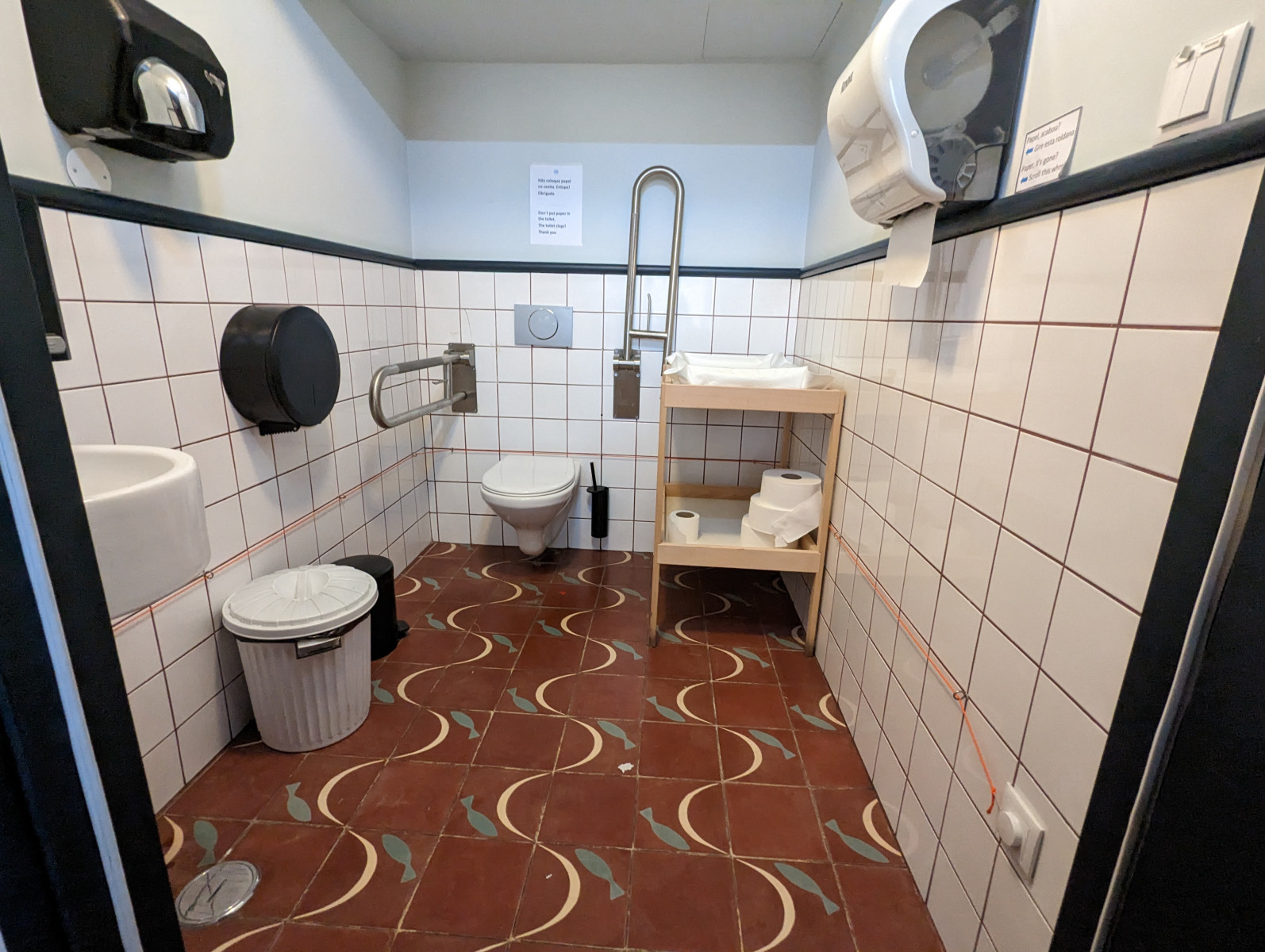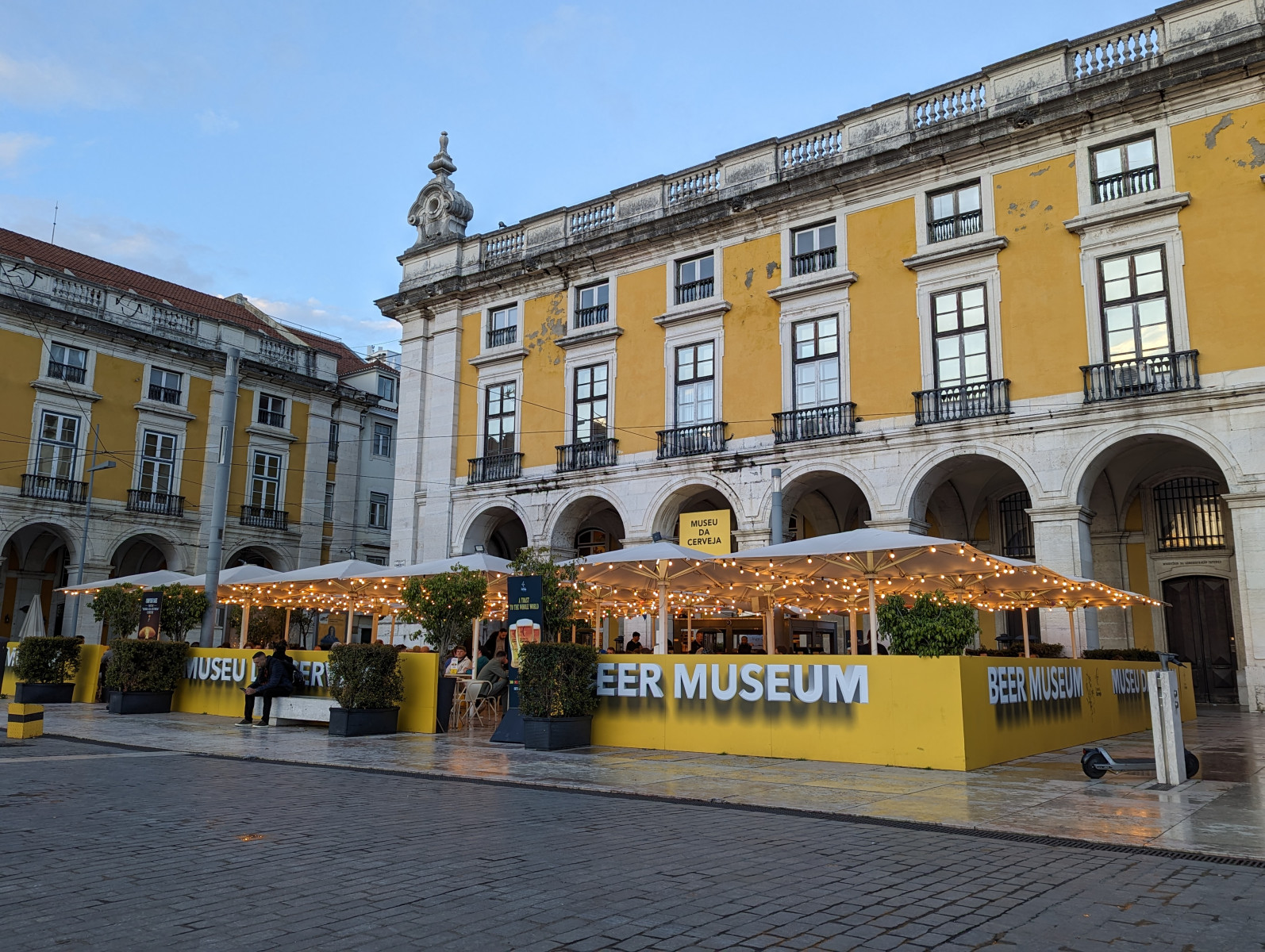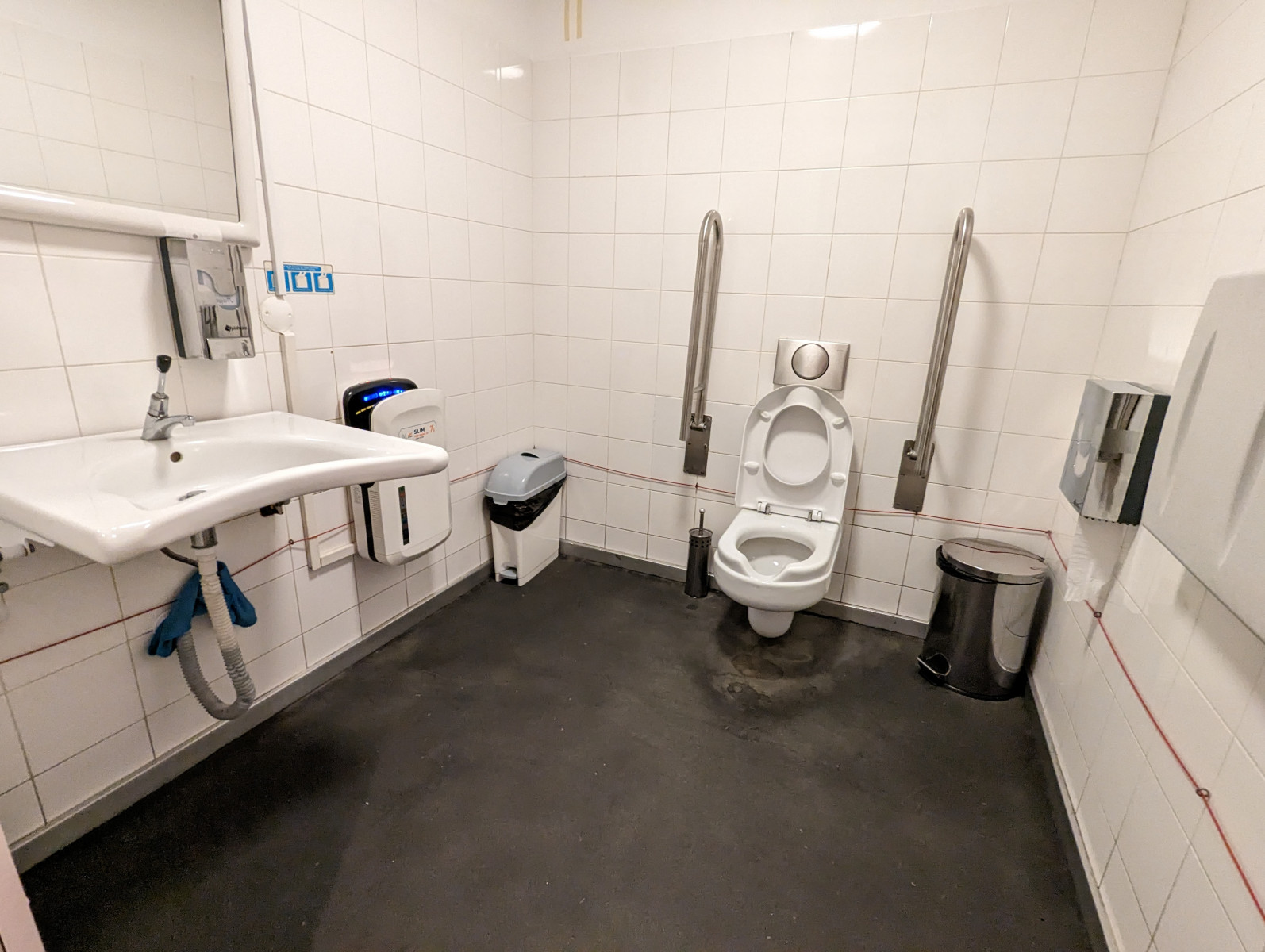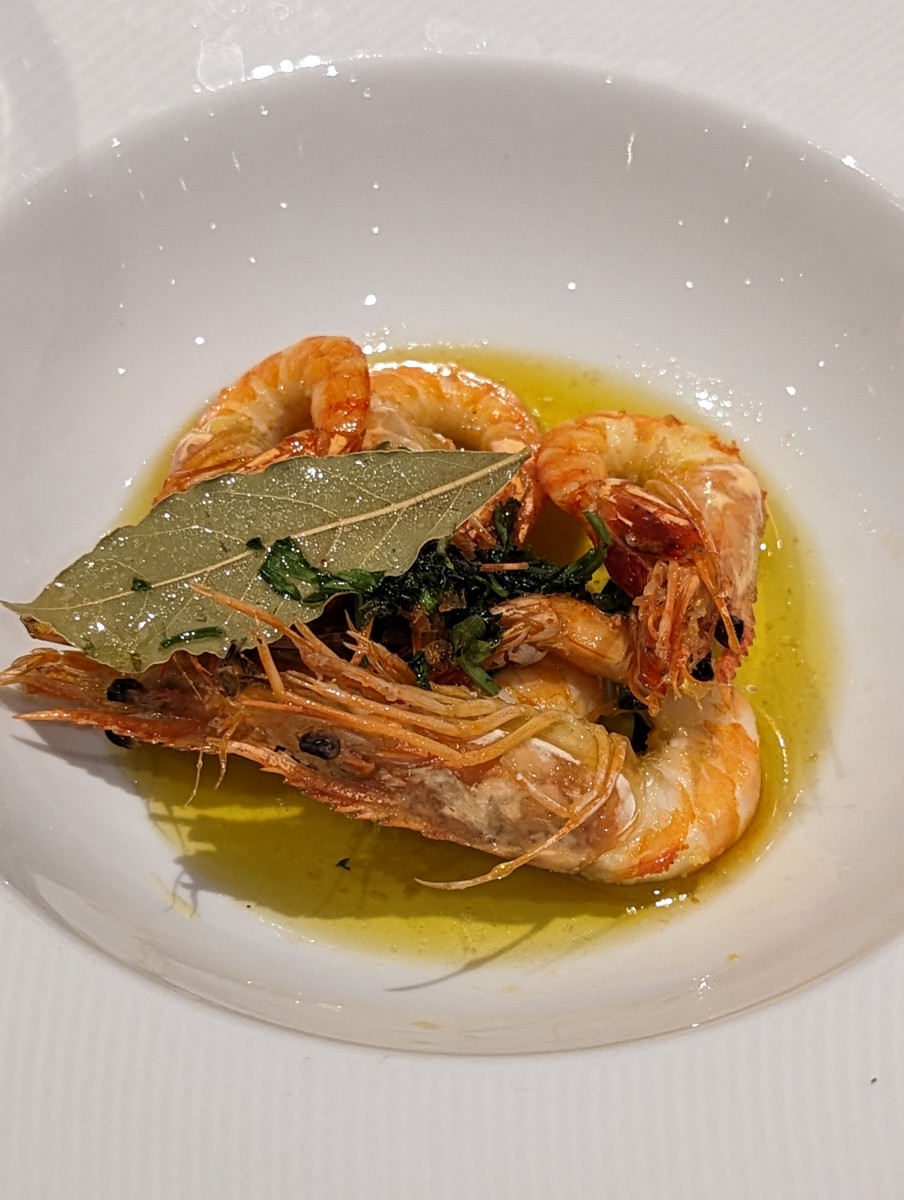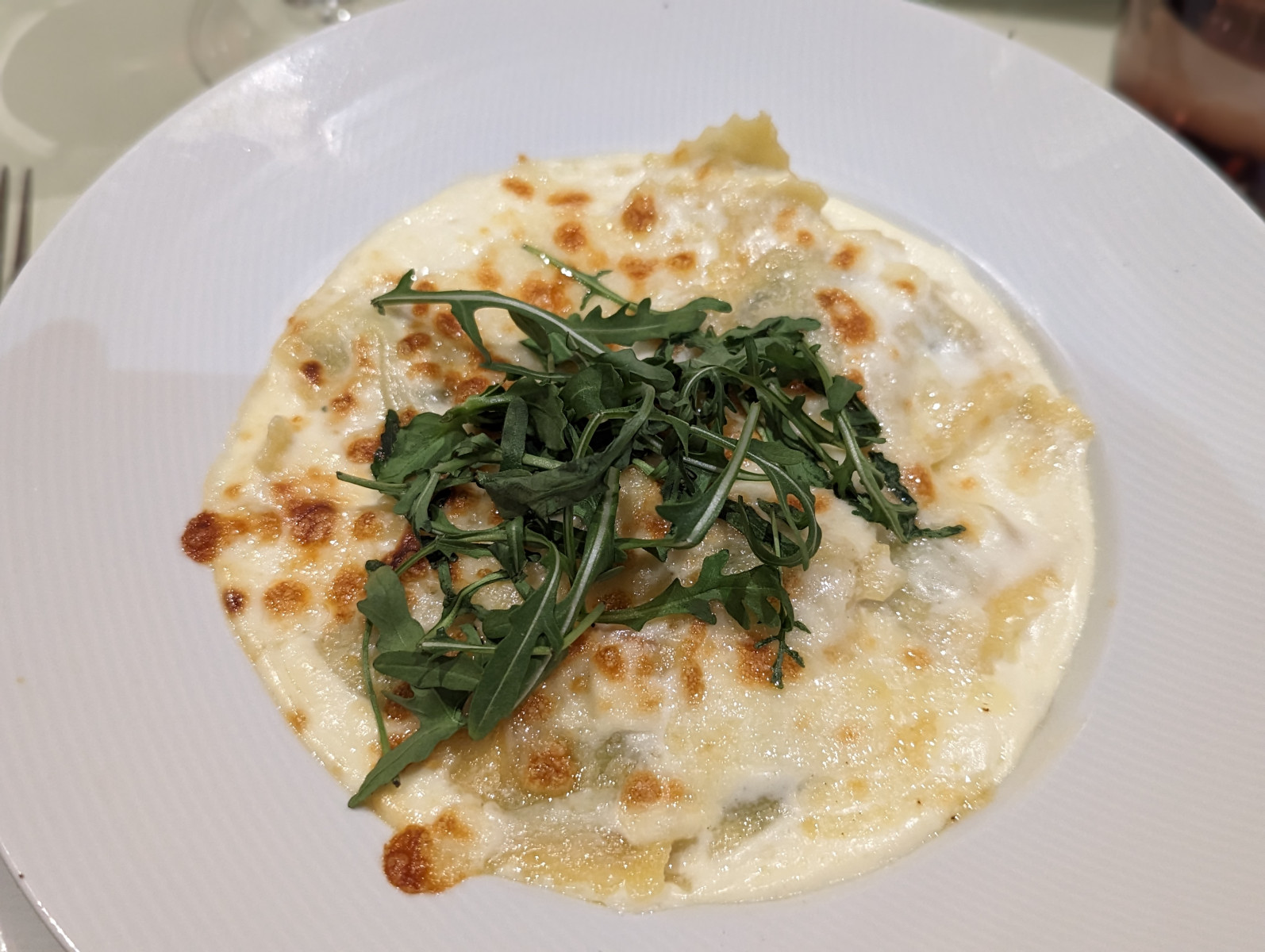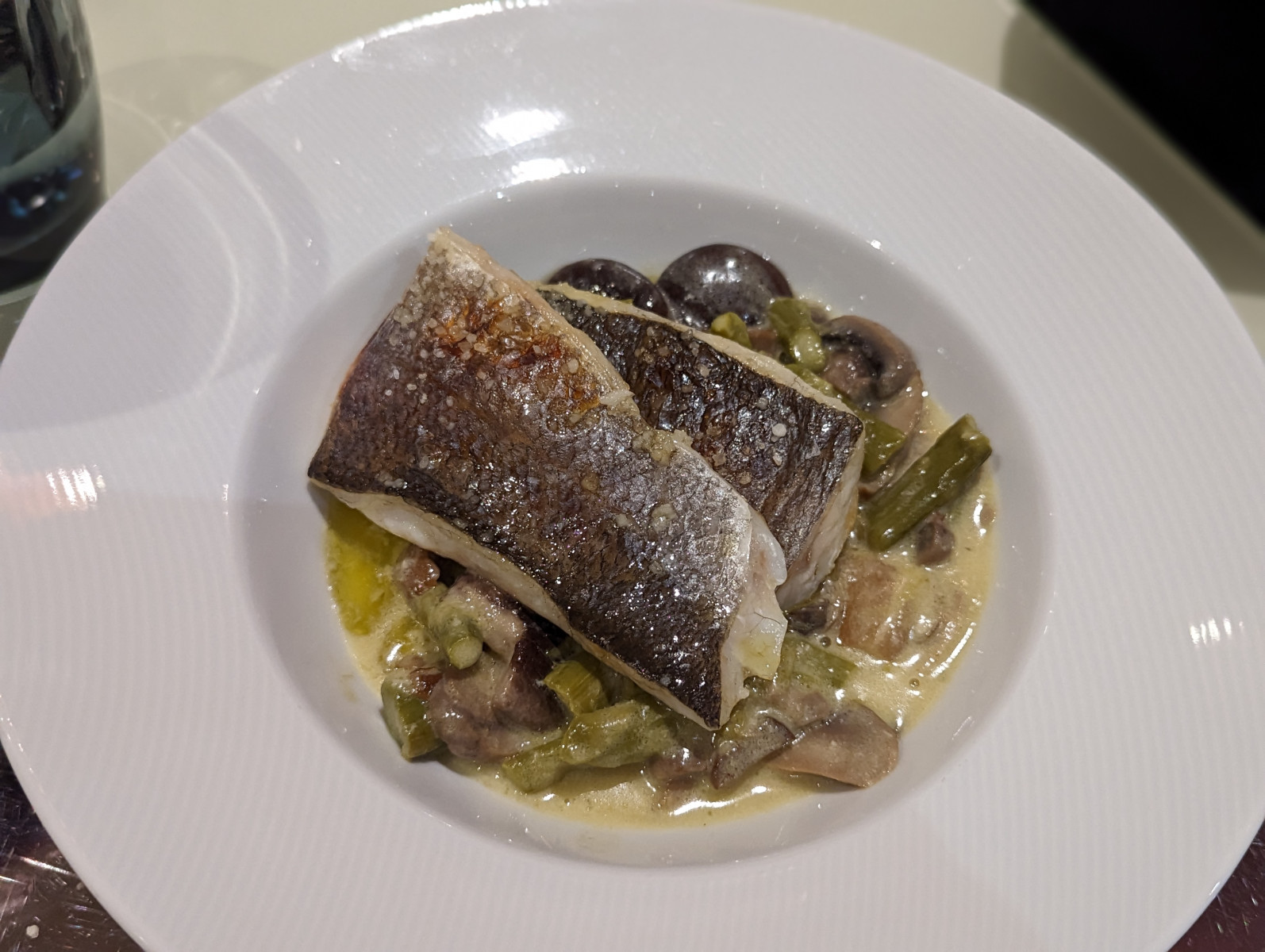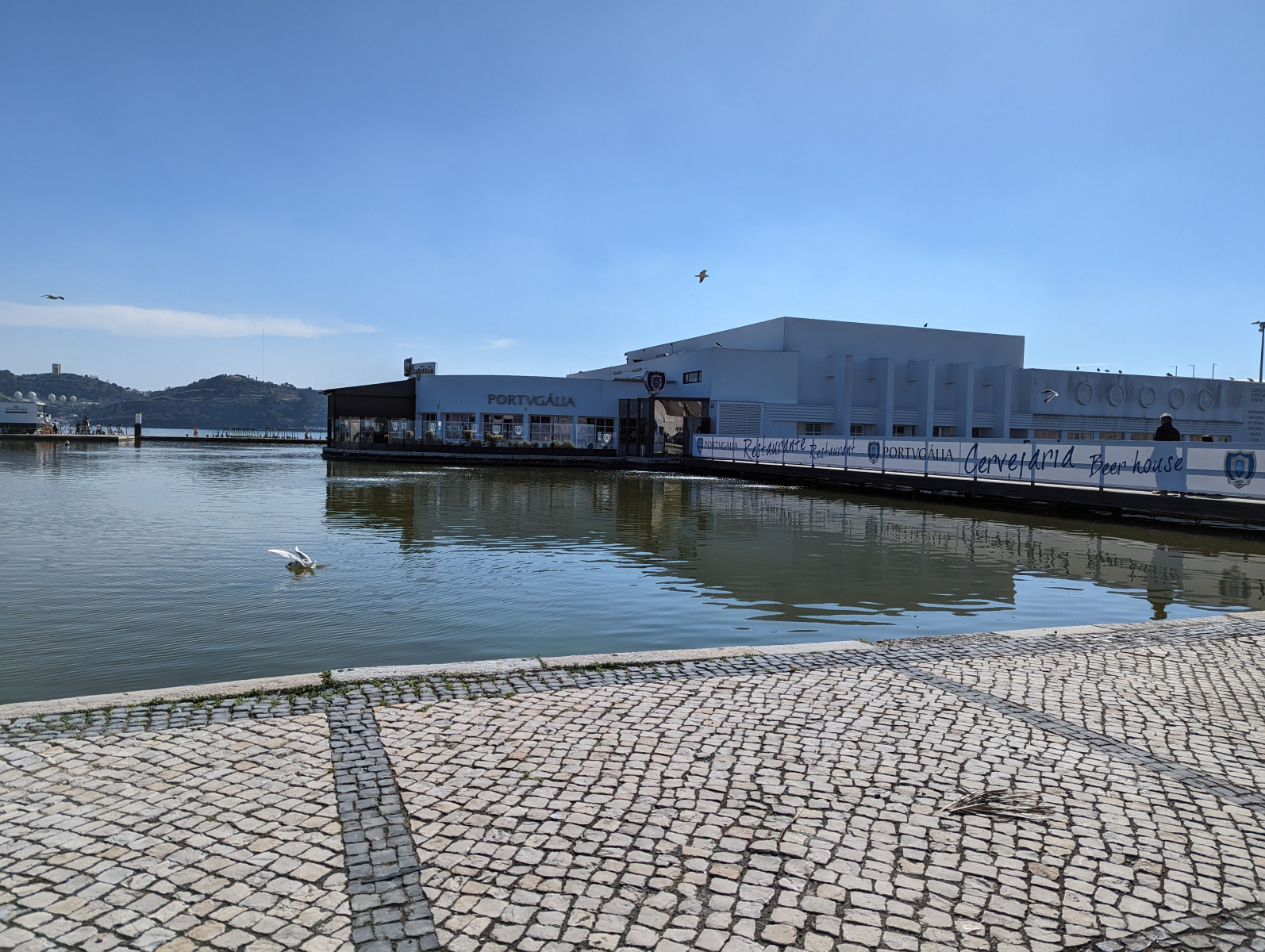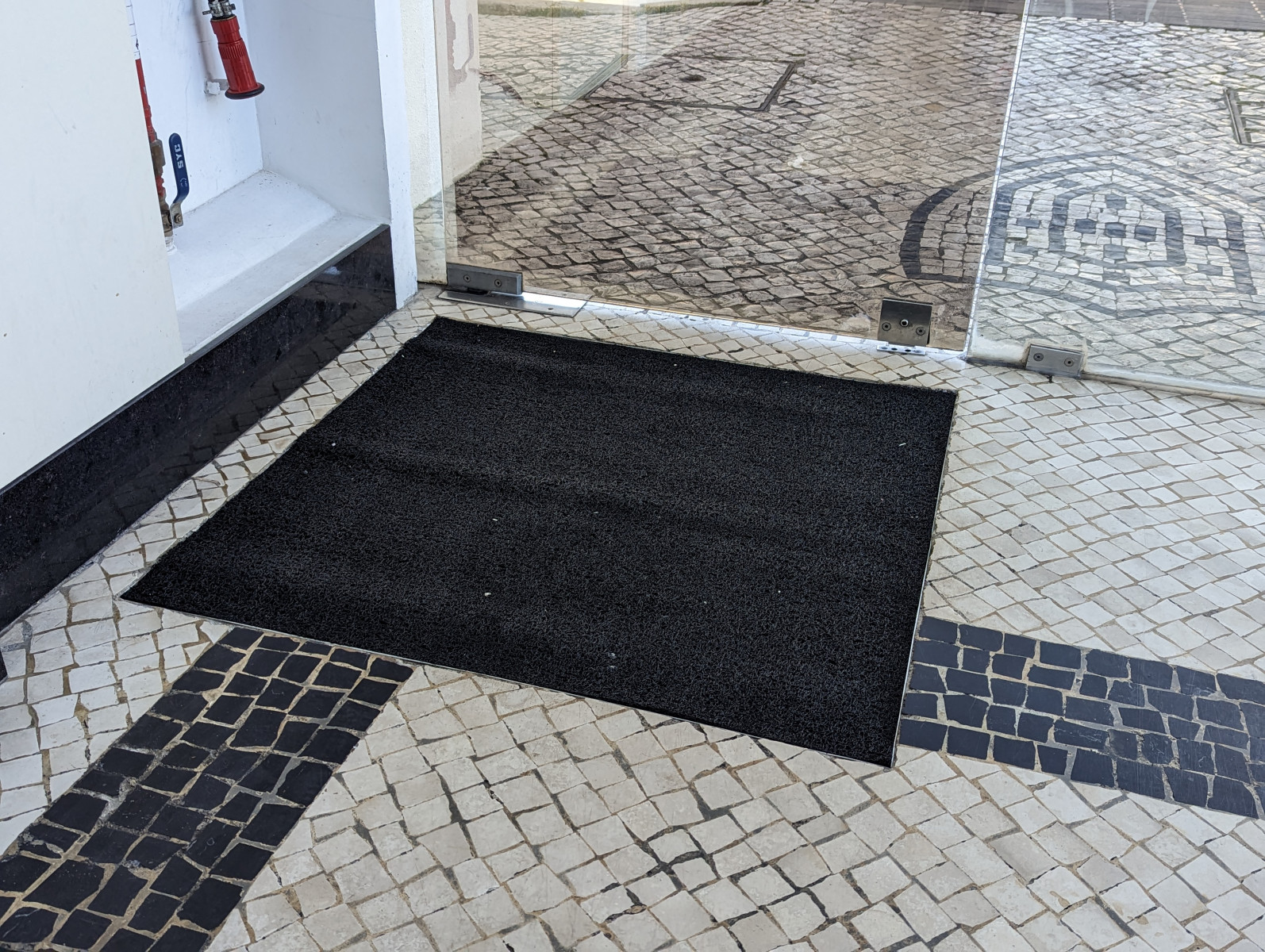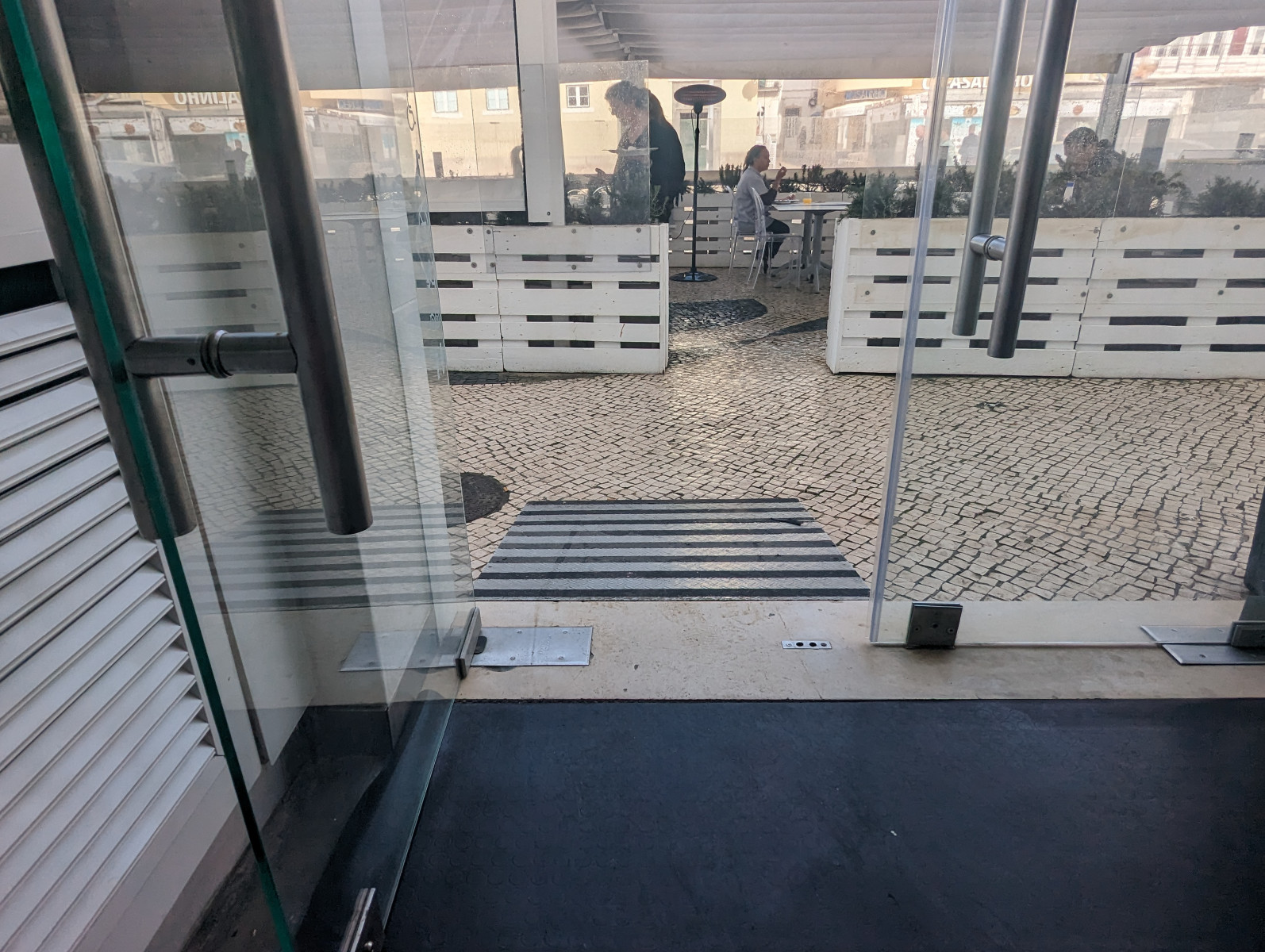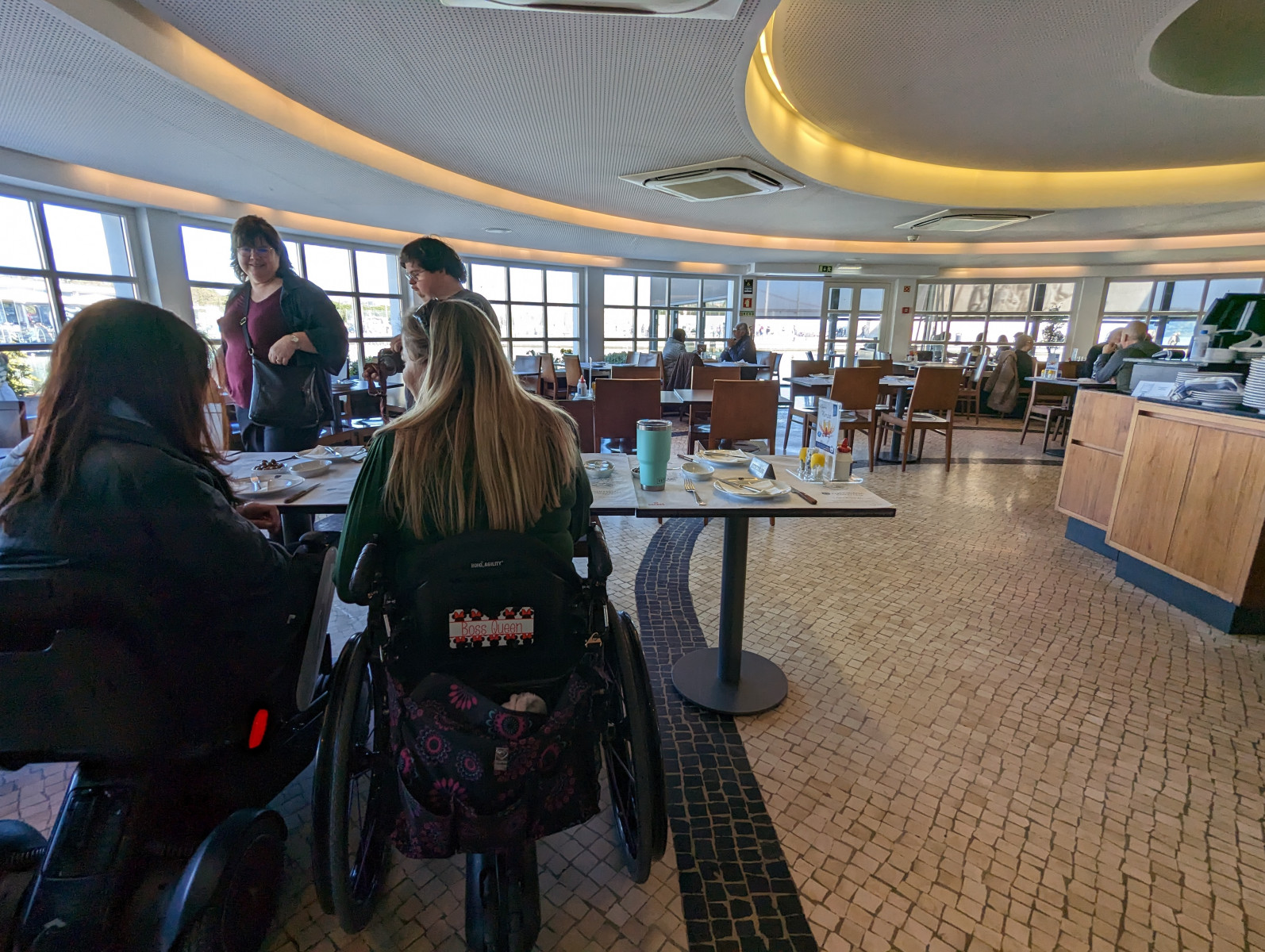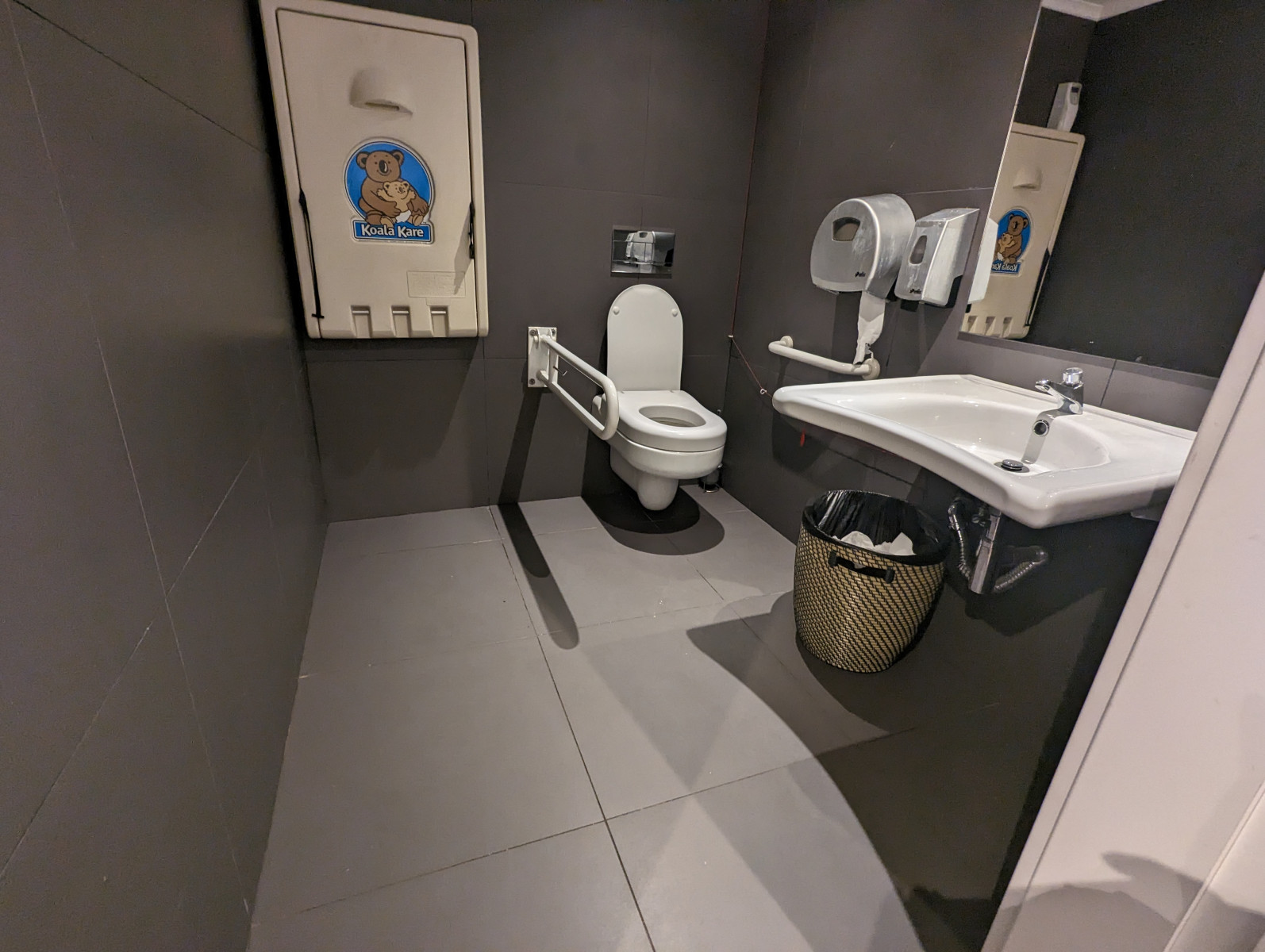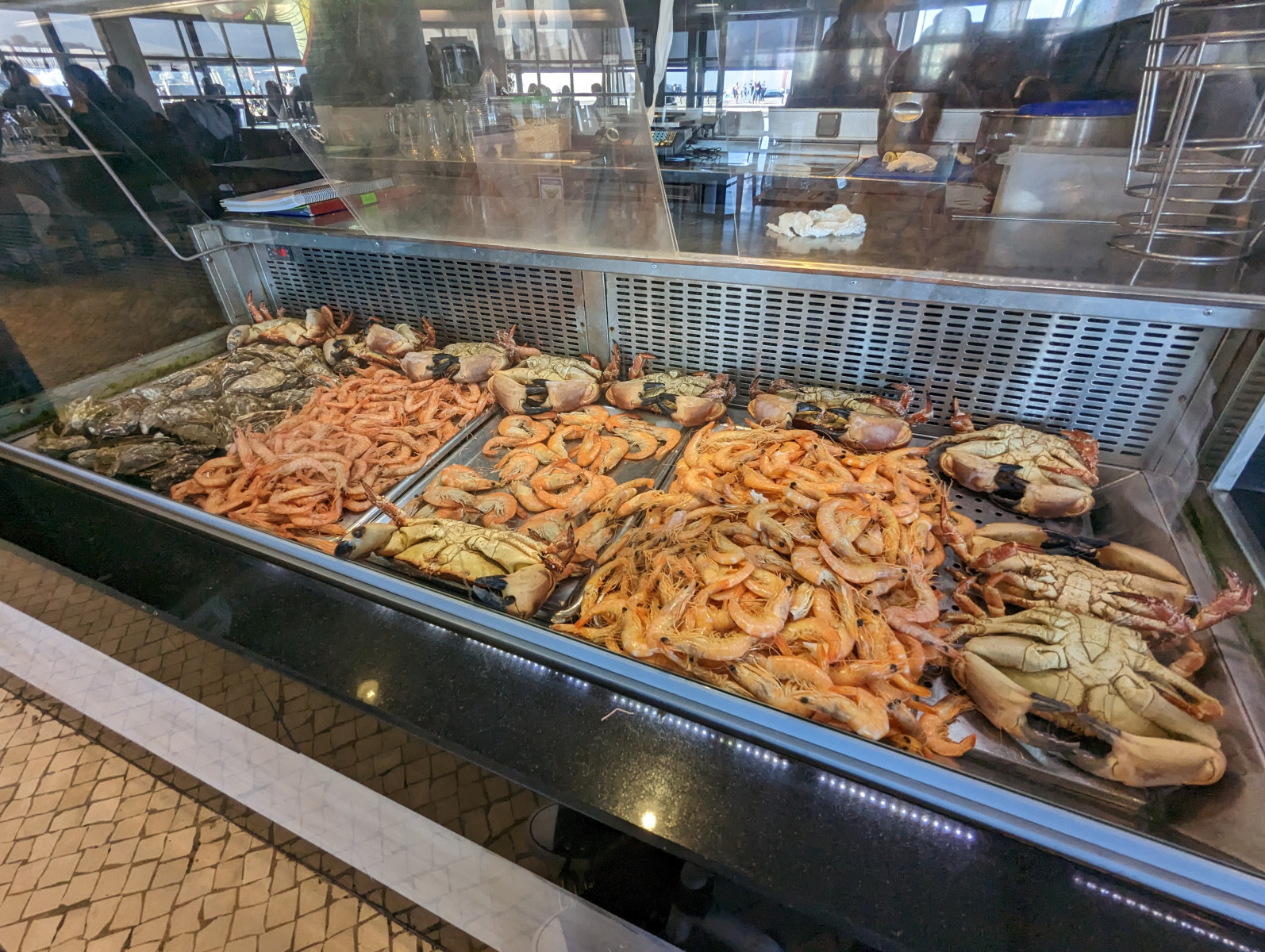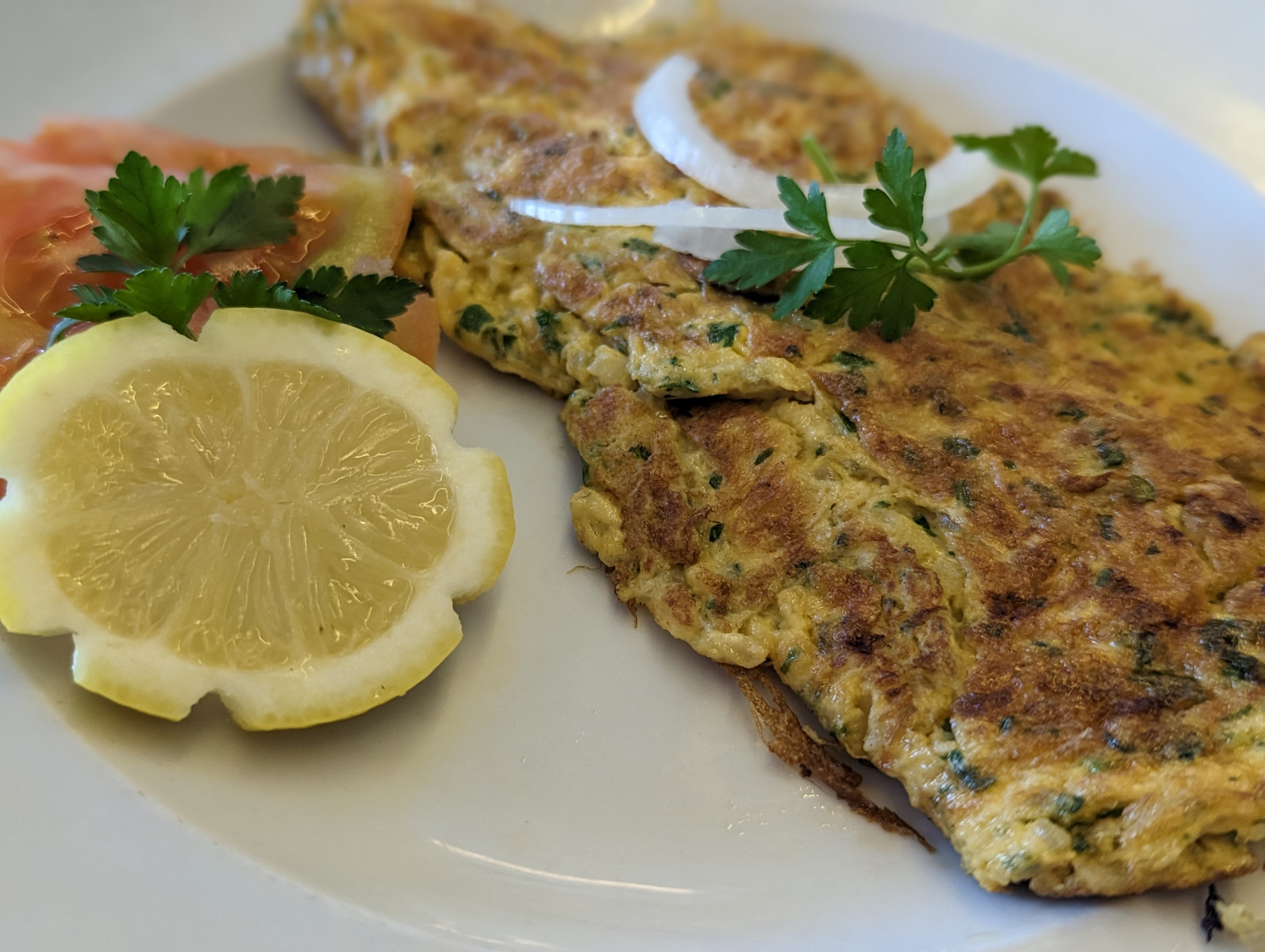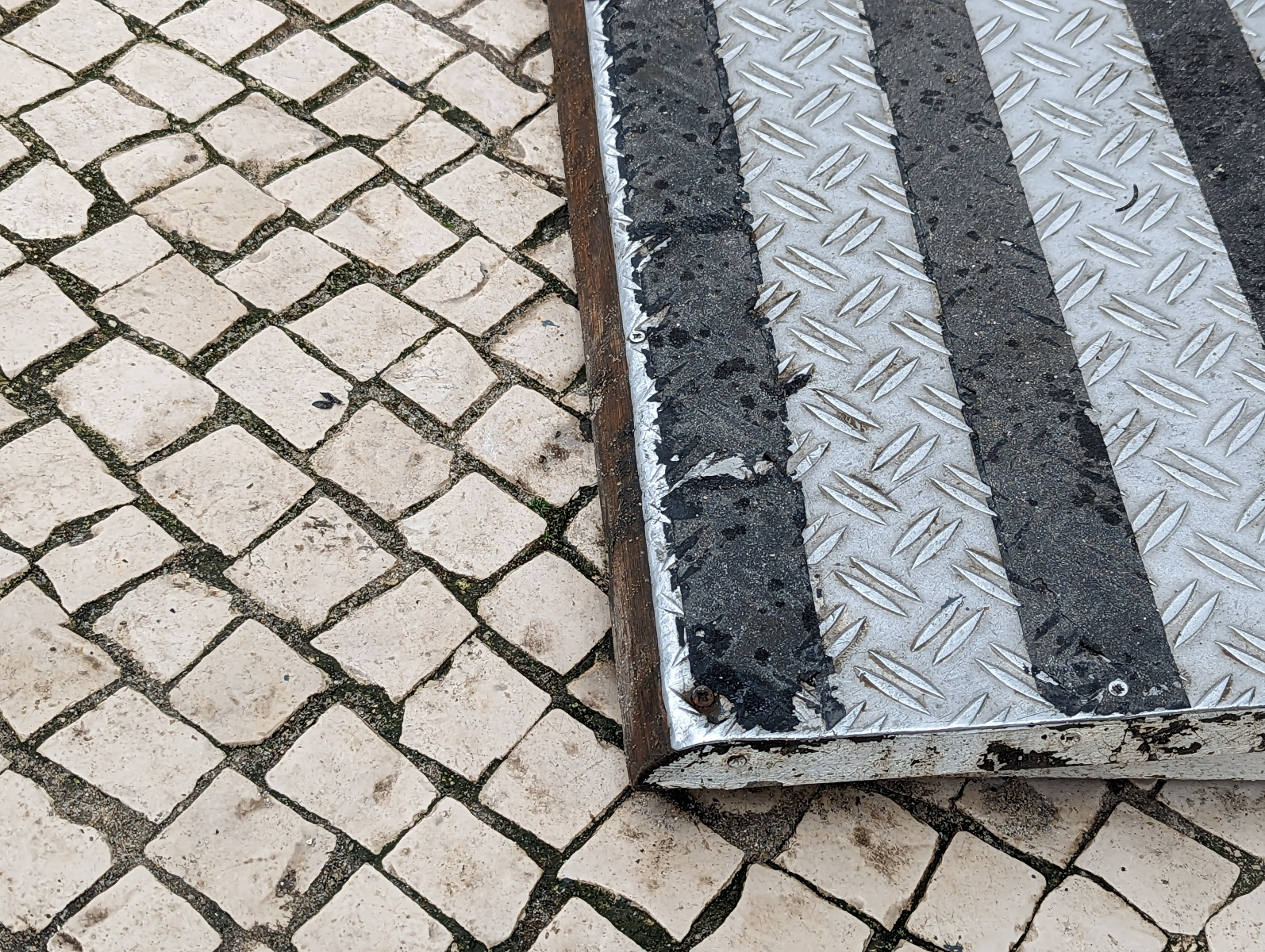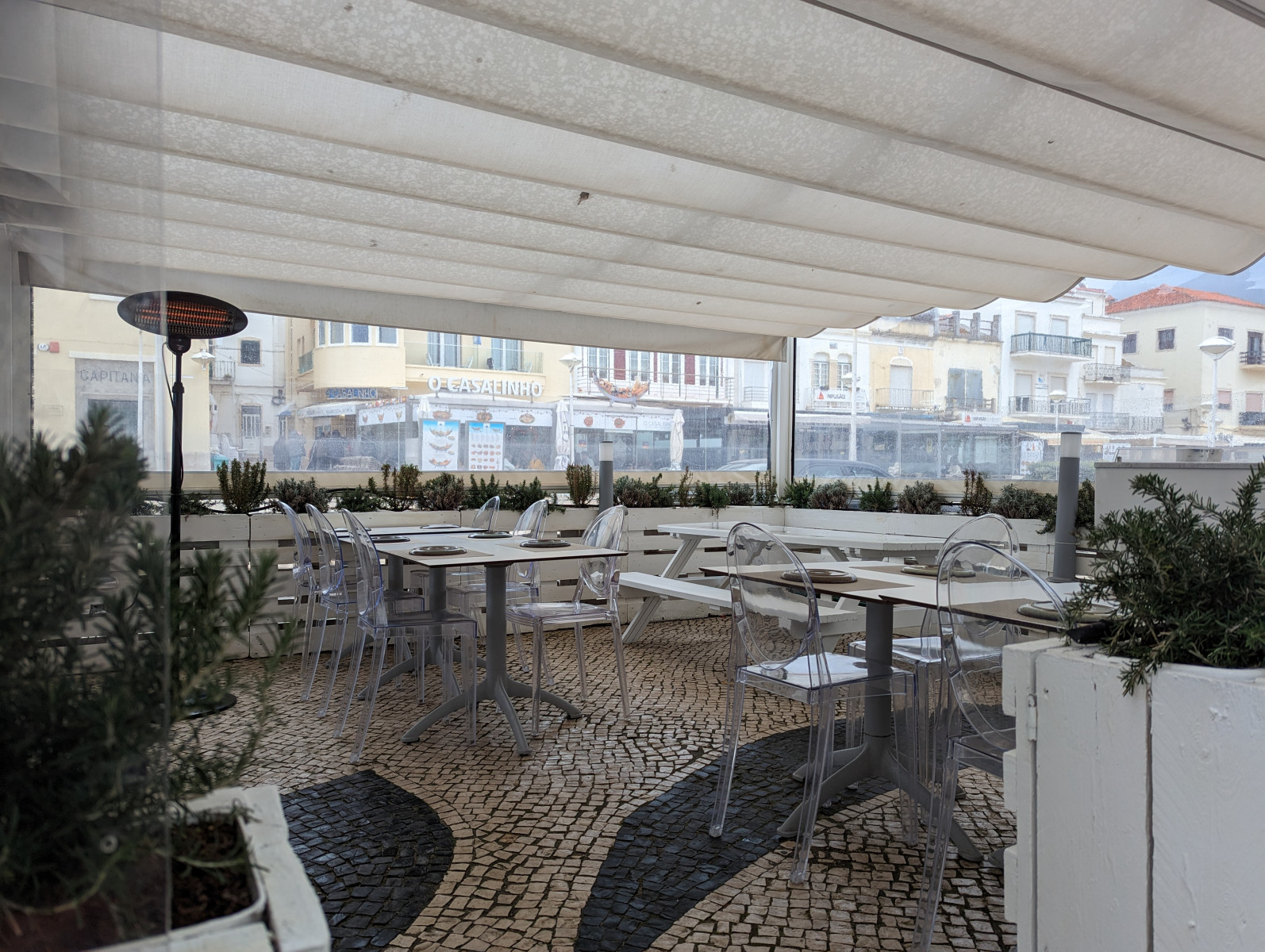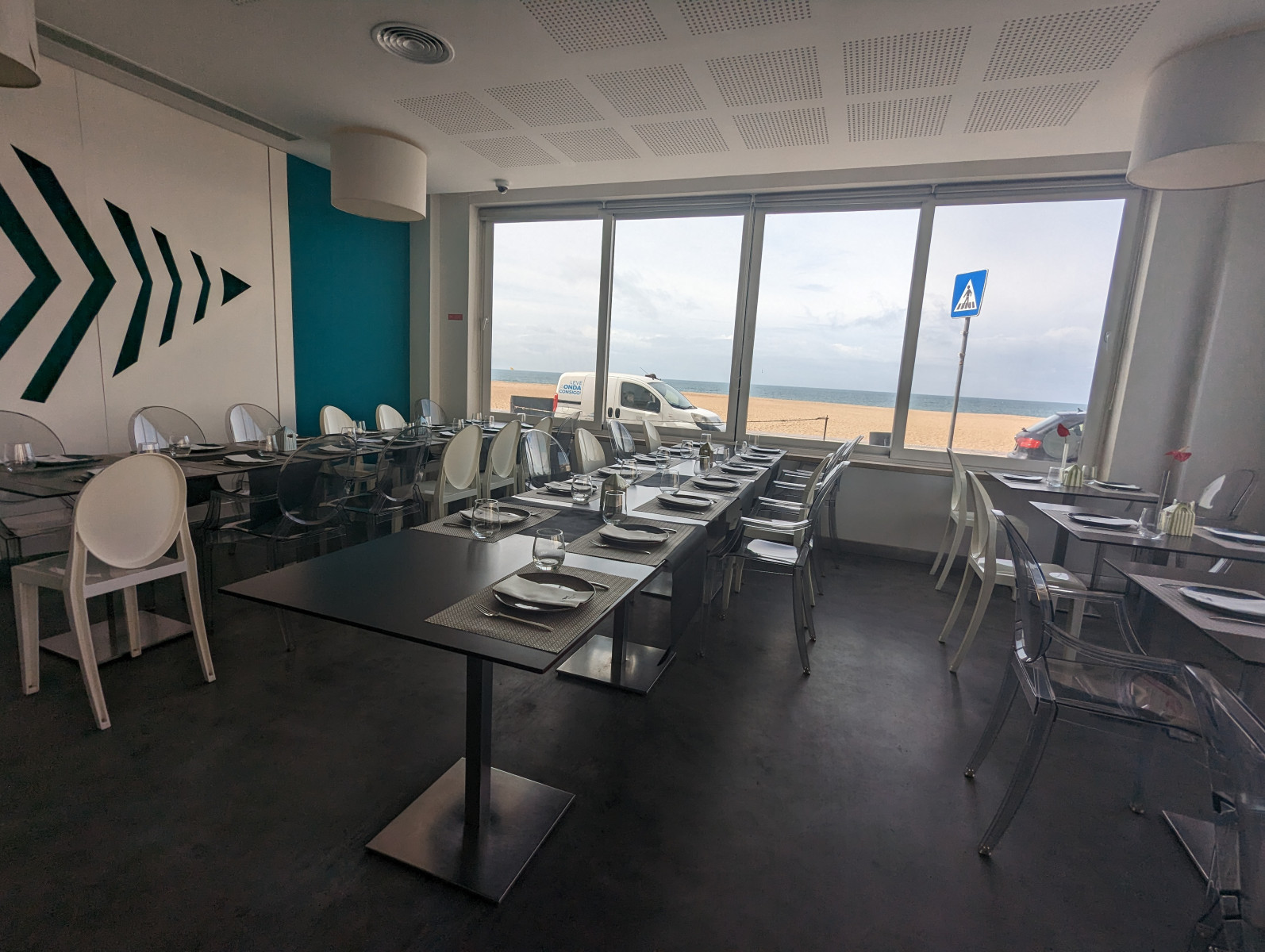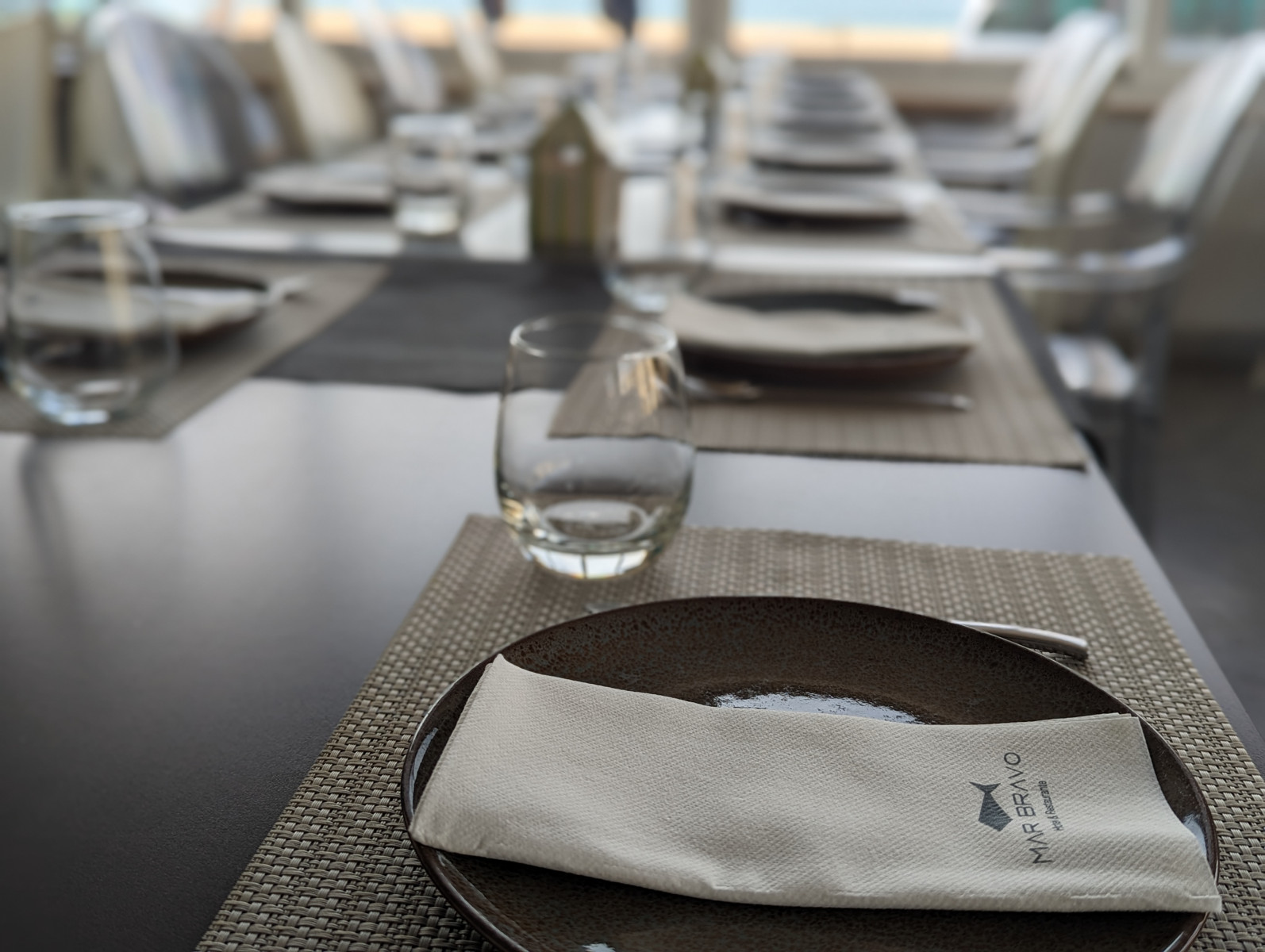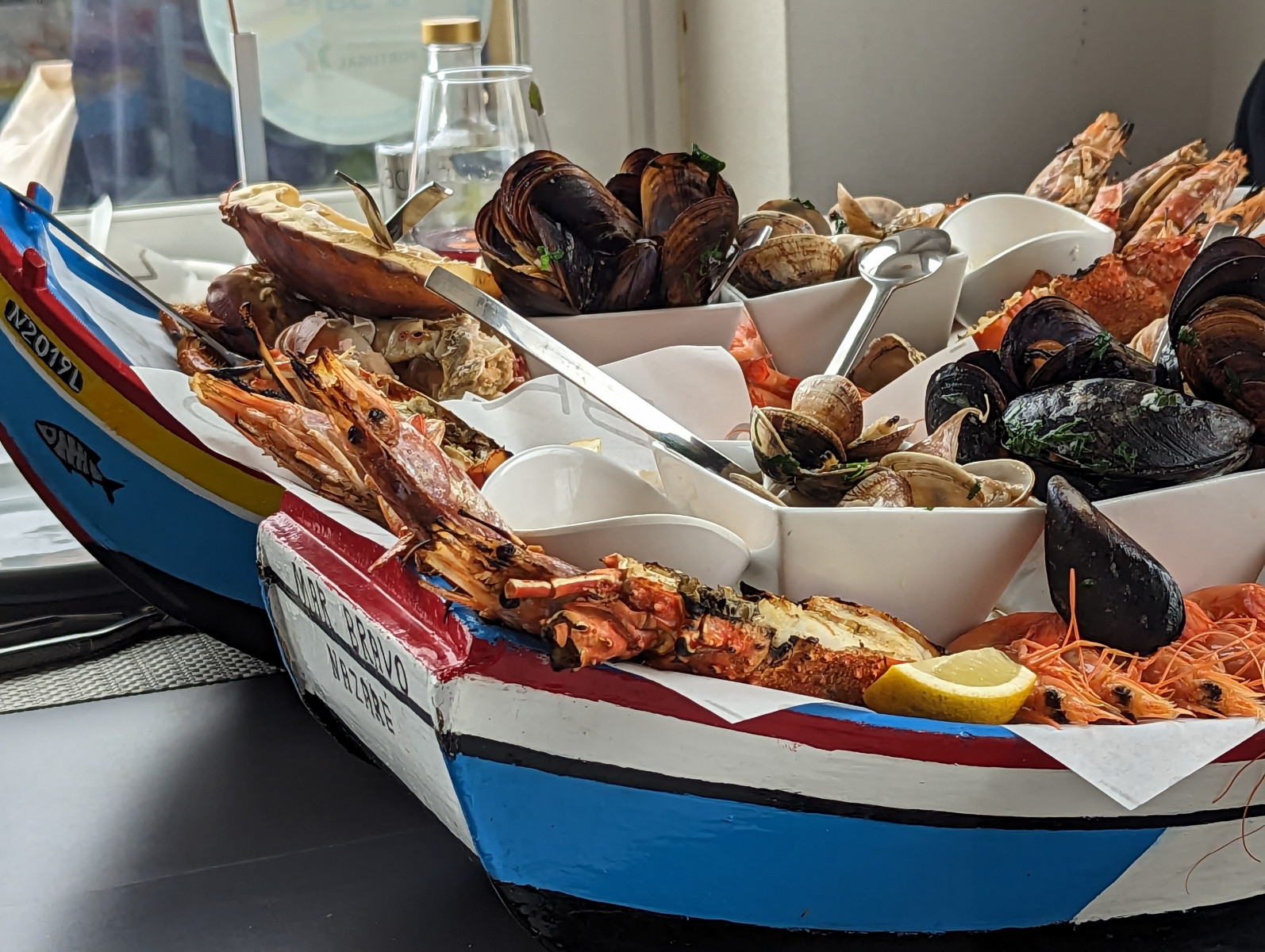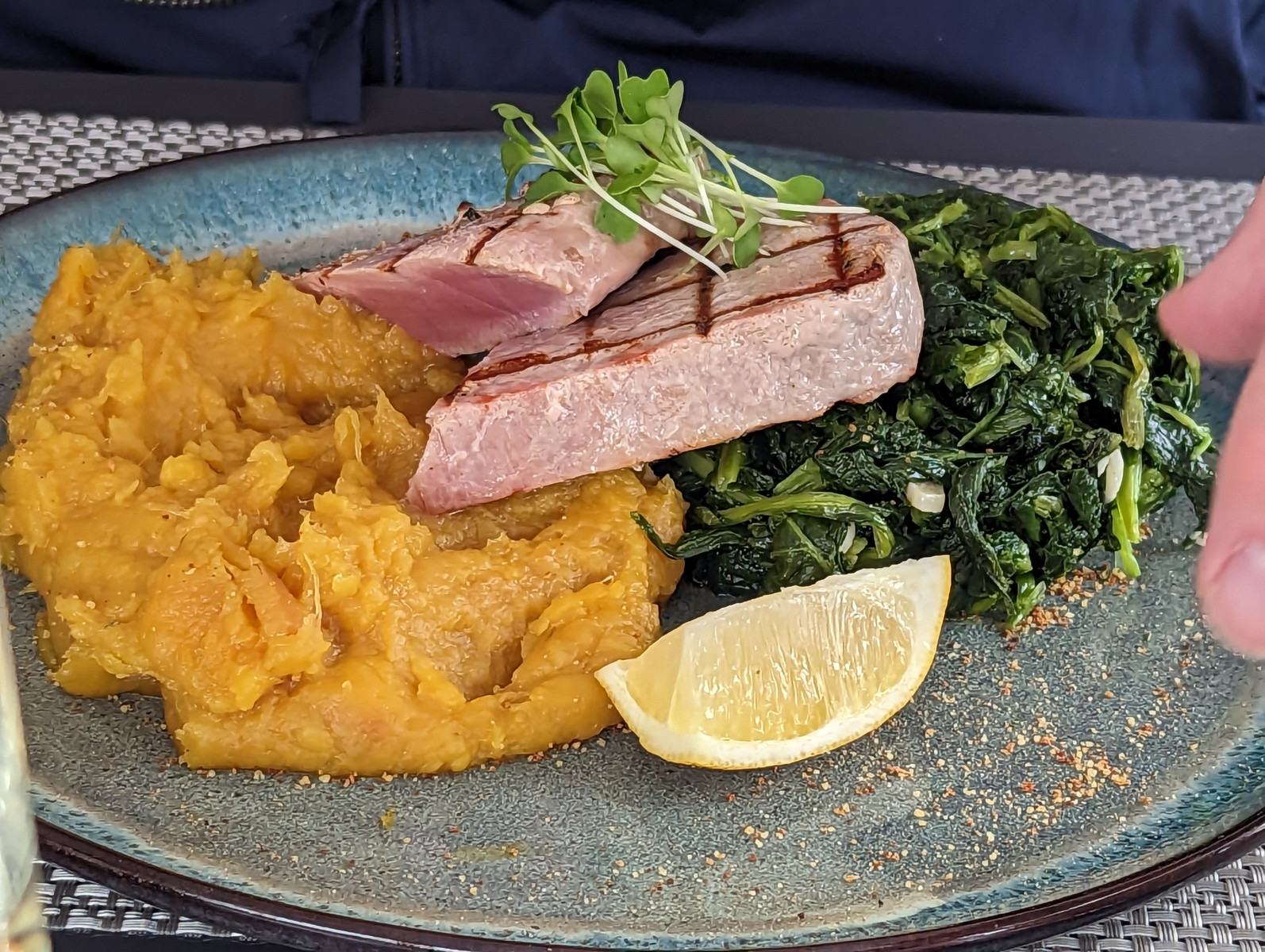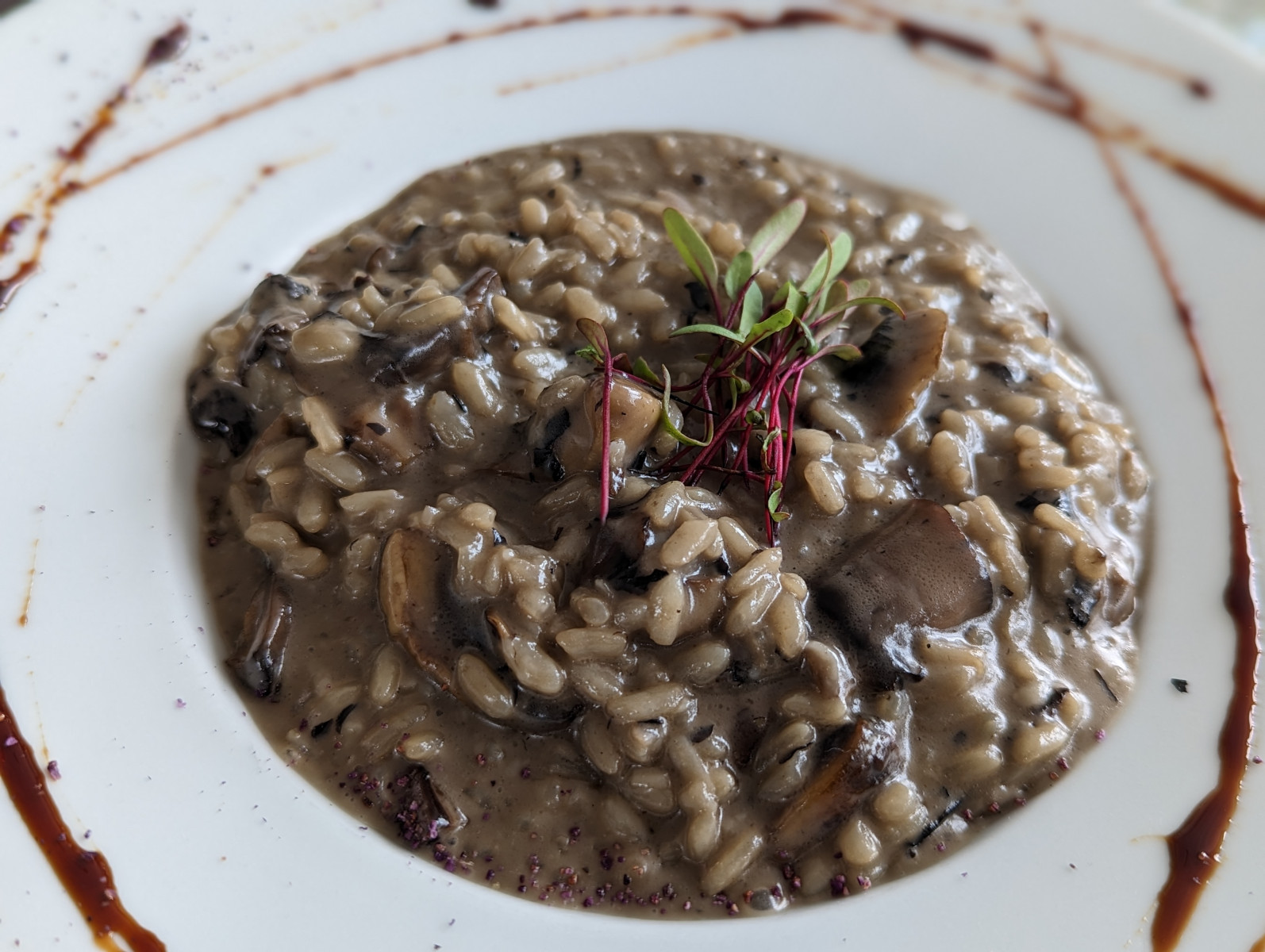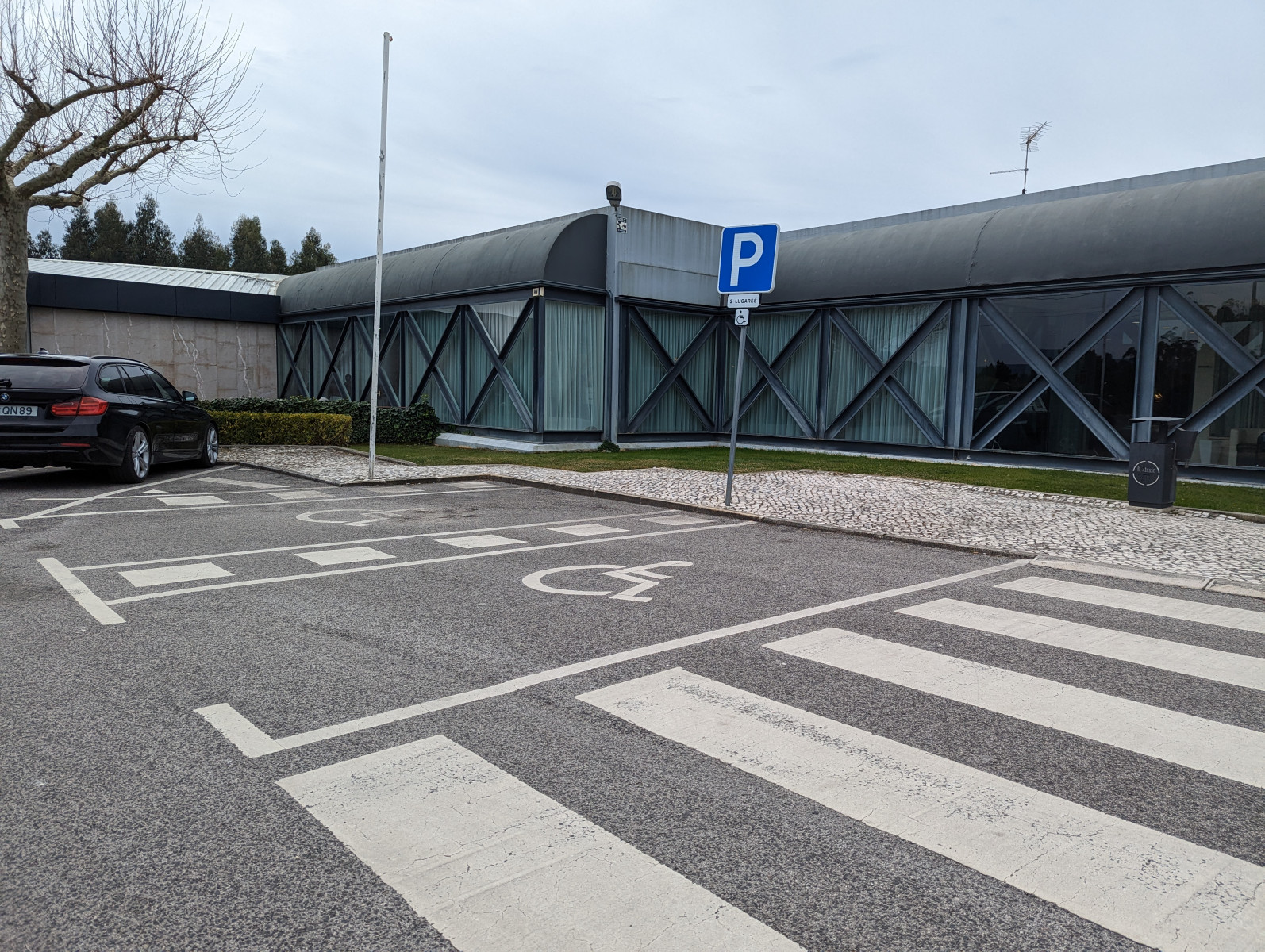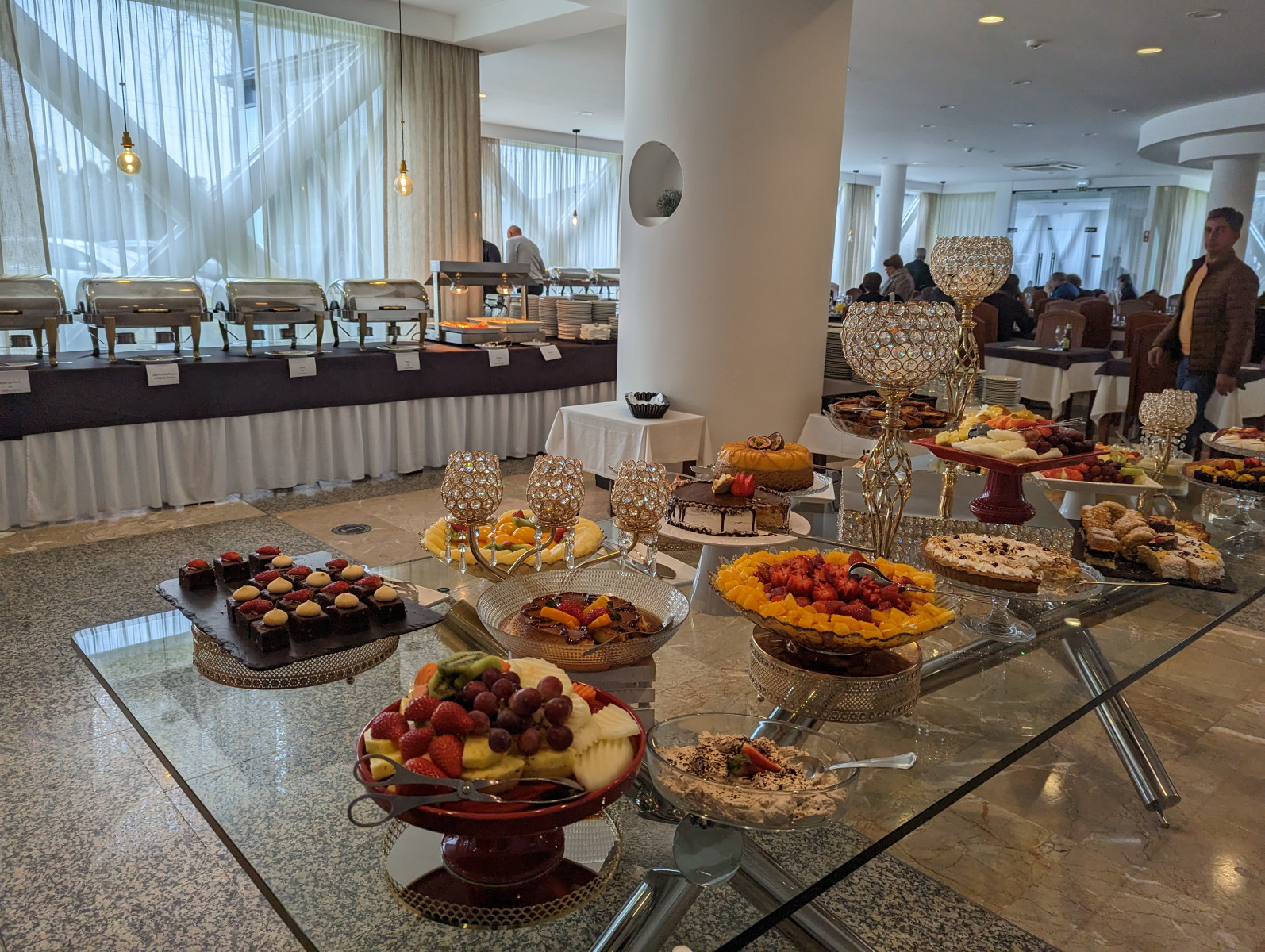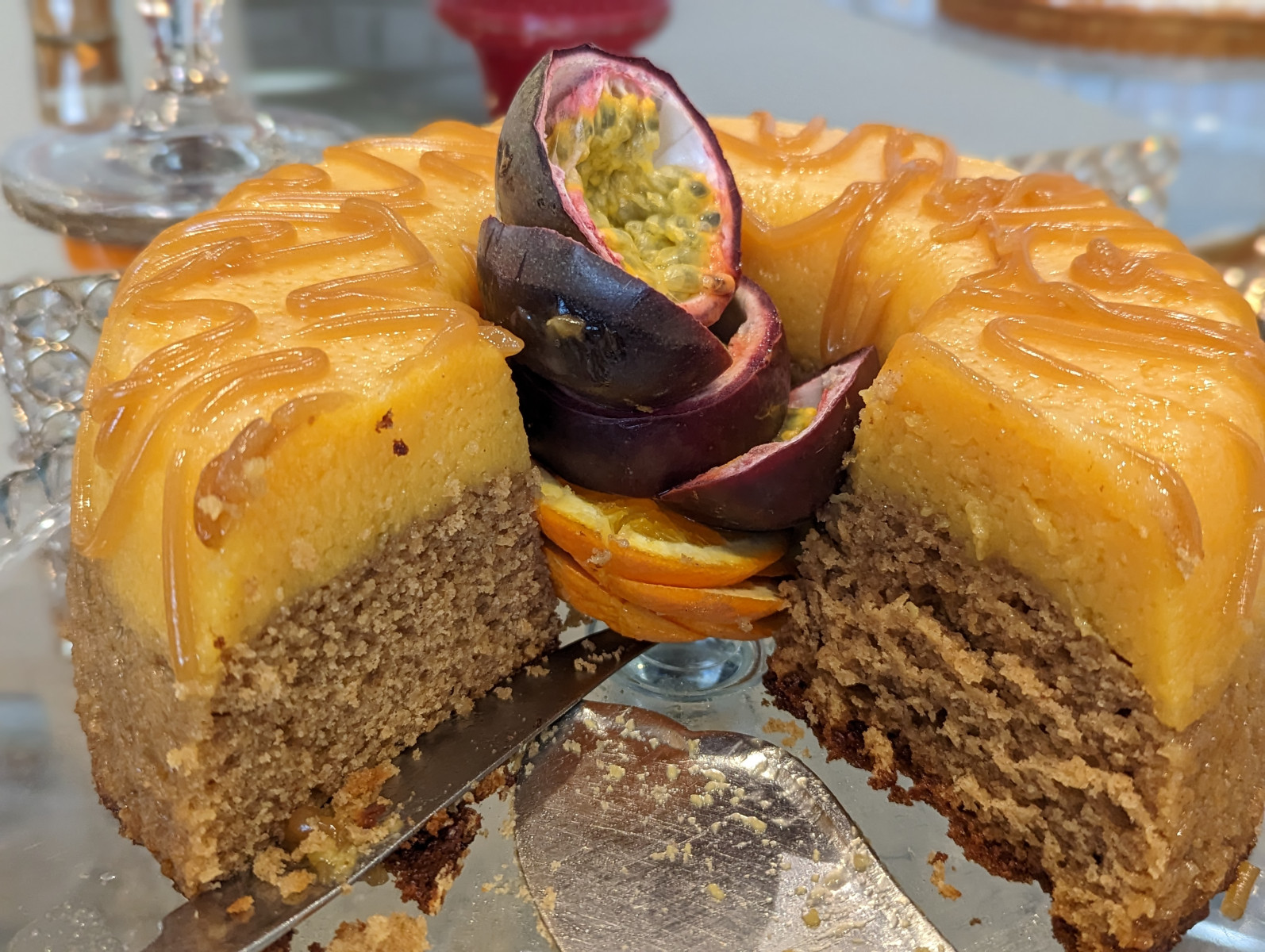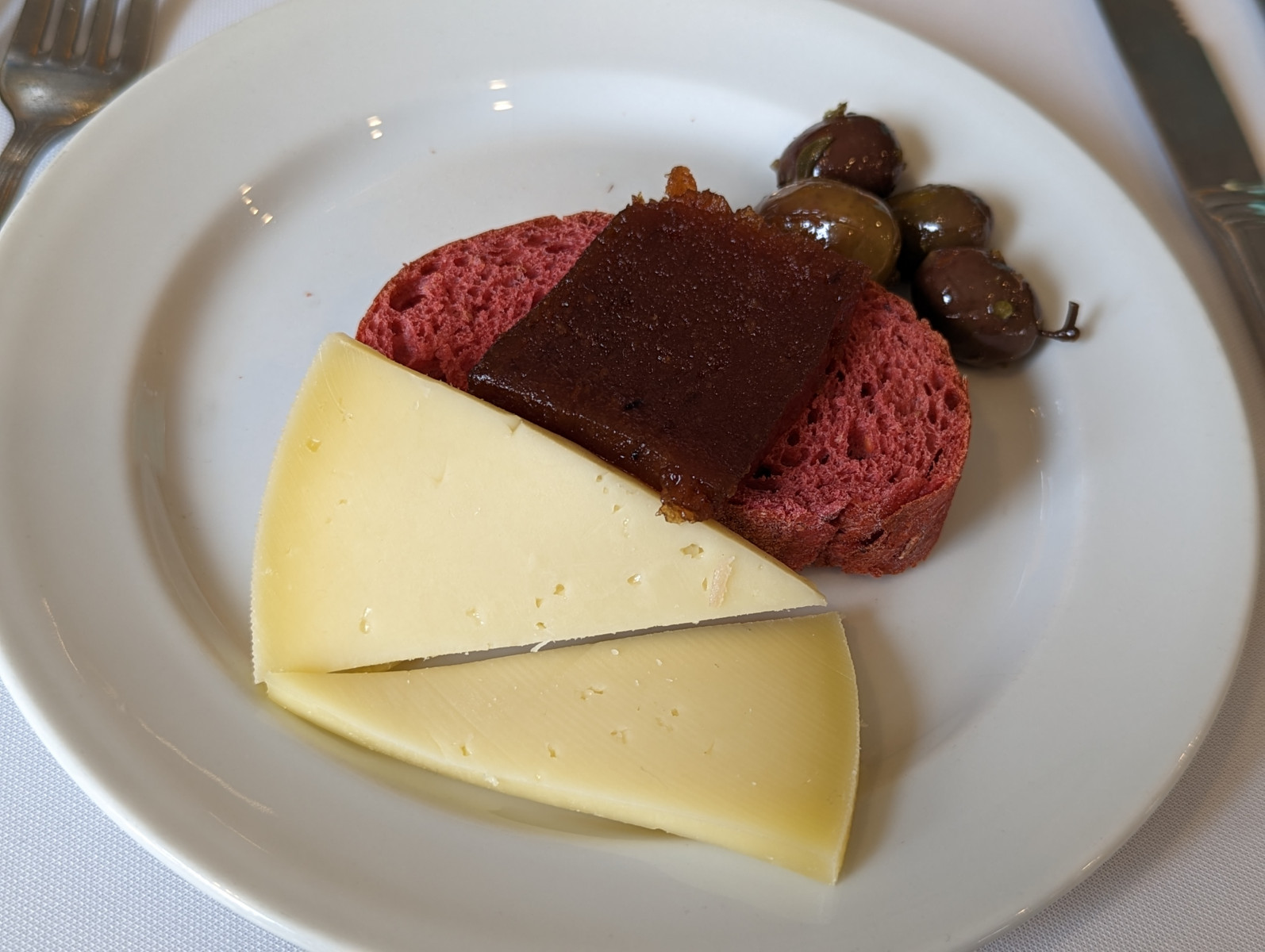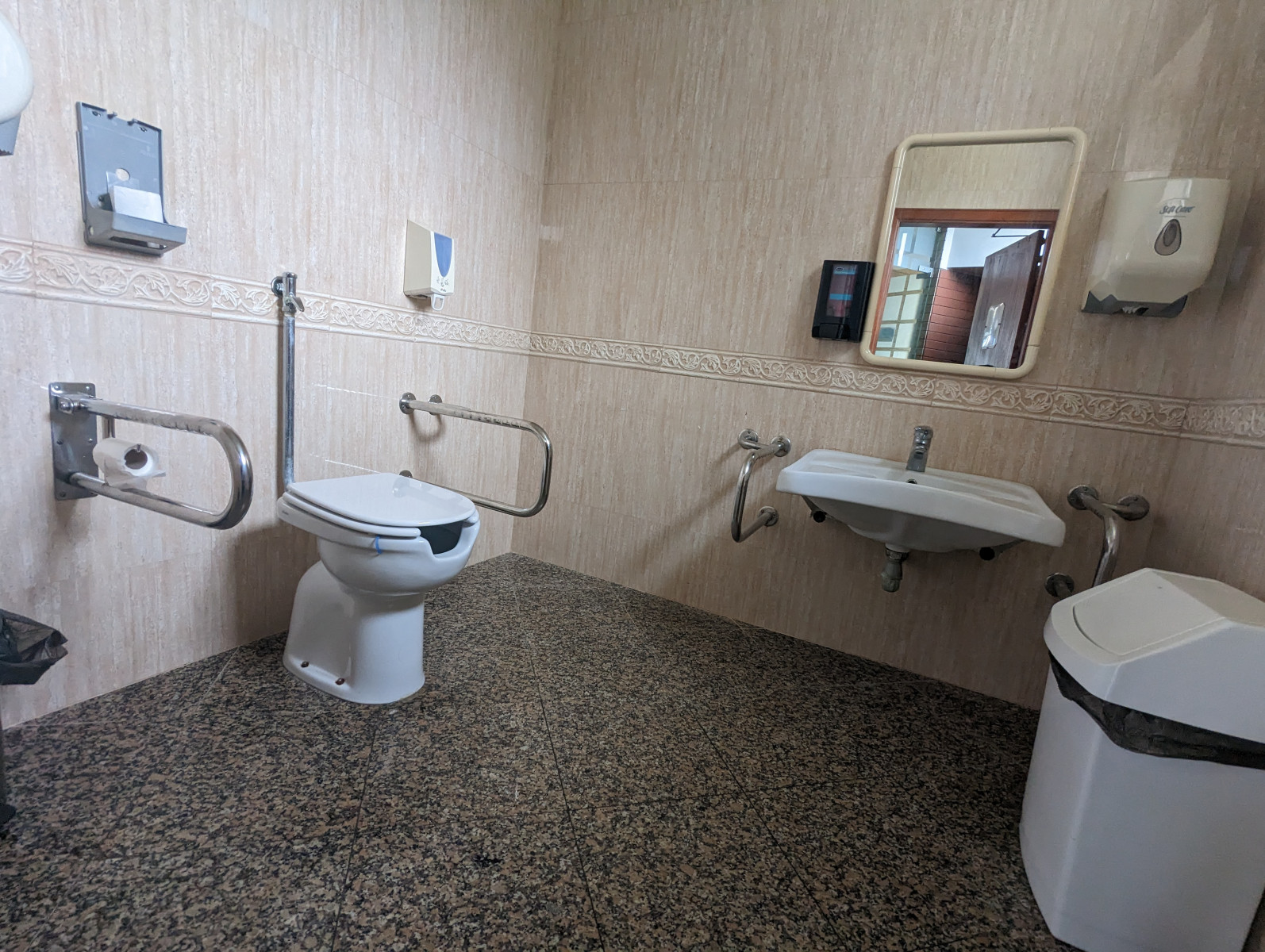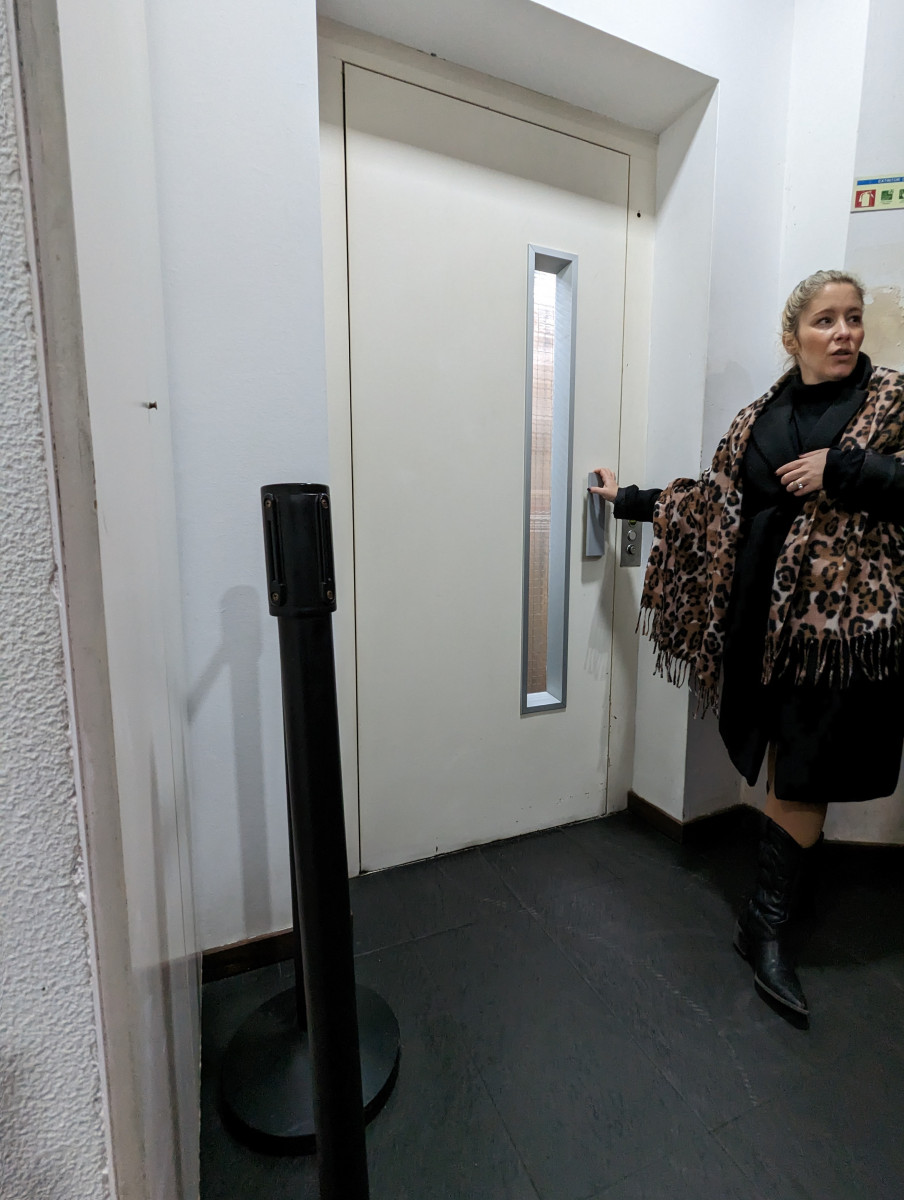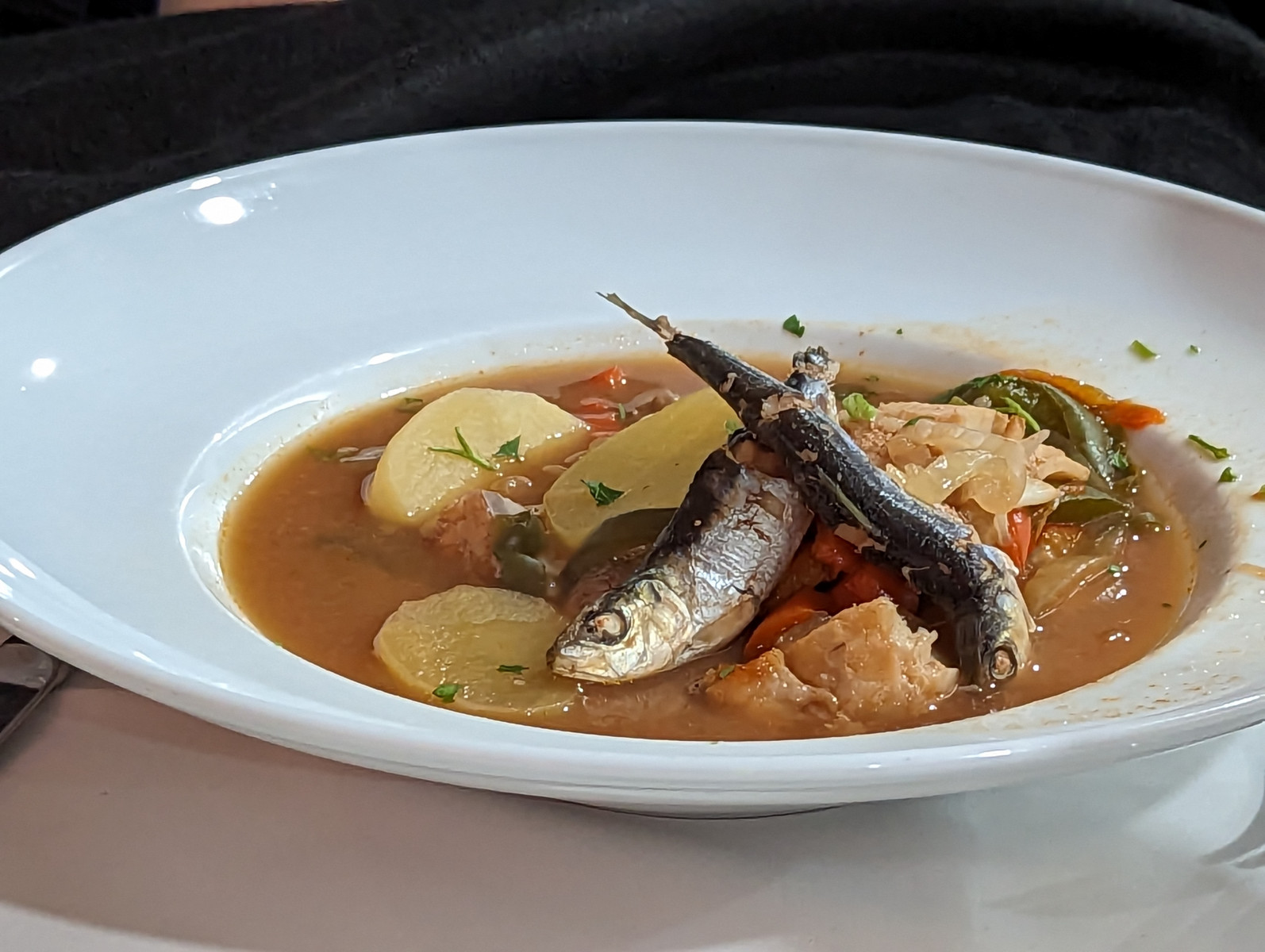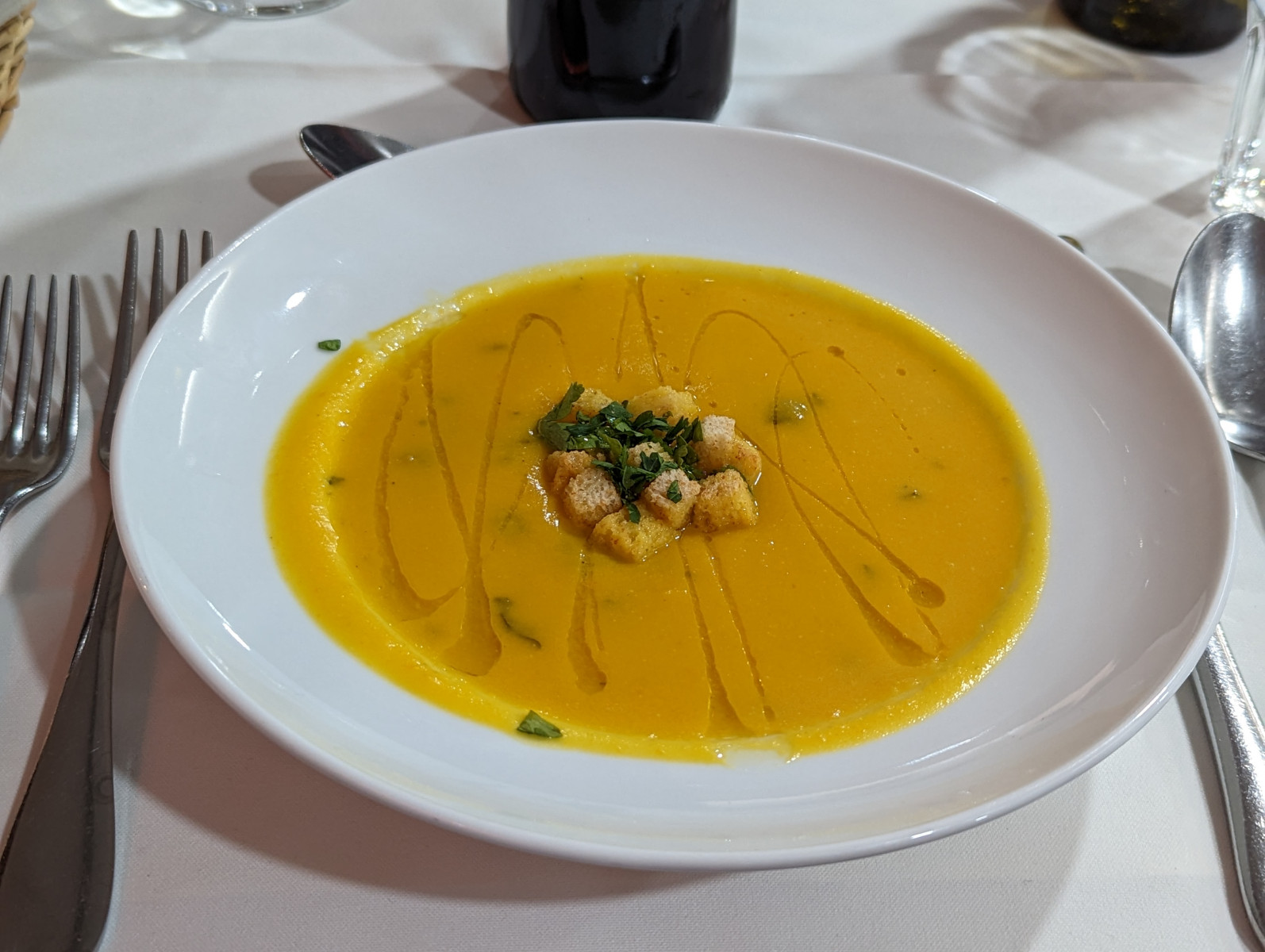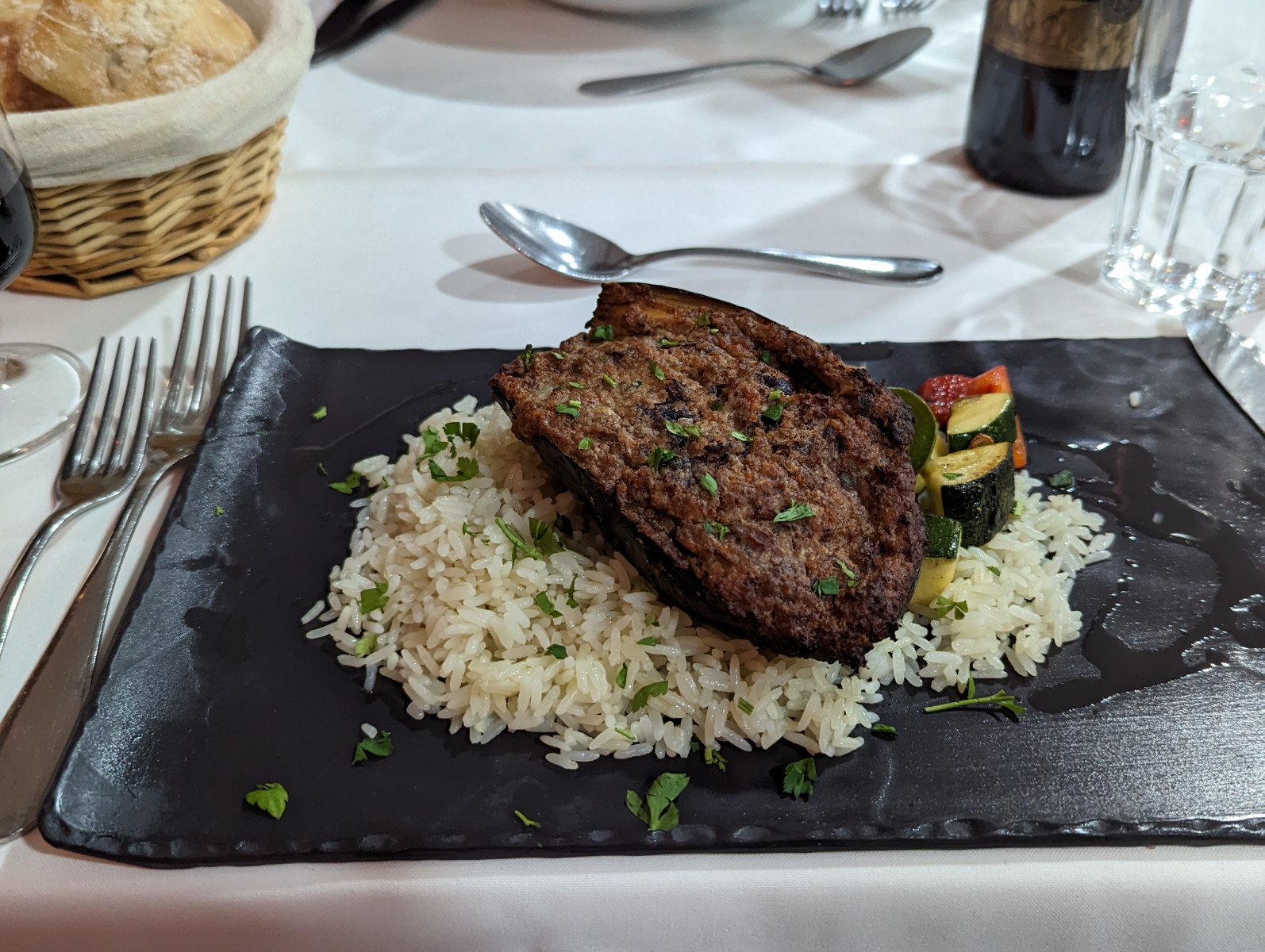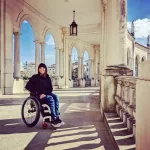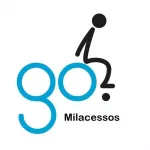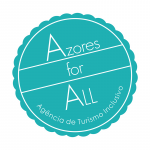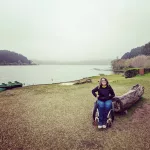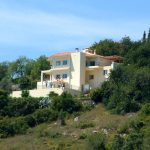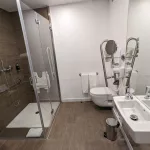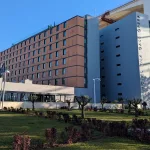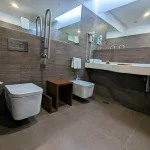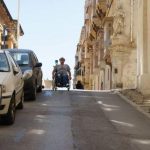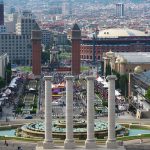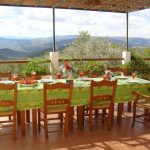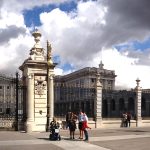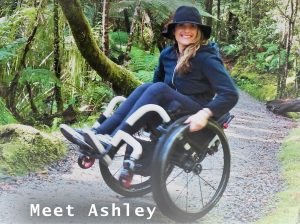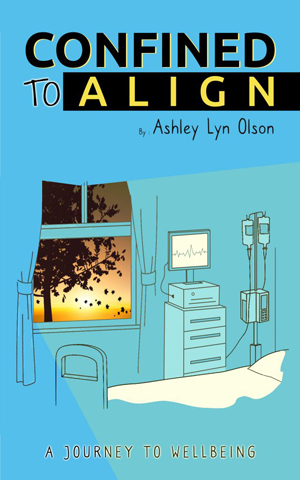 Traveling to Portugal is possible with Tourism for All. Equipped with adaptive tools and accessories, Tourism for All creates accessibility to fit the needs and interests of any traveler on a custom itinerary.
Traveling to Portugal is possible with Tourism for All. Equipped with adaptive tools and accessories, Tourism for All creates accessibility to fit the needs and interests of any traveler on a custom itinerary.
“We are prepared for any situation that occurs,” Tourism for All founder José António Bourdain (Bourdain) proudly says. “Portugal isn’t perfect, but I think we have a good service and are committed to clients and their safety. We want them to feel happy and relaxed. We have very nice vehicles and knowledge of all the places in terms of accessibility. If a client needs medicine or whatever, we solve 99% of the needs. People can go to any healthcare facility and it’s free. They don’t ask you for documents, they just treat you. It’s a system that has made Portugal famous.”
“There are many reasons to come to Portugal and ways to enjoy a nice vacation,” Bourdain explains, “It’s a very nice and beautiful country. Almost all the friendly Portuguese people speak English. There are nice views. Nice food. It’s cheaper.” In addition to these reasons, I found it liberating to have all the wheelchair accessibility research done for me, so once I was on the Portugal tour, my energy attention focused on the travel experience. Tourism for All knew the access details at each attraction, restaurant, and hotel we visited. Even when a particular area or destination lacked access or the unexpected occurred, someone from Tourism for All had answers.
The key to accessible tourism is the vehicles because without transportation travel is impossible.José António Bourdain, Founder, Tourism for All
Transportation
Knowing how to get around is certainly vital when traveling with a wheelchair. Some accessible transportation options exist in Portugal, like the bus and train, but are not always reliable or available. Tourism for All has six modified vans that can transport visitors around Portugal, including one that accommodates ten people sitting in wheelchairs and nineteen seats for those who can walk or prefer a fixed chair. Smaller vehicles can transport three to five people in wheelchairs and nine to thirty-three others. In each vehicle, wheelchairs are tied down, and lap belts are included to secure the person.
Wheeling On Cobblestones
Traveling around Portugal by wheelchair is possible, even with cobblestones sidewalks and streets. Still, it’s never a bad idea to prepare yourself on what to expect to plan accordingly when wheeling around Portugal. Watch this video on Portugal cobblestones and wheelchairs and read Bourdain’s comments.
Attractions
Whether it was a back door, side door, or hidden elevator, Tourism for All knows where to go to get in and access every opportunity. “Any old buildings doing new construction as well as new buildings in general are required by law to create access,” emphasizes Bourdain. Upon arrival at an attraction, a friendly, English-speaking guide was often expecting us. There was never a hesitation or misunderstanding, and each day seamlessly flowed, even when the tour group was running late. See wheelchair accessible attractions around Lisbon.
Hotels
At the end of a long day of sightseeing, having a comfortable and clean place to stay is a vital part of traveling. Tourism for All knows the hotels and knows them well, including amenities inside and outside of the room and the hotel itself. Plus, whatever accessible adaptions the hotel doesn’t have, Tourism for All provides to make the stay as comfortable as reasonably possible, like shower chairs, grab-bars, and even a pool lift. Having a wheelchair accessible roll-in shower in an adapted room is the standard in Portugal; modified rooms do not include a bathtub.
Sometimes there is a lot of demand for accessible rooms and finding accommodations gets harder for wheelchair travelers. “I try to convince the owners and directors of some hotels to make more accessible rooms,” informs Bourdain. The Hotel Villa Batalha is one example of a hotel commonly used by Tourism for All with the capability of accommodating ninety people needing accessibility. Hotel Vila Galé Ópera is another quality hotel commonly used on the tour and the second biggest hotel chain in Portugal, and Bourdain convinced the owner to make more accessible rooms, especially in the main cities, of Lisbon, Porto, and Algarve. NEYA Lisboa is a boutique hotel in a Lisbon neighborhood close to the airport.
Commonly at hotels in Portugal, visitors will find that the hotel room key is also used to turn on any electronics in the room, including lights. When entering the room, there is a slot to insert the key card, often by or attached to a light switch. Furthermore, hotels offer per-item laundry service and do not allow guests access to a clothing washer/dryer machine.
Restaurants: Food + Drinks
Portugal seafood “in general is healthy. We call it the ‘Mediterranean diet,’” explains Bourdain who reiterates that seafood is very popular in Portugal and cooked in many different ways. “We have a big coastline. We are a small country but we have the biggest coastline in Europe. In Portugal, food is prepared naturally using very few condiments compared to other counties. Olive oil, salt, and almost done,” smiles Bourdain. “You should try the Portuguese food, it’s quite something. For me, it’s the best in the world.” Portugal restaurants also have other tasty meat options on the menu and usually one vegetarian item. Vegetarian and vegan cuisine is growing in Portugal. Surprisingly but not surprisingly, the American fast-food chain restaurants, Burger King and McDonald’s, have many locations throughout Portugal.
While touring, Tourism for All specially selects restaurants with incredible views, ambiance, food, and of course accessibility. Not thinking about where to eat, if it’s good, or how accessible it is was pleasurable. At the start of every meal, fresh bread, butter, and olives were regularly placed on the table; prosciutto (shaved, cured ham), octopus, and oysters are also popular starters. Portugal wines were smooth and delicious, especially the red. Sagres is the most popular Portugal beer, which has a few different types. The Museu da Cerveja is a beer garden in the main square at Praça do Comércio in Lisbon that serves Sagres Beer along with other Portugal and international favorites. Right next door is Marisqueira Azul, a fine-dining seafood restaurant that also has patio seating and an accessible toilet.
Another fine-dining favorite is Furnas do Guincho, which Bourdain says is “one of the best seafood restaurants in Portugal.” The view alone from the restaurant is exceptional and worth visiting, let alone the surrounding beachfront with access to the promenade. A memorable night out in Lisbon is found at Páteo Alfama which features a live performance of traditional Portuguese music and dancing of fado. Getting to this restaurant was a challenging adventure climbing up a windy, cobblestone hill, but once there it was fully accessible and truly memorable. I thought the effort was worth it. Something not to miss when traveling to Portugal, even if you’re not a “foodie,” is visiting Pastéis de Belém, which is world famous for custard-filled egg tarts. The ground-floor restaurant has many rooms, great natural lighting, and an accessible toilet. A large window near the entrance allows visitors to watch the pastries being made.
Toilets
Don’t worry about when nature calls if traveling with a wheelchair in Portugal. “We have all kinds of accessible toilets, in the malls, gas stations, and some restaurants,” reassures Bourdain, but surprises like a broken toilet happen and when they do, Tourism for All has alternatives. “We know all the places with accessible toilets.”
Accessible toilets are set up in their own space and door and include grab-bars and a roll-up sink. It was smart that accessible toilets have an emergency cord, often wrapped around the perimeter of the room, in case there’s a fall. I tested this emergency cord more than once and was happy to find them in working order, setting off an alarm to notify the front staff. Occasionally, an accessible toilet had a no-seat design, making the toilet bowl larger and harder to balance on. (See photos of toilets in the slideshow above the section “restaurants.”)
More on Tourism for All
Before creating Tourism for All, Bourdain first started a caregiving business and from this foundation along with a core group of selected employees, professionally expanded to provide other services to those with accessibility needs, including ongoing support and his newest addition, Tourism for All. Susana, for example, is currently one of the bus drivers but began as a caretaker. Having employees that are already sensitive and familiar with people having various abilities was assuring for everyone on the tour.
While touring with a group of other various accessible travel experts, everyone’s abilities were addressed and supported. Once in Portugal, Tourism for All’s operations and offerings were impressive. Getting around Portugal isn’t easy or perfect, but Tourism for All has created accessibility to make it work. Here are the official quotes from the experts:
“The best word to describe Tourism for All is ‘adaptable.’ Once in Portugal, the organizers knew the accessible places and gracefully handled any problems that arose, including the need for additional equipment, like shower chairs and pool lifts. Having a portable ramp available made a difference. Plus, the various buses were impressive, especially the big party bus, and made getting around easy.”
– Ashley Lyn Olson, wheelchairtraveling.com
“The tour organizer did an excellent job with the arrangements. The accommodations were accessible and met our needs. The transportation was well-organized and equipped with essential safety features such as seat belts. Our tour guide, Pedro, was exceptional and ensured that the activities were enjoyable for us.”
– Asmae Rouji, Roll On Adventures
“Tourism for All did a fantastic job! Each person’s needs were addressed. Awesome mix of people on the trip. Incredible staff! Nice mix of places on the itinerary. And, able to respond to last-minute, unforeseen changes. Just lovely!”
– Fred Maahs, Maahs Travels
“Our organizers were phenomenal. They asked enough questions to get an accurate view of our required accommodations, and they were familiar enough with the properties that they knew what equipment they possibly needed to bring to make it accessible for each person. When out touring, one of the guides carried a ramp everywhere we went in case we encountered a sidewalk without a curb cut. They communicated with each restaurant to make sure my diet could be accommodated. We did not have perfect accessibility, but I never expect perfection. We had good accessibility with guides who truly understood our needs, and who were able to make accommodations on the spot when needed. The guides never patronized us or treated us like children. They were incredibly respectful of each individual’s autonomy and only assisted when asked. There was not one experience that felt dumbed down for us. We were not spectators, watching others doing all the activities, but we were full, active participants in every way.”
– Kristy Durso, Incredible Memories Travel
“I thought the hotels were great, and their selection of activities was fabulous for accessibility. I think the long days and everything we did was totally worth it!”
–Sylvia Longmire, Spin the Globe

